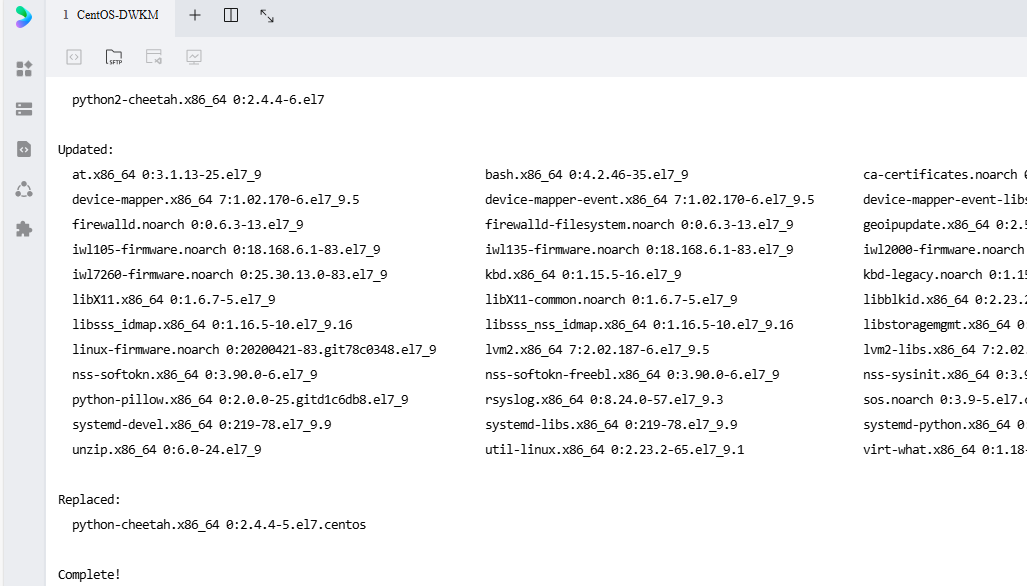Анализ конфигурации Grafana Loki
Файл конфигурации Локи Grafana представляет собой файл YML.,существоватьГрафана Локи, быстрая попыткаПримером являетсяloki-config.yaml,Этот файл содержит информацию оLoki Информация о конфигурации служб и отдельных компонентов. Поскольку конфигураций слишком много, перевести их все невозможно. Мы сможем добавить их позже только при необходимости.
СледующееГрафана Локи, быстрая попыткав одной статье,Конфигурация по умолчанию после установки Loki:
auth_enabled: false
server:
http_listen_port: 3100
grpc_listen_port: 9096
common:
instance_addr: 127.0.0.1
path_prefix: /tmp/loki
storage:
filesystem:
chunks_directory: /tmp/loki/chunks
rules_directory: /tmp/loki/rules
replication_factor: 1
ring:
kvstore:
store: inmemory
query_range:
results_cache:
cache:
embedded_cache:
enabled: true
max_size_mb: 100
schema_config:
configs:
- from: 2020-10-24
store: boltdb-shipper
object_store: filesystem
schema: v11
index:
prefix: index_
period: 24h
ruler:
alertmanager_url: http://localhost:9093
# By default, Loki will send anonymous, but uniquely-identifiable usage and configuration
# analytics to Grafana Labs. These statistics are sent to https://stats.grafana.org/
#
# Statistics help us better understand how Loki is used, and they show us performance
# levels for most users. This helps us prioritize features and documentation.
# For more information on what's sent, look at
# https://github.com/grafana/loki/blob/main/pkg/usagestats/stats.go
# Refer to the buildReport method to see what goes into a report.
#
# If you would like to disable reporting, uncomment the following lines:
#analytics:
# reporting_enabled: falseОписание заполнителя файла конфигурации
<boolean>Логическое значение,правда или ложь<int>и[1-9]+[0-9]*соответствующее целое число<duration>и[0-9]+(ns|us|µs|ms|[smh])время сопоставления<labelname>и[a-zA-Z_][a-zA-Z0-9_]*соответствиенить<labelvalue>unicodeнить<filename>Относительный или абсолютный путь<host>имя хоста илиIPадрес<string>string нить<secret>Представляет секретный ключнить
Предварительный просмотр поддерживаемой конфигурации Loki
# Список компонентов для запуска, по умолчанию — все
# Разрешенные значения — все, compactor, distributor, ingester, querier, query-scheduler,
# ingester-querier, query-frontend, index-gateway, ruler, table-manager, read, write
# CLI параметр: -target
[target: <string> | default = "all"]
# Включите аутентификацию через заголовок X-Scope-OrgID, Если true, заголовок должен существовать, если false, то для OrgID установлено значение false.
# CLI параметр: -auth.enabled
[auth_enabled: <boolean> | default = true]
# Виртуальная память, зарезервированная для оптимизированной сборки мусора. Сократите время сборки мусора за счет большего объема памяти.
# CLI flag: -config.ballast-bytes
[ballast_bytes: <int> | default = 0]
# Настраиваем сервис запущенного модуля
[server: <server>]
# Конфигурация Distributor(дистрибьютор)
[distributor: <distributor>]
# Настройте запросчик. Используется только при запуске со всеми или только с запущенным запросчиком
[querier: <querier>]
# После настройки очередь запросов будет отделена от интерфейса запросов.
[query_scheduler: <query_scheduler>]
# конфигурация интерфейса запроса
[frontend: <frontend>]
# Настройка кэширования запросов и разделения запросов
[query_range: <query_range>]
# Конфигурацияruler
[ruler: <ruler>]
# Настроить клиент приема (выборщика), действительный только для всех, дистрибьютора, запроса
[ingester_client: <ingester_client>]
# собственная конфигурация приёмника
[ingester: <ingester>]
# Конфигурация индекса, чтобы запросам не приходилось часто взаимодействовать с объектами хранилища.
[index_gateway: <index_gateway>]
# Хранилище конфигурации требуется в Schema_config.
[storage_config: <storage_config>]
# Как Конфигурация кэширует блоки и сколько времени ждать перед сохранением в хранилище
[chunk_store_config: <chunk_store_config>]
# Конфигурация структуры индекса блока и позиции хранилища
[schema_config: <schema_config>]
# Уплотнитель сжимает компоненты, что помогает повысить производительность.
# -boltdb.shipper.compactor. Срок действия истек, используйте -compactor.
[compactor: <compactor>]
# Конфигурация глобальных или индивидуальных ограничений, таких как ingestion_rate_mb, используемых для ограничения скорости извлечения.
[limits_config: <limits_config>]
# frontend_worker Максимальное количество одновременных основных рабочих процессов внешнего интерфейса, адрес внешнего интерфейса и т. д.
[frontend_worker: <frontend_worker>]
# Конфигурация, связанная с базой данных
[table_manager: <table_manager>]
# Конфигурацияmemberlist действительна только в том случае, если kvstore.
# Если определен хотя бы один список участников Конфигурация, содержащий хотя бы один join_members, если не указано иное в разделе Конфигурация компонента,
# В противном случае все компоненты, которым требуется кольцо, автоматически выберут kvstore типа Memberlist.
[memberlist: <memberlist>]
# Конфигурация во время выполнения, отвечает за перезагрузку файлов конфигурации.
[runtime_config: <runtime_config>]
# отслеживать Конфигурация
[tracing: <tracing>]
# Анализ Конфигурация, включая отчеты об использовании и т. д.
[analytics: <analytics>]
# Общая конфигурация, общая для нескольких модулей.
# Если в другом разделе указана более конкретная Конфигурация, соответствующая Конфигурация в этом разделе будет игнорироваться.
[common: <common>]
# SIGTERM и shutdown Как долго ждать между ними.
# После получения SIGTERM Локи сообщит о недоступности службы 503 через конечную точку /ready.
# CLI flag: -shutdown-delay
[shutdown_delay: <duration> | default = 0s]-config.file
-config.file обозначение Конфигурациядокумент,Несколько файлов, разделенных запятыми,Но будет загружен только первый файл. Параметр для конфигурации отсутствует.,Lokiвстречасуществоватькогдабывший рабочий каталогиconfig/Искать в подкаталогеconfig.yaml。
-print-config-stderr
-print-config-stderr Распечатать файл конфигурации
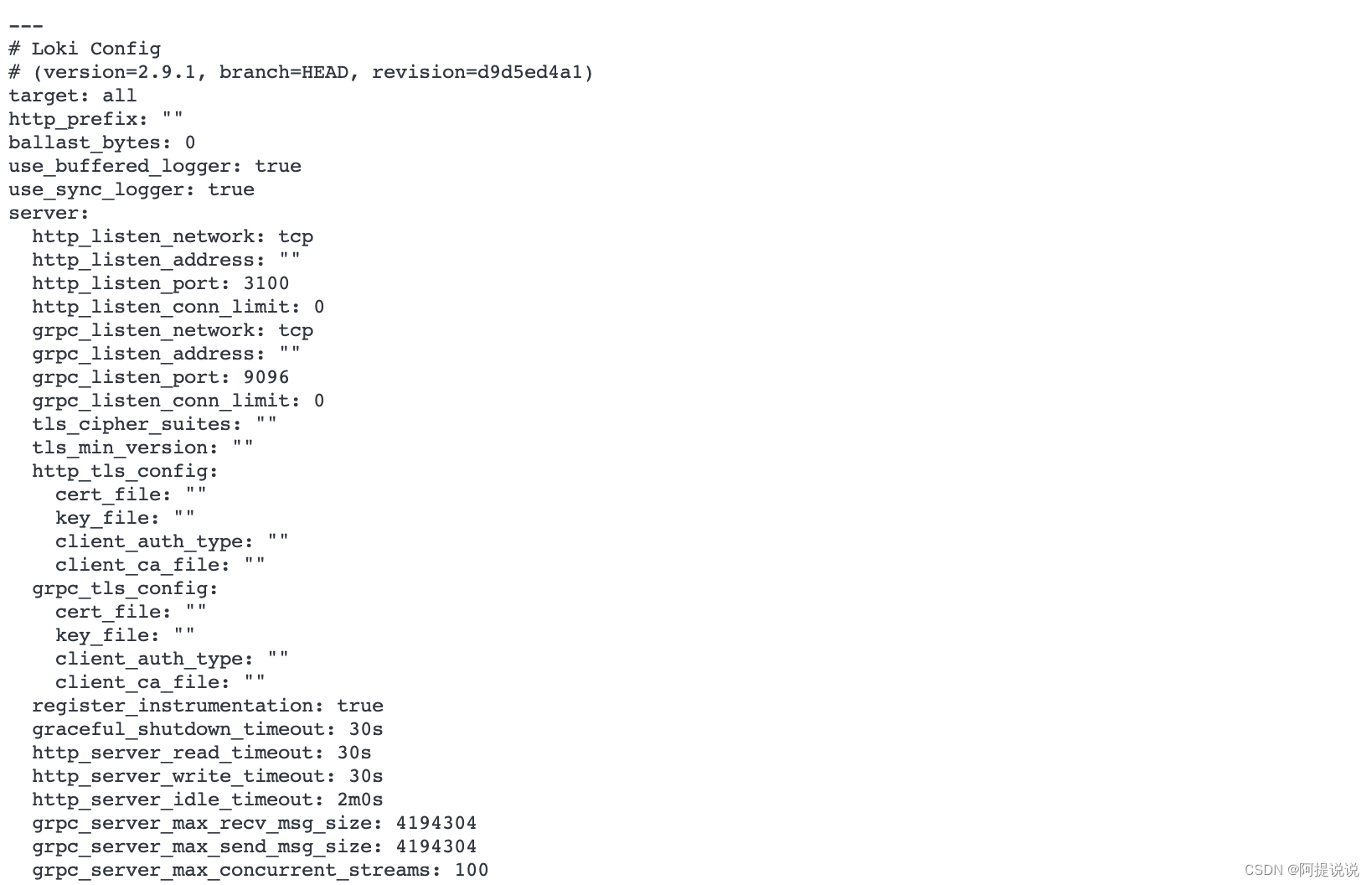
-log-config-reverse-order
-log-config-reverse-orderпротивоположный КРаспечатать файл конфигурации, на рисунке ниже показана последняя часть распечатанной конфигурации.
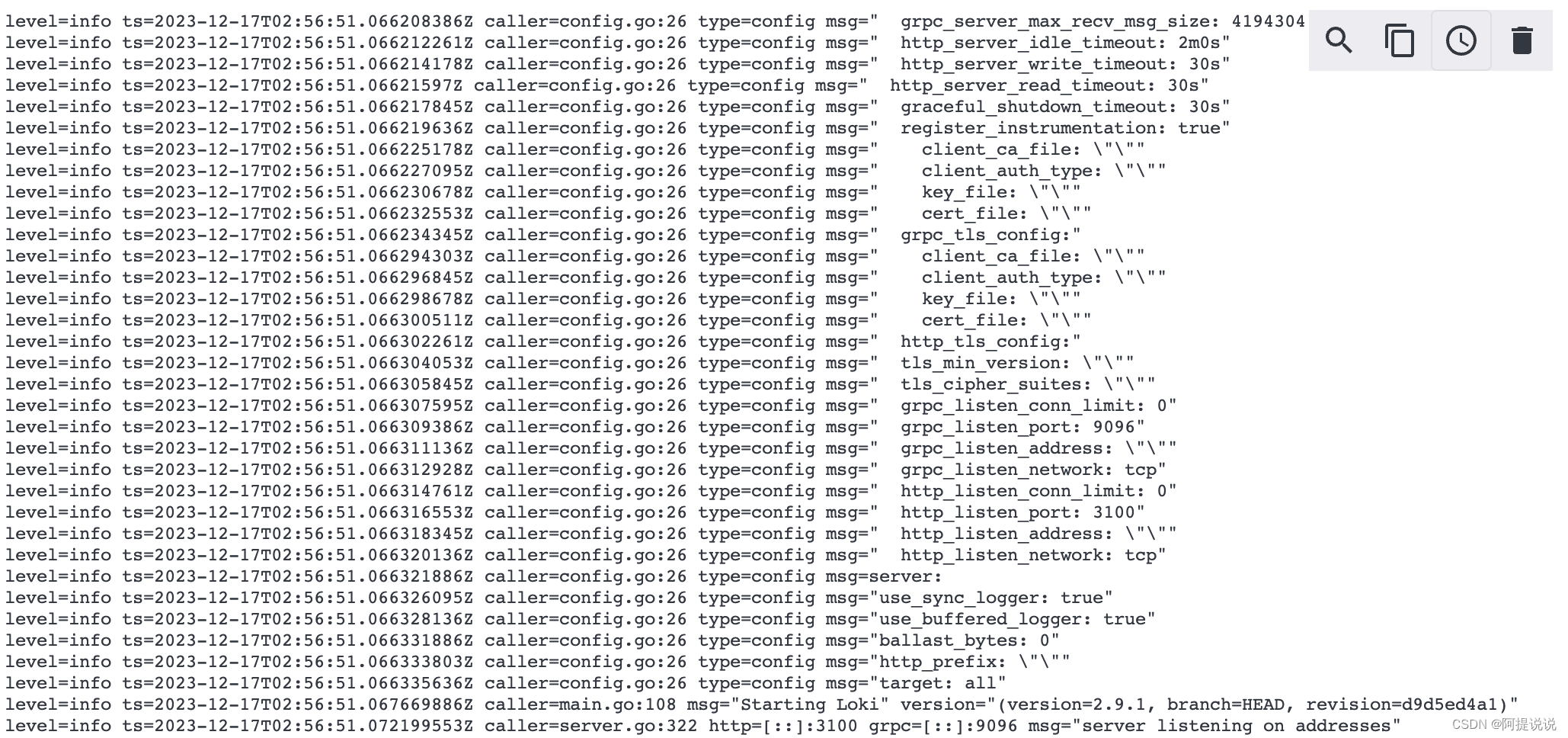
-config.expand-env=true
-config.expand-env=true Включите ссылку на переменную среды, чтобы разрешить ссылку на значение переменных среды в конфигурации Loki.
${VAR}Если переменная среды не существует, используйте вместо нее пустую строку
${VAR:-default_value}Если переменная среды не существует, используйте вместо нее default_value.
например:${USER:-http://localhost:9093},Переменная USER не существует,Отображаемое значение выглядит следующим образом
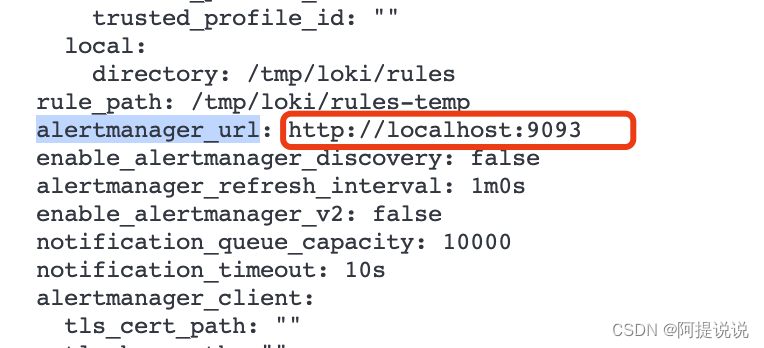
Конфигурация Локи
server
Настраиваем сервис запущенного модуля
# HTTP Тип прослушивания сети сервера, TCP по умолчанию
# CLI flag: -server.http-listen-network
[http_listen_network: <string> | default = "tcp"]
# Адрес прослушивания HTTP-сервера
# CLI flag: -server.http-listen-address
[http_listen_address: <string> | default = ""]
# Порт прослушивания HTTP-сервера
# CLI flag: -server.http-listen-port
[http_listen_port: <int> | default = 3100]
# http максимальное количество соединений,<=0отключить
# CLI flag: -server.http-conn-limit
[http_listen_conn_limit: <int> | default = 0]
# gRPC Тип прослушивания
# CLI flag: -server.grpc-listen-network
[grpc_listen_network: <string> | default = "tcp"]
# адрес прослушивания gRPC
# CLI flag: -server.grpc-listen-address
[grpc_listen_address: <string> | default = ""]
# gRPC порт прослушивания
# CLI flag: -server.grpc-listen-port
[grpc_listen_port: <int> | default = 9095]
# gRPCв то же время Максимальное количество подключений,<=0 отключить
# CLI flag: -server.grpc-conn-limit
[grpc_listen_conn_limit: <int> | default = 0]
# Список наборов шифров, разделенных запятыми. Если пусто, используется набор шифров Go по умолчанию.
# CLI flag: -server.tls-cipher-suites
[tls_cipher_suites: <string> | default = ""]
# Минимальная версия TLS для использования. Допустимые значения: ВерсияTLS10, VersionTLS11,VersionTLS12, VersionTLS13
# Если пусто, используйте GO TLS минимальная версия
# CLI flag: -server.tls-min-version
[tls_min_version: <string> | default = ""]
http_tls_config:
# Путь сертификата службы HTTP
# CLI flag: -server.http-tls-cert-path
[cert_file: <string> | default = ""]
# Путь к ключу службы HTTP
# CLI flag: -server.http-tls-key-path
[key_file: <string> | default = ""]
# HTTP TLS Client Auth type.
# CLI flag: -server.http-tls-client-auth
[client_auth_type: <string> | default = ""]
# HTTP TLS Client CA path.
# CLI flag: -server.http-tls-ca-path
[client_ca_file: <string> | default = ""]
grpc_tls_config:
# GRPC TLS server cert path.
# CLI flag: -server.grpc-tls-cert-path
[cert_file: <string> | default = ""]
# GRPC TLS server key path.
# CLI flag: -server.grpc-tls-key-path
[key_file: <string> | default = ""]
# GRPC TLS Client Auth type.
# CLI flag: -server.grpc-tls-client-auth
[client_auth_type: <string> | default = ""]
# GRPC TLS Client CA path.
# CLI flag: -server.grpc-tls-ca-path
[client_ca_file: <string> | default = ""]
# Register the intrumentation handlers (/metrics etc).
# CLI flag: -server.register-instrumentation
[register_instrumentation: <boolean> | default = true]
# Нормальный тайм-аут выключения
# CLI flag: -server.graceful-shutdown-timeout
[graceful_shutdown_timeout: <duration> | default = 30s]
# Read timeout for HTTP server
# CLI flag: -server.http-read-timeout
[http_server_read_timeout: <duration> | default = 30s]
# Write timeout for HTTP server
# CLI flag: -server.http-write-timeout
[http_server_write_timeout: <duration> | default = 30s]
# Idle timeout for HTTP server
# CLI flag: -server.http-idle-timeout
[http_server_idle_timeout: <duration> | default = 2m]
# Ограничение размера сообщений gRPC, которые можно получить.
# CLI flag: -server.grpc-max-recv-msg-size-bytes
[grpc_server_max_recv_msg_size: <int> | default = 4194304]
# Отправка ограничения размера сообщения gRPC
# CLI flag: -server.grpc-max-send-msg-size-bytes
[grpc_server_max_send_msg_size: <int> | default = 4194304]
# Ограничение на количество одновременных вызовов gRPC (0 — без ограничения).
# CLI flag: -server.grpc-max-concurrent-streams
[grpc_server_max_concurrent_streams: <int> | default = 100]
# Время закрытия простоя соединения gRPC, по умолчанию — бесконечно.
# CLI flag: -server.grpc.keepalive.max-connection-idle
[grpc_server_max_connection_idle: <duration> | default = 2562047h47m16.854775807s]
# Максимальная продолжительность существования соединения до его закрытия, по умолчанию равна бесконечности.
# CLI flag: -server.grpc.keepalive.max-connection-age
[grpc_server_max_connection_age: <duration> | default = 2562047h47m16.854775807s]
# Дополнительное время после максимального времени использования соединения. По истечении этого времени соединение будет принудительно закрыто. Значение по умолчанию — бесконечное.
# CLI flag: -server.grpc.keepalive.max-connection-age-grace
[grpc_server_max_connection_age_grace: <duration> | default = 2562047h47m16.854775807s]
# Время поддержания соединения, по умолчанию 2 часа
# CLI flag: -server.grpc.keepalive.time
[grpc_server_keepalive_time: <duration> | default = 2h]
# После проверки активности время закрытия простоя соединения, по умолчанию: 20s
# CLI flag: -server.grpc.keepalive.timeout
[grpc_server_keepalive_timeout: <duration> | default = 20s]
# Минимальное время ожидания клиента между отправкой запросов поддержания активности. Если запросы частые, сервер отправит GOAWAY и закроет соединение.
# CLI flag: -server.grpc.keepalive.min-time-between-pings
[grpc_server_min_time_between_pings: <duration> | default = 10s]
# Если значение равно true, сервер разрешает проверки активности, даже если нет активных потоков (RPC). Если значение равно false, сервер отправит GOAWAY и закроет соединение.
# CLI flag: -server.grpc.keepalive.ping-without-stream-allowed
[grpc_server_ping_without_stream_allowed: <boolean> | default = true]
# Выведите журнал в заданном формате. Допустимый формат: logfmt, json
# CLI flag: -log.format
[log_format: <string> | default = "logfmt"]
# Только журналы заданного уровня или выше, доступные уровни: отладка, info, warn, error
# CLI flag: -log.level
[log_level: <string> | default = "info"]
# Необязательно, запись IP-адреса источника
# CLI flag: -server.log-source-ips-enabled
[log_source_ips_enabled: <boolean> | default = false]
# хранилищеисточникipизheader поле, только в Действительно, когда server.log-source-ips-enabled=true
# Перенаправлено, X-Real-IP и X-Forwarded-For, просто используйте заголовок
# CLI flag: -server.log-source-ips-header
[log_source_ips_header: <string> | default = ""]
#для сопоставленияисточникip,толькокогда Действительно, когда server.log-source-ips-enabled=true
# CLI flag: -server.log-source-ips-regex
[log_source_ips_regex: <string> | default = ""]
# Необязательно, записывайте заголовки запроса
# CLI flag: -server.log-request-headers
[log_request_headers: <boolean> | default = false]
# в информации Запрос на регистрацию уровня. Если включен server.log-request-headers, он также будет регистрироваться.
# CLI flag: -server.log-request-at-info-level-enabled
[log_request_at_info_level_enabled: <boolean> | default = false]
# Список заголовков, разделенных запятыми, которые необходимо исключить. Действует только в том случае, если server.log-request-headers=true.
# CLI flag: -server.log-request-headers-exclude-list
[log_request_exclude_headers_list: <string> | default = ""]
# Базовый путь для всех маршрутов, например /v1/.
# CLI flag: -server.path-prefix
[http_path_prefix: <string> | default = ""]distributor
Настройка дистрибьютора, дистрибьютора
ring:
kvstore:
# ring Бэкэнд-хранилище, поддерживает консул, etcd,inmemory, memberlist, multi
# CLI flag: -distributor.ring.store
[store: <string> | default = "consul"]
# Префикс ключа в хранилище должен заканчиваться на /
# CLI flag: -distributor.ring.prefix
[prefix: <string> | default = "collectors/"]
# Конфигурация Consul, действительна только в том случае, если kvstore является консулом.
# The CLI flags prefix for this block configuration is: distributor.ring
[consul: <consul>]
# ETCD v3 Конфигурация действительна только тогда, когда kvstore выбирает etcd
# The CLI flags prefix for this block configuration is: distributor.ring
[etcd: <etcd>]
multi:
# multi-client При использовании основного бэкэндхранилища
# CLI flag: -distributor.ring.multi.primary
[primary: <string> | default = ""]
# multi-client Когда вспомогательные серверные хранилища
# CLI flag: -distributor.ring.multi.secondary
[secondary: <string> | default = ""]
# Помощь в написании изображенийхранилище
# CLI flag: -distributor.ring.multi.mirror-enabled
[mirror_enabled: <boolean> | default = false]
# Тайм-аут записи вспомогательной памяти
# CLI flag: -distributor.ring.multi.mirror-timeout
[mirror_timeout: <duration> | default = 2s]
# ringизцикл сердцебиения,0отключить
# CLI flag: -distributor.ring.heartbeat-period
[heartbeat_period: <duration> | default = 5s]
# По истечении времени обнаружения пульса дистрибьютор считается неработоспособным в кольце, 0 означает никогда (тайм-аут отключен).
# CLI flag: -distributor.ring.heartbeat-timeout
[heartbeat_timeout: <duration> | default = 1m]
# Имя сетевого интерфейса для чтения
# CLI flag: -distributor.ring.instance-interface-names
[instance_interface_names: <list of strings> | default = [<private network interfaces>]]
rate_store:
# Максимальное количество одновременных запросов на прием
# CLI flag: -distributor.rate-store.max-request-parallelism
[max_request_parallelism: <int> | default = 200]
# Обновить интервал скорости потока из приема
# CLI flag: -distributor.rate-store.stream-rate-update-interval
[stream_rate_update_interval: <duration> | default = 1s]
# частота обновления, дистрибьютор и Тайм-аут связи между конкретными приемниками
# CLI flag: -distributor.rate-store.ingester-request-timeout
[ingester_request_timeout: <duration> | default = 500ms]
# Включить ли отладку
# CLI flag: -distributor.rate-store.debug
[debug: <boolean> | default = false]
# Экспериментальный, пользовательский журнал ошибок записи
write_failures_logging:
# Экспериментальные изменения в конфигурации, разрешен размер записи журнала в секунду.
# Default: 1KB.
# CLI flag: -distributor.write-failures-logging.rate
[rate: <int> | default = 1KB]
# Экспериментальная изменится Конфигурация, Insight=true Записывается ли ключ, по умолчанию false
# CLI flag: -distributor.write-failures-logging.add-insights-label
[add_insights_label: <boolean> | default = false]querier
Настройте запросчик. Используется только при запуске со всеми или только с запущенным запросчиком
# Обеспечивает максимальную продолжительность запросов на отслеживание в реальном времени.
# CLI flag: -querier.tail-max-duration
[tail_max_duration: <duration> | default = 1h]
# Время ожидания перед отправкой количества успешных запросов, превышающего минимальное.
# CLI flag: -querier.extra-query-delay
[extra_query_delay: <duration> | default = 0s]
# Максимальное время просмотра запроса. Запросы, превышающие это время, не будут отправлены на прием. 0 означает, что все запросы отправляются на прием.
# CLI flag: -querier.query-ingesters-within
[query_ingesters_within: <duration> | default = 3h]
engine:
# Устарело, вместо этого используйте querier.query-timeout. Тайм-аут запроса
# CLI flag: -querier.engine.timeout
[timeout: <duration> | default = 5m]
# Максимальное время просмотра журналов, используется только для запроса журналов в реальном времени.
# CLI flag: -querier.engine.max-lookback-period
[max_look_back_period: <duration> | default = 30s]
# Максимальное количество одновременных запросов
# CLI flag: -querier.max-concurrent
[max_concurrent: <int> | default = 10]
# Если это правда, запрашивать только хранилище и не подключаться к приему. Это полезно при запуске отдельного пула запросов только к данным хранилища.
# CLI flag: -querier.query-store-only
[query_store_only: <boolean> | default = false]
# Если это правда, запрашивается только прием, а не хранилище. Это полезно, когда хранилище объектов недоступно.
# CLI flag: -querier.query-ingester-only
[query_ingester_only: <boolean> | default = false]
# Если это правда, запросы могут охватывать несколько клиентов.
# CLI flag: -querier.multi-tenant-queries-enabled
[multi_tenant_queries_enabled: <boolean> | default = false]
# Если это правда, ограничения запросов, отправленные через заголовок, будут применены.
# CLI flag: -querier.per-request-limits-enabled
[per_request_limits_enabled: <boolean> | default = false]query_scheduler
После настройки очередь запросов будет отделена от интерфейса запросов.
# Максимальное количество невыполненных запросов на query_scheduler на одного клиента
# Если этот предел превышен, текущий запрос завершится с ошибкой 429.
# CLI flag: -query-scheduler.max-outstanding-requests-per-tenant
[max_outstanding_requests_per_tenant: <int> | default = 100]
# Максимальное количество вложений очередей, 0 означает запрет.
# CLI flag: -query-scheduler.max-queue-hierarchy-levels
[max_queue_hierarchy_levels: <int> | default = 3]
# Если запросчик отключается без отправки уведомления о корректном завершении работы, планировщик запросов сохраняет запрос в сегменте клиента до истечения времени задержки.
# когда Когда включено перемешивание в случайном порядке, эта функция помогает уменьшить масштаб воздействия.
# CLI flag: -query-scheduler.querier-forget-delay
[querier_forget_delay: <duration> | default = 0s]
# Конфигурация используется для возврата ошибок в интерфейс запроса клиента gRPC.
# The CLI flags prefix for this block configuration is:
# query-scheduler.grpc-client-config
[grpc_client_config: <grpc_client>]
# это правда Указывает на создание запроса планировщики и поместить себя в кольцо.
# Если нет frontend_address или scheduler_address,Значение установленоэто правда
# CLI flag: -query-scheduler.use-scheduler-ring
[use_scheduler_ring: <boolean> | default = false]
# hash ring Конфигурация,толькосуществоватьuse_scheduler_ringэто Действует, когда правда
scheduler_ring:
kvstore:
# хранилище при использовании кольца, поддерживает консул, etcd,inmemory, memberlist, multi
# CLI flag: -query-scheduler.ring.store
[store: <string> | default = "consul"]
# Префикс ключа в хранилище должен заканчиваться на /
# CLI flag: -query-scheduler.ring.prefix
[prefix: <string> | default = "collectors/"]
# Consul Конфигурация клиента. Действительно, когда kvstore выбирает консула
# The CLI flags prefix for this block configuration is: query-scheduler.ring
[consul: <consul>]
# ETCD v3 Конфигурация клиента, действительна, когда kvstore выбирает etcd
# The CLI flags prefix for this block configuration is: query-scheduler.ring
[etcd: <etcd>]
multi:
# multi-client Повелитель временихранилище # CLI flag: -query-scheduler.ring.multi.primary
[primary: <string> | default = ""]
# Помощь при использовании многоклиентской хранилища
# CLI flag: -query-scheduler.ring.multi.secondary
[secondary: <string> | default = ""]
# Помощь в написании изображенийхранилище
# CLI flag: -query-scheduler.ring.multi.mirror-enabled
[mirror_enabled: <boolean> | default = false]
# Помощь в написании изображенийхранилищеизтайм-аут
# CLI flag: -query-scheduler.ring.multi.mirror-timeout
[mirror_timeout: <duration> | default = 2s]
# ringизцикл сердцебиения,0отключить
# CLI flag: -query-scheduler.ring.heartbeat-period
[heartbeat_period: <duration> | default = 15s]
# По истечении времени обнаружения пульса компрессор в кольце считается неработоспособным, 0 означает никогда (тайм-аут отключен).
# CLI flag: -query-scheduler.ring.heartbeat-timeout
[heartbeat_timeout: <duration> | default = 1m]
# token путь к хранилищу, если он пуст, токен хранилища отсутствует при выключении, токен восстанавливается при запуске
# CLI flag: -query-scheduler.ring.tokens-file-path
[tokens_file_path: <string> | default = ""]
# это правда представляет собой блоки данных, которые учитывают регион и охватывают разные зоны доступности копировать
# CLI flag: -query-scheduler.ring.zone-awareness-enabled
[zone_awareness_enabled: <boolean> | default = false]
# Быть на ринге Идентификатор экземпляра зарегистрирован в
# CLI flag: -query-scheduler.ring.instance-id
[instance_id: <string> | default = "<hostname>"]
# Имя сетевого интерфейса, с которого необходимо прочитать адрес.
# CLI flag: -query-scheduler.ring.instance-interface-names
[instance_interface_names: <list of strings> | default = [<private network interfaces>]]
# на ринге Порт в server.grpc-listen-port используется по умолчанию.
# CLI flag: -query-scheduler.ring.instance-port
[instance_port: <int> | default = 0]
# на ринге в IP адрес
# IP address to advertise in the ring.
# CLI flag: -query-scheduler.ring.instance-addr
[instance_addr: <string> | default = ""]
# Зона доступности, в которой работает этот экземпляр, если включена поддержка зоны. Если он включен, его необходимо выбрать
# CLI flag: -query-scheduler.ring.instance-availability-zone
[instance_availability_zone: <string> | default = ""]
# Запустить экземпляр IPv6 адрес
# CLI flag: -query-scheduler.ring.instance-enable-ipv6
[instance_enable_ipv6: <boolean> | default = false]frontend
конфигурация интерфейса запроса
# Записывает запросы, которые выполняются медленнее указанного времени, 0 означает отключено, <0 Открыть все запросы
# Log queries that are slower than the specified duration. Set to 0 to disable.
# Set to < 0 to enable on all queries.
# CLI flag: -frontend.log-queries-longer-than
[log_queries_longer_than: <duration> | default = 0s]
# Максимальное тело запроса нижестоящего Прометея
# Max body size for downstream prometheus.
# CLI flag: -frontend.max-body-size
[max_body_size: <int> | default = 10485760]
# true означает включение отслеживания статистики запросов. Каждый запрос будет записывать сообщение с некоторой статистической информацией.
# True to enable query statistics tracking. When enabled, a message with some
# statistics is logged for every query.
# CLI flag: -frontend.query-stats-enabled
[query_stats_enabled: <boolean> | default = false]
# Максимальное количество запросов на внешний интерфейс на одного клиента. Если это число превышено, будет возвращен HTTP. 429
# Maximum number of outstanding requests per tenant per frontend; requests
# beyond this error with HTTP 429.
# CLI flag: -querier.max-outstanding-requests-per-tenant
[max_outstanding_per_tenant: <int> | default = 2048]
#Если клиент повторно отправляет запросы, что приводит к сбою или завершению работы запрашивающей стороны из-за ошибки нехватки памяти,
#нокрахиз Запросустройство Воляи Отключение внешнего интерфейса запроса,и сразу Воляновыйиз Запросустройство分配给租户изфрагменты
#Это опровергает предположение о том, что сегментирование хэша может снизить воздействие на арендаторов.
#Этот вариант проходитсуществовать Запросустройство因крах而断开连接идействительный Волякрахиз Запросустройство从租户из Шардингмежду удалением Конфигурация Задержка для смягчения последствий
# In the event a tenant is repeatedly sending queries that lead the querier to
# crash or be killed due to an out-of-memory error, the crashed querier will be
# disconnected from the query frontend and a new querier will be immediately
# assigned to the tenant’s shard. This invalidates the assumption that shuffle
# sharding can be used to reduce the impact on tenants. This option mitigates
# the impact by configuring a delay between when a querier disconnects because
# of a crash and when the crashed querier is actually removed from the tenant's
# shard.
# CLI flag: -query-frontend.querier-forget-delay
[querier_forget_delay: <duration> | default = 0s]
# DNS Имя хоста, используемое для поиска планировщиков запросов
# CLI flag: -frontend.scheduler-address
[scheduler_address: <string> | default = ""]
# Скорость анализа планировщиков запросов, используемая для поиска новых экземпляров планировщика запросов.
# если Конфигурация Понятноscheduler-ring,Также используется для определения приобретенияscheduler-ringадресизчастота
# How often to resolve the scheduler-address, in order to look for new
# query-scheduler instances. Also used to determine how often to poll the
# scheduler-ring for addresses if the scheduler-ring is configured.
# CLI flag: -frontend.scheduler-dns-lookup-period
[scheduler_dns_lookup_period: <duration> | default = 10s]
#Конкуренция при пересылке запросов в один планировщик запросов
# Number of concurrent workers forwarding queries to single query-scheduler.
# CLI flag: -frontend.scheduler-worker-concurrency
[scheduler_worker_concurrency: <int> | default = 5]
# grpc_clientConfiguration клиент grpc для связи между двумя компонентами Loki, см. grpc_clientConfiguration позже.
# The grpc_client block configures the gRPC client used to communicate between
# two Loki components.
# The CLI flags prefix for this block configuration is:
# frontend.grpc-client-config
[grpc_client_config: <grpc_client>]
# существовать Дождитесь завершения запроса перед выключениемизвремя,Необходимо обеспечить соответствие тайм-ауту запроса и корректному завершению работы.
# Time to wait for inflight requests to finish before forcefully shutting down.
# This needs to be aligned with the query timeout and the graceful termination
# period of the process orchestrator.
# CLI flag: -frontend.graceful-shutdown-timeout
[graceful_shutdown_timeout: <duration> | default = 5m]
# читать изадресиз Имя сетевого интерфейса。этотадресотправлено вquery-schedulerиquerier,
# запросчик использует его для отправки ответов на запросы обратно в интерфейс запроса
# Name of network interface to read address from. This address is sent to
# query-scheduler and querier, which uses it to send the query response back to
# query-frontend.
# CLI flag: -frontend.instance-interface-names
[instance_interface_names: <list of strings> | default = [<private network interfaces>]]
# Сжимать ли HTTP-ответы
# Compress HTTP responses.
# CLI flag: -querier.compress-http-responses
[compress_responses: <boolean> | default = false]
# Нижестоящий URL-адрес Loki
# URL of downstream Loki.
# CLI flag: -frontend.downstream-url
[downstream_url: <string> | default = ""]
# Запросчик для хвостового прокси URL
# URL of querier for tail proxy.
# CLI flag: -frontend.tail-proxy-url
[tail_proxy_url: <string> | default = ""]
# TLSКонфигурация
# The TLS configuration.
[tail_tls_config: <tls_config>]query_range
Настройка кэширования запросов и разделения запросов
# Истекший Конфигурация,использовать-querier.split-queries-by-interval заменять
# Deprecated: Use -querier.split-queries-by-interval instead. CLI flag:
# -querier.split-queries-by-day. Split queries by day and execute in parallel.
[split_queries_by_interval: <duration>]
# Волявходитьиз Запрос Трансформировать,Выровняйте его начальное и конечное положение, а также длину шага.
# Mutate incoming queries to align their start and end with their step.
# CLI flag: -querier.align-querier-with-step
[align_queries_with_step: <boolean> | default = false]
results_cache:
# кэш Конфигурация
# The cache block configures the cache backend.
# The CLI flags prefix for this block configuration is: frontend
[cache: <cache_config>]
# Независимо от того, сжимать или нет, значение по умолчанию пусто, а сжатие отключено. Поддерживаемые значения: 'snappy' и''
# Use compression in cache. The default is an empty value '', which disables
# compression. Supported values are: 'snappy' and ''.
# CLI flag: -frontend.compression
[compression: <string> | default = ""]
# Кэшировать ли результаты запроса
# Cache query results.
# CLI flag: -querier.cache-results
[cache_results: <boolean> | default = false]
# Максимальное количество повторов одного запроса. За исключением того, что будет возвращена ошибка нисходящего потока.
# Maximum number of retries for a single request; beyond this, the downstream
# error is returned.
# CLI flag: -querier.max-retries-per-request
[max_retries: <int> | default = 5]
# на основехранилище Шардинг Конфигурацияи ЗапросASTосуществлять Запрос Распараллеливание,Эта функциятолькопутем дробленияхранилище Поддержка двигателя
# Perform query parallelisations based on storage sharding configuration and
# query ASTs. This feature is supported only by the chunks storage engine.
# CLI flag: -querier.parallelise-shardable-queries
[parallelise_shardable_queries: <boolean> | default = true]
# Срок действия истек — список заголовков, которые интерфейс запроса перенаправляет последующим запросам.
# Deprecated. List of headers forwarded by the query Frontend to downstream
# querier.
# CLI flag: -frontend.forward-headers-list
[forward_headers_list: <list of strings> | default = []]
# Формат ответа, указанный нижестоящим запросчиком, который может быть json или protobuf, оба по-прежнему маршрутизируются через GRPC.
# The downstream querier is required to answer in the accepted format. Can be
# 'json' or 'protobuf'. Note: Both will still be routed over GRPC.
# CLI flag: -frontend.required-query-response-format
[required_query_response_format: <string> | default = "json"]
# Кэшировать ли результаты запроса статистики индекса
# Cache index stats query results.
# CLI flag: -querier.cache-index-stats-results
[cache_index_stats_results: <boolean> | default = false]
# еслиеще нетобозначениекэш Конфигурация,и кэш_index_stats_results имеет значение true,Такиспользоватьэтот Конфигурация
# If a cache config is not specified and cache_index_stats_results is true, the
# config for the results cache is used.
index_stats_results_cache:
# Конфигурация кэша
# The cache block configures the cache backend.
# The CLI flags prefix for this block configuration is:
# frontend.index-stats-results-cache
[cache: <cache_config>]
# сжатие кэша
# Use compression in cache. The default is an empty value '', which disables
# compression. Supported values are: 'snappy' and ''.
# CLI flag: -frontend.index-stats-results-cache.compression
[compression: <string> | default = ""]ruler
Настройка правил линейки
# Grafana Базовый URL-адрес экземпляра
# Base URL of the Grafana instance.
# CLI flag: -ruler.external.url
[external_url: <url>]
# UID источника данных информационной панели
# Datasource UID for the dashboard.
# CLI flag: -ruler.datasource-uid
[datasource_uid: <string> | default = ""]
# Ко всем оповещениям добавлены дополнительные ярлыки
# Labels to add to all alerts.
[external_labels: <list of Labels>]
#grpc_clientКонфигурация клиент grpc для связи между двумя компонентами Loki
# The grpc_client block configures the gRPC client used to communicate between
# two Loki components.
# The CLI flags prefix for this block configuration is: ruler.client
[ruler_client: <grpc_client>]
# Как часто оцениваются правила
# How frequently to evaluate rules.
# CLI flag: -ruler.evaluation-interval
[evaluation_interval: <duration> | default = 1m]
# Как часто проводить опрос на предмет изменений правил
# How frequently to poll for rule changes.
# CLI flag: -ruler.poll-interval
[poll_interval: <duration> | default = 1m]
# Срок действия истек, используйте -линейку-хранилище
# Deprecated: Use -ruler-storage. CLI flags and their respective YAML config
# options instead.
storage:
# Тип внутренней хранилища
# Method to use for backend rule storage (configdb, azure, gcs, s3, swift,
# local, bos, cos)
# CLI flag: -ruler.storage.type
[type: <string> | default = ""]
# Configures backend rule storage for Azure.
# The CLI flags prefix for this block configuration is: ruler.storage
[azure: <azure_storage_config>]
# Configures backend rule storage for AlibabaCloud Object Storage (OSS).
# The CLI flags prefix for this block configuration is: ruler
[alibabacloud: <alibabacloud_storage_config>]
# Configures backend rule storage for GCS.
# The CLI flags prefix for this block configuration is: ruler.storage
[gcs: <gcs_storage_config>]
# Configures backend rule storage for S3.
# The CLI flags prefix for this block configuration is: ruler
[s3: <s3_storage_config>]
# Configures backend rule storage for Baidu Object Storage (BOS).
# The CLI flags prefix for this block configuration is: ruler.storage
[bos: <bos_storage_config>]
# Configures backend rule storage for Swift.
# The CLI flags prefix for this block configuration is: ruler.storage
[swift: <swift_storage_config>]
# Configures backend rule storage for IBM Cloud Object Storage (COS).
# The CLI flags prefix for this block configuration is: ruler.storage
[cos: <cos_storage_config>]
# Configures backend rule storage for a local file system directory.
local:
# Directory to scan for rules
# CLI flag: -ruler.storage.local.directory
[directory: <string> | default = ""]
#Путь к файлу временных правил хранилища
# File path to store temporary rule files.
# CLI flag: -ruler.rule-path
[rule_path: <string> | default = "/rules"]
# Alertmanager для отправки уведомлений список URL-адресов, разделенных запятыми
# Каждый Alertmanager URL-адреса рассматриваются как отдельная группа в Конфигурации.
# Пройдите "-duler.alertmanager discovery”Использовать DNSанализировать,Может поддержать каждую группуHAвнесколькоalertmanager
# Comma-separated list of Alertmanager URLs to send notifications to. Each
# Alertmanager URL is treated as a separate group in the configuration. Multiple
# Alertmanagers in HA per group can be supported by using DNS resolution via
# '-ruler.alertmanager-discovery'.
# CLI flag: -ruler.alertmanager-url
[alertmanager_url: <string> | default = ""]
# Использовать DNS Записи SRV для обнаружения хостов Alertmanager
# Use DNS SRV records to discover Alertmanager hosts.
# CLI flag: -ruler.alertmanager-discovery
[enable_alertmanager_discovery: <boolean> | default = false]
# Как долго ждать между обновлением разрешения DNS хоста Alertmanager
# How long to wait between refreshing DNS resolutions of Alertmanager hosts.
# CLI flag: -ruler.alertmanager-refresh-interval
[alertmanager_refresh_interval: <duration> | default = 1m]
# Если запросы к менеджеру оповещений включены, будет использоваться версия 2. API
# If enabled requests to Alertmanager will utilize the V2 API.
# CLI flag: -ruler.alertmanager-use-v2
[enable_alertmanager_v2: <boolean> | default = false]
# Список оповещений о повторной конфигурации
# List of alert relabel configs.
[alert_relabel_configs: <relabel_config...>]
# Емкость очереди для отправки уведомлений в Alertmanager
# Capacity of the queue for notifications to be sent to the Alertmanager.
# CLI flag: -ruler.notification-queue-capacity
[notification_queue_capacity: <int> | default = 10000]
# Продолжительность тайм-аута HTTP при отправке уведомлений в Alertmanager
# HTTP timeout duration when sending notifications to the Alertmanager.
# CLI flag: -ruler.notification-timeout
[notification_timeout: <duration> | default = 10s]
alertmanager_client:
# Путь к сертификату клиента, используемый для аутентификации сервера, и путь к ключу конфигурации.
# Path to the client certificate, which will be used for authenticating with
# the server. Also requires the key path to be configured.
# CLI flag: -ruler.alertmanager-client.tls-cert-path
[tls_cert_path: <string> | default = ""]
# Путь к ключу сертификата клиента, требующий сертификата клиента. Конфигурация
# Path to the key for the client certificate. Also requires the client
# certificate to be configured.
# CLI flag: -ruler.alertmanager-client.tls-key-path
[tls_key_path: <string> | default = ""]
# Path to the CA certificates to validate server certificate against. If not
# set, the host's root CA certificates are used.
# CLI flag: -ruler.alertmanager-client.tls-ca-path
[tls_ca_path: <string> | default = ""]
# Override the expected name on the server certificate.
# CLI flag: -ruler.alertmanager-client.tls-server-name
[tls_server_name: <string> | default = ""]
# Skip validating server certificate.
# CLI flag: -ruler.alertmanager-client.tls-insecure-skip-verify
[tls_insecure_skip_verify: <boolean> | default = false]
# Override the default cipher suite list (separated by commas). Allowed
# values:
#
# Secure Ciphers:
# - TLS_RSA_WITH_AES_128_CBC_SHA
# - TLS_RSA_WITH_AES_256_CBC_SHA
# - TLS_RSA_WITH_AES_128_GCM_SHA256
# - TLS_RSA_WITH_AES_256_GCM_SHA384
# - TLS_AES_128_GCM_SHA256
# - TLS_AES_256_GCM_SHA384
# - TLS_CHACHA20_POLY1305_SHA256
# - TLS_ECDHE_ECDSA_WITH_AES_128_CBC_SHA
# - TLS_ECDHE_ECDSA_WITH_AES_256_CBC_SHA
# - TLS_ECDHE_RSA_WITH_AES_128_CBC_SHA
# - TLS_ECDHE_RSA_WITH_AES_256_CBC_SHA
# - TLS_ECDHE_ECDSA_WITH_AES_128_GCM_SHA256
# - TLS_ECDHE_ECDSA_WITH_AES_256_GCM_SHA384
# - TLS_ECDHE_RSA_WITH_AES_128_GCM_SHA256
# - TLS_ECDHE_RSA_WITH_AES_256_GCM_SHA384
# - TLS_ECDHE_RSA_WITH_CHACHA20_POLY1305_SHA256
# - TLS_ECDHE_ECDSA_WITH_CHACHA20_POLY1305_SHA256
#
# Insecure Ciphers:
# - TLS_RSA_WITH_RC4_128_SHA
# - TLS_RSA_WITH_3DES_EDE_CBC_SHA
# - TLS_RSA_WITH_AES_128_CBC_SHA256
# - TLS_ECDHE_ECDSA_WITH_RC4_128_SHA
# - TLS_ECDHE_RSA_WITH_RC4_128_SHA
# - TLS_ECDHE_RSA_WITH_3DES_EDE_CBC_SHA
# - TLS_ECDHE_ECDSA_WITH_AES_128_CBC_SHA256
# - TLS_ECDHE_RSA_WITH_AES_128_CBC_SHA256
# CLI flag: -ruler.alertmanager-client.tls-cipher-suites
[tls_cipher_suites: <string> | default = ""]
# Override the default minimum TLS version. Allowed values: VersionTLS10,
# VersionTLS11, VersionTLS12, VersionTLS13
# CLI flag: -ruler.alertmanager-client.tls-min-version
[tls_min_version: <string> | default = ""]
# HTTP Basic Аутентифицированное имя пользователя перезапишет имя пользователя, указанное в URL-адресе.
# HTTP Basic authentication username. It overrides the username set in the URL
# (if any).
# CLI flag: -ruler.alertmanager-client.basic-auth-username
[basic_auth_username: <string> | default = ""]
# HTTP Basic Пароль аутентификации перезапишет пароль, установленный в URL-адресе.
# HTTP Basic authentication password. It overrides the password set in the URL
# (if any).
# CLI flag: -ruler.alertmanager-client.basic-auth-password
[basic_auth_password: <string> | default = ""]
# Тип аутентификации HTTP-заголовка
# HTTP Header authorization type (default: Bearer).
# CLI flag: -ruler.alertmanager-client.type
[type: <string> | default = "Bearer"]
# HTTP Учетные данные авторизации заголовка
# HTTP Header authorization credentials.
# CLI flag: -ruler.alertmanager-client.credentials
[credentials: <string> | default = ""]
# HTTPУчетные данные авторизации заголовкадокумент
# HTTP Header authorization credentials file.
# CLI flag: -ruler.alertmanager-client.credentials-file
[credentials_file: <string> | default = ""]
# Максимальное время оценки состояния
# Max time to tolerate outage for restoring "for" state of alert.
# CLI flag: -ruler.for-outage-tolerance
[for_outage_tolerance: <duration> | default = 1h]
# Оповещение и восстановление for между государствамииз最短持续время。толькокогда Конфигурацияиз for Техническое обслуживание будет проводиться только в том случае, если время превышает этот льготный период.
# Minimum duration between alert and restored "for" state. This is maintained
# only for alerts with configured "for" time greater than the grace period.
# CLI flag: -ruler.for-grace-period
[for_grace_period: <duration> | default = 10m]
# К Минимальное время ожидания Alertmanager перед повторной отправкой оповещения
# Minimum amount of time to wait before resending an alert to Alertmanager.
# CLI flag: -ruler.resend-delay
[resend_delay: <duration> | default = 1m]
# Распространение оценки правил с использованием кольцевой серверной части
# Distribute rule evaluation using ring backend.
# CLI flag: -ruler.enable-sharding
[enable_sharding: <boolean> | default = false]
# Используемая стратегия сегментирования. Поддержка: по умолчанию, shuffle-sharding
# The sharding strategy to use. Supported values are: default, shuffle-sharding.
# CLI flag: -ruler.sharding-strategy
[sharding_strategy: <string> | default = "default"]
# Решите, как соблюдатьноигрупповое поведение Шардингиз Шардингалгоритм
# The sharding algorithm to use for deciding how rules & groups are sharded.
# Supported values are: by-group, by-rule.
# CLI flag: -ruler.sharding-algo
[sharding_algo: <string> | default = "by-group"]
# Время, затраченное на поиск ожидающих выполнения правил при выключении
# Time to spend searching for a pending ruler when shutting down.
# CLI flag: -ruler.search-pending-for
[search_pending_for: <duration> | default = 5m]
# Loki Кольцо, используемое по правилам
# Ring used by Loki ruler. The CLI flags prefix for this block configuration is
# 'ruler.ring'.
ring:
kvstore:
# ring Бэкэнд-хранилище
# Backend storage to use for the ring. Supported values are: consul, etcd,
# inmemory, memberlist, multi.
# CLI flag: -ruler.ring.store
[store: <string> | default = "consul"]
# The prefix for the keys in the store. Should end with a /.
# CLI flag: -ruler.ring.prefix
[prefix: <string> | default = "rulers/"]
# Configuration for a Consul client. Only applies if the selected kvstore is
# consul.
# The CLI flags prefix for this block configuration is: ruler.ring
[consul: <consul>]
# Configuration for an ETCD v3 client. Only applies if the selected kvstore
# is etcd.
# The CLI flags prefix for this block configuration is: ruler.ring
[etcd: <etcd>]
multi:
# multi-client Повелитель временихранилище # Primary backend storage used by multi-client.
# CLI flag: -ruler.ring.multi.primary
[primary: <string> | default = ""]
# multi-client Вспомогательная память времени
# Secondary backend storage used by multi-client.
# CLI flag: -ruler.ring.multi.secondary
[secondary: <string> | default = ""]
# Помощь в написании изображенийхранилище
# Mirror writes to secondary store.
# CLI flag: -ruler.ring.multi.mirror-enabled
[mirror_enabled: <boolean> | default = false]
# Помощь в написании изображенийхранилищеизтайм-аут
# Timeout for storing value to secondary store.
# CLI flag: -ruler.ring.multi.mirror-timeout
[mirror_timeout: <duration> | default = 2s]
# ringизцикл сердцебиения,0отключить
# Interval between heartbeats sent to the ring. 0 = disabled.
# CLI flag: -ruler.ring.heartbeat-period
[heartbeat_period: <duration> | default = 5s]
# По истечении времени обнаружения сердцебиения линейка на ринге считается нездоровой.
# The heartbeat timeout after which ruler ring members are considered
# unhealthy within the ring. 0 = never (timeout disabled).
# CLI flag: -ruler.ring.heartbeat-timeout
[heartbeat_timeout: <duration> | default = 1m]
# читать изадресиз Имя сетевого интерфейса
# Name of network interface to read addresses from.
# CLI flag: -ruler.ring.instance-interface-names
[instance_interface_names: <list of strings> | default = [<private network interfaces>]]
# еслисуществоватьне из другогоlifecyclerтокен передачиизприсоединяйтесь на всякий случай,Затем lifecyclerВоля генерирует и помещает в кольцо необходимое количество токенов.
# The number of tokens the lifecycler will generate and put into the ring if
# it joined without transferring tokens from another lifecycler.
# CLI flag: -ruler.ring.num-tokens
[num_tokens: <int> | default = 128]
# Период времени для обновления группы правил
# Period with which to attempt to flush rule groups.
# CLI flag: -ruler.flush-period
[flush_period: <duration> | default = 1m]
# Включить API правил
# Enable the ruler API.
# CLI flag: -ruler.enable-api
[enable_api: <boolean> | default = true]
# Список арендаторов, разделенных запятыми, которые может оценивать это правило. Если указано, правило будет обрабатывать только этих клиентов, в противном случае правило обрабатывает всех клиентов.
# Comma separated list of tenants whose rules this ruler can evaluate. If
# specified, only these tenants will be handled by ruler, otherwise this ruler
# can process rules from all tenants. Subject to sharding.
# CLI flag: -ruler.enabled-tenants
[enabled_tenants: <string> | default = ""]
# Список арендаторов, которых это правило не оценивает
# Comma separated list of tenants whose rules this ruler cannot evaluate. If
# specified, a ruler that would normally pick the specified tenant(s) for
# processing will ignore them instead. Subject to sharding.
# CLI flag: -ruler.disabled-tenants
[disabled_tenants: <string> | default = ""]
# Воля ruler Общее время, затраченное на выполнение запроса, отображается в виде индикатора для каждого пользователя и в виде информации. информация журнала уровня
# Report the wall time for ruler queries to complete as a per user metric and as
# an info level log message.
# CLI flag: -ruler.query-stats-enabled
[query_stats_enabled: <boolean> | default = false]
# Отключить rule_group в экспортированных индикаторах
# Disable the rule_group label on exported metrics.
# CLI flag: -ruler.disable-rule-group-label
[disable_rule_group_label: <boolean> | default = false]
wal:
# Каталог файлов журнала упреждающей записи (WAL), каждый арендатор имеет собственный каталог.
# The directory in which to write tenant WAL files. Each tenant will have its
# own directory one level below this directory.
# CLI flag: -ruler.wal.dir
[dir: <string> | default = "ruler-wal"]
# WAL частота процесса сжатия
# Frequency with which to run the WAL truncation process.
# CLI flag: -ruler.wal.truncate-frequency
[truncate_frequency: <duration> | default = 1h]
# Minimum age that samples must exist in the WAL before being truncated.
# CLI flag: -ruler.wal.min-age
[min_age: <duration> | default = 5m]
# Максимальный возраст, который существует в WAL до начала сжатия.
# Maximum age that samples must exist in the WAL before being truncated.
# CLI flag: -ruler.wal.max-age
[max_age: <duration> | default = 4h]
wal_cleaner:
# Минимальный возраст файла WAL, используемого для очистки
# The minimum age of a WAL to consider for cleaning.
# CLI flag: -ruler.wal-cleaner.min-age
[min_age: <duration> | default = 12h]
# Deprecated: CLI flag -ruler.wal-cleaer.period.
# Use -ruler.wal-cleaner.period instead.
#
# How often to run the WAL cleaner. 0 = disabled.
# CLI flag: -ruler.wal-cleaner.period
[period: <duration> | default = 0s]
# Удаленная запись Конфигурация, используемая для отправки образцов правил на удаленную конечную точку Prometheus.
# Remote-write configuration to send rule samples to a Prometheus remote-write
# endpoint.
remote_write:
# Deprecated: Use 'clients' instead. Configure remote write client.
[client: <RemoteWriteConfig>]
# Конфигурация клиента удаленной записи. Используйте идентификатор удаленного клиента в качестве ключа карты.
# Configure remote write clients. A map with remote client id as key.
[clients: <map of string to RemoteWriteConfig>]
# Включить ли функцию удаленной записи
# Enable remote-write functionality.
# CLI flag: -ruler.remote-write.enabled
[enabled: <boolean> | default = false]
# Минимальное время ожидания между обновлением удаленной конфигурации.
# Minimum period to wait between refreshing remote-write reconfigurations.
# This should be greater than or equivalent to
# -limits.per-user-override-period.
# CLI flag: -ruler.remote-write.config-refresh-period
[config_refresh_period: <duration> | default = 10s]
# Оценка правила Конфигурация
# Configuration for rule evaluation.
evaluation:
# Режим оценки. Может быть «локальным» или «удаленным».
# The evaluation mode for the ruler. Can be either 'local' or 'remote'. If set
# to 'local', the ruler will evaluate rules locally. If set to 'remote', the
# ruler will evaluate rules remotely. If unset, the ruler will evaluate rules
# locally.
# CLI flag: -ruler.evaluation.mode
[mode: <string> | default = "local"]
# Верхняя граница случайной продолжительности ожидания перед оценкой правила во избежание конфликтов во время одновременного выполнения правила.
# Для данного правила джиттер будет рассчитываться последовательно. Установите значение 0, чтобы отключить
# Upper bound of random duration to wait before rule evaluation to avoid
# contention during concurrent execution of rules. Jitter is calculated
# consistently for a given rule. Set 0 to disable (default).
# CLI flag: -ruler.evaluation.max-jitter
[max_jitter: <duration> | default = 0s]
query_frontend:
# GRPC listen address of the query-frontend(s). Must be a DNS address
# (prefixed with dns:///) to enable client side load balancing.
# CLI flag: -ruler.evaluation.query-frontend.address
[address: <string> | default = ""]
# Set to true if query-frontend connection requires TLS.
# CLI flag: -ruler.evaluation.query-frontend.tls-enabled
[tls_enabled: <boolean> | default = false]
# Path to the client certificate, which will be used for authenticating with
# the server. Also requires the key path to be configured.
# CLI flag: -ruler.evaluation.query-frontend.tls-cert-path
[tls_cert_path: <string> | default = ""]
# Path to the key for the client certificate. Also requires the client
# certificate to be configured.
# CLI flag: -ruler.evaluation.query-frontend.tls-key-path
[tls_key_path: <string> | default = ""]
# Path to the CA certificates to validate server certificate against. If not
# set, the host's root CA certificates are used.
# CLI flag: -ruler.evaluation.query-frontend.tls-ca-path
[tls_ca_path: <string> | default = ""]
# Override the expected name on the server certificate.
# CLI flag: -ruler.evaluation.query-frontend.tls-server-name
[tls_server_name: <string> | default = ""]
# Skip validating server certificate.
# CLI flag: -ruler.evaluation.query-frontend.tls-insecure-skip-verify
[tls_insecure_skip_verify: <boolean> | default = false]
# Override the default cipher suite list (separated by commas). Allowed
# values:
#
# Secure Ciphers:
# - TLS_RSA_WITH_AES_128_CBC_SHA
# - TLS_RSA_WITH_AES_256_CBC_SHA
# - TLS_RSA_WITH_AES_128_GCM_SHA256
# - TLS_RSA_WITH_AES_256_GCM_SHA384
# - TLS_AES_128_GCM_SHA256
# - TLS_AES_256_GCM_SHA384
# - TLS_CHACHA20_POLY1305_SHA256
# - TLS_ECDHE_ECDSA_WITH_AES_128_CBC_SHA
# - TLS_ECDHE_ECDSA_WITH_AES_256_CBC_SHA
# - TLS_ECDHE_RSA_WITH_AES_128_CBC_SHA
# - TLS_ECDHE_RSA_WITH_AES_256_CBC_SHA
# - TLS_ECDHE_ECDSA_WITH_AES_128_GCM_SHA256
# - TLS_ECDHE_ECDSA_WITH_AES_256_GCM_SHA384
# - TLS_ECDHE_RSA_WITH_AES_128_GCM_SHA256
# - TLS_ECDHE_RSA_WITH_AES_256_GCM_SHA384
# - TLS_ECDHE_RSA_WITH_CHACHA20_POLY1305_SHA256
# - TLS_ECDHE_ECDSA_WITH_CHACHA20_POLY1305_SHA256
#
# Insecure Ciphers:
# - TLS_RSA_WITH_RC4_128_SHA
# - TLS_RSA_WITH_3DES_EDE_CBC_SHA
# - TLS_RSA_WITH_AES_128_CBC_SHA256
# - TLS_ECDHE_ECDSA_WITH_RC4_128_SHA
# - TLS_ECDHE_RSA_WITH_RC4_128_SHA
# - TLS_ECDHE_RSA_WITH_3DES_EDE_CBC_SHA
# - TLS_ECDHE_ECDSA_WITH_AES_128_CBC_SHA256
# - TLS_ECDHE_RSA_WITH_AES_128_CBC_SHA256
# CLI flag: -ruler.evaluation.query-frontend.tls-cipher-suites
[tls_cipher_suites: <string> | default = ""]
# Override the default minimum TLS version. Allowed values: VersionTLS10,
# VersionTLS11, VersionTLS12, VersionTLS13
# CLI flag: -ruler.evaluation.query-frontend.tls-min-version
[tls_min_version: <string> | default = ""]ingester_client
Настроить клиент приема (выборщика), действительный только для всех, дистрибьютора, запроса
# Пул соединений Конфигурация
# Configures how connections are pooled.
pool_config:
# Как часто чистить удаленные клиенты пуллера
# How frequently to clean up clients for ingesters that have gone away.
# CLI flag: -distributor.client-cleanup-period
[client_cleanup_period: <duration> | default = 15s]
# Выполняйте проверки работоспособности каждого клиента средства извлечения во время периодических очисток.
# Run a health check on each ingester client during periodic cleanup.
# CLI flag: -distributor.health-check-ingesters
[health_check_ingesters: <boolean> | default = true]
# Время удаления недействительного клиента после его обнаружения. Установка этого значения позволяет выполнять вторичные проверки работоспособности для восстановления потерянных клиентов.
# How quickly a dead client will be removed after it has been detected to
# disappear. Set this to a value to allow time for a secondary health check to
# recover the missing client.
# CLI flag: -ingester.client.healthcheck-timeout
[remote_timeout: <duration> | default = 1s]
# Тайм-аут удаленного запроса клиента
# The remote request timeout on the client side.
# CLI flag: -ingester.client.timeout
[remote_timeout: <duration> | default = 5s]
# Конфигурация клиента gRPC, подключенного к пулеру
# Configures how the gRPC connection to ingesters work as a client.
# The CLI flags prefix for this block configuration is: ingester.client
[grpc_client_config: <grpc_client>]ingester
собственная конфигурация приёмника
# Как работает жизненный цикл средства Конфигурация и где прописать обнаружение
# Configures how the lifecycle of the ingester will operate and where it will
# register for discovery.
lifecycler:
ring:
kvstore:
# Backend storage to use for the ring. Supported values are: consul, etcd,
# inmemory, memberlist, multi.
# CLI flag: -ring.store
[store: <string> | default = "consul"]
# The prefix for the keys in the store. Should end with a /.
# CLI flag: -ring.prefix
[prefix: <string> | default = "collectors/"]
# Configuration for a Consul client. Only applies if the selected kvstore
# is consul.
[consul: <consul>]
# Configuration for an ETCD v3 client. Only applies if the selected
# kvstore is etcd.
[etcd: <etcd>]
multi:
# Primary backend storage used by multi-client.
# CLI flag: -multi.primary
[primary: <string> | default = ""]
# Secondary backend storage used by multi-client.
# CLI flag: -multi.secondary
[secondary: <string> | default = ""]
# Mirror writes to secondary store.
# CLI flag: -multi.mirror-enabled
[mirror_enabled: <boolean> | default = false]
# Timeout for storing value to secondary store.
# CLI flag: -multi.mirror-timeout
[mirror_timeout: <duration> | default = 2s]
# The heartbeat timeout after which ingesters are skipped for reads/writes.
# 0 = never (timeout disabled).
# CLI flag: -ring.heartbeat-timeout
[heartbeat_timeout: <duration> | default = 1m]
# писатьичитатьиз拉取устройство数量
# The number of ingesters to write to and read from.
# CLI flag: -distributor.replication-factor
[replication_factor: <int> | default = 3]
# true Включите поддержку региона и извлеките образцы из разных доступных регионов.
# True to enable the zone-awareness and replicate ingested samples across
# different availability zones.
# CLI flag: -distributor.zone-awareness-enabled
[zone_awareness_enabled: <boolean> | default = false]
# Список различий, разделенных запятыми, которые следует исключить
# Comma-separated list of zones to exclude from the ring. Instances in
# excluded zones will be filtered out from the ring.
# CLI flag: -distributor.excluded-zones
[excluded_zones: <string> | default = ""]
Количество токенов на пуллер
# Number of tokens for each ingester.
# CLI flag: -ingester.num-tokens
[num_tokens: <int> | default = 128]
# Period at which to heartbeat to consul. 0 = disabled.
# CLI flag: -ingester.heartbeat-period
[heartbeat_period: <duration> | default = 5s]
# Heartbeat timeout after which instance is assumed to be unhealthy. 0 =
# disabled.
# CLI flag: -ingester.heartbeat-timeout
[heartbeat_timeout: <duration> | default = 1m]
# Наблюдайте за токенами после генерации, чтобы разрешать конфликты. в использовании gossiping ring Очень полезно, когда
# Observe tokens after generating to resolve collisions. Useful when using
# gossiping ring.
# CLI flag: -ingester.observe-period
[observe_period: <duration> | default = 0s]
# Period to wait for a claim from another member; will join automatically
# after this.
# CLI flag: -ingester.join-after
[join_after: <duration> | default = 0s]
# Минимальное время ожидания после прохождения внутренней проверки готовности, но еще не прохождения конечной точки готовности.
# существовать После того, как экземпляр будет готови Прежде чем выполнять последовательное обновление,Используется для замедления контроллеров развертывания (например. Kubernetes)
# чтобы дать оставшимся экземплярам кластера достаточно времени для получения обновлений кольца
# Minimum duration to wait after the internal readiness checks have passed but
# before succeeding the readiness endpoint. This is used to slowdown
# deployment controllers (eg. Kubernetes) after an instance is ready and
# before they proceed with a rolling update, to give the rest of the cluster
# instances enough time to receive ring updates.
# CLI flag: -ingester.min-ready-duration
[min_ready_duration: <duration> | default = 15s]
# Name of network interface to read address from.
# CLI flag: -ingester.lifecycler.interface
[interface_names: <list of strings> | default = [<private network interfaces>]]
# Enable IPv6 support. Required to make use of IP addresses from IPv6
# interfaces.
# CLI flag: -ingester.enable-inet6
[enable_inet6: <boolean> | default = false]
# Продолжительность сна перед выходом, обеспечивающая удаление индикатора
# Duration to sleep for before exiting, to ensure metrics are scraped.
# CLI flag: -ingester.final-sleep
[final_sleep: <duration> | default = 0s]
# File path where tokens are stored. If empty, tokens are not stored at
# shutdown and restored at startup.
# CLI flag: -ingester.tokens-file-path
[tokens_file_path: <string> | default = ""]
# The availability zone where this instance is running.
# CLI flag: -ingester.availability-zone
[availability_zone: <string> | default = ""]
# Выйдите из кольца после полного выключения.
# существоватьи -distributor.extend-writes=false При совместном использовании его отключение обеспечивает последовательный именованный чередующийся перезапуск.
# Unregister from the ring upon clean shutdown. It can be useful to disable
# for rolling restarts with consistent naming in conjunction with
# -distributor.extend-writes=false.
# CLI flag: -ingester.unregister-on-shutdown
[unregister_on_shutdown: <boolean> | default = true]
# When enabled the readiness probe succeeds only after all instances are
# ACTIVE and healthy in the ring, otherwise only the instance itself is
# checked. This option should be disabled if in your cluster multiple
# instances can be rolled out simultaneously, otherwise rolling updates may be
# slowed down.
# CLI flag: -ingester.readiness-check-ring-health
[readiness_check_ring_health: <boolean> | default = true]
# существоватькольцевая трансляцияизIPадрес
# IP address to advertise in the ring.
# CLI flag: -ingester.lifecycler.addr
[address: <string> | default = ""]
# port to advertise in consul (defaults to server.grpc-listen-port).
# CLI flag: -ingester.lifecycler.port
[port: <int> | default = 0]
# ID to register in the ring.
# CLI flag: -ingester.lifecycler.ID
[id: <string> | default = "<hostname>"]
# существовать回退到刷новый之前尝试传输кусокизчастота,настраивать0илименьше, чем0,Указывает отключено
# Number of times to try and transfer chunks before falling back to flushing. If
# set to 0 or negative value, transfers are disabled.
# CLI flag: -ingester.max-transfer-retries
[max_transfer_retries: <int> | default = 0]
# Сколько одновременных обновлений может происходить в одном потоке
# How many flushes can happen concurrently from each stream.
# CLI flag: -ingester.concurrent-flushes
[concurrent_flushes: <int> | default = 32]
# Как часто съемник проверяет, есть ли блоки, которые нужно промыть.
# Первая проверка обновления задерживается в 0,8 раза по сравнению с циклом проверки и колеблется на 1 %.
# How often should the ingester see if there are any blocks to flush. The first
# flush check is delayed by a random time up to 0.8x the flush check period.
# Additionally, there is +/- 1% jitter added to the interval.
# CLI flag: -ingester.flush-check-period
[flush_check_period: <duration> | default = 30s]
# Таймаут для отмены обновления
# The timeout before a flush is cancelled.
# CLI flag: -ingester.flush-op-timeout
[flush_op_timeout: <duration> | default = 10m]
# Время, в течение которого блок остается в памяти после очистки
# How long chunks should be retained in-memory after they've been flushed.
# CLI flag: -ingester.chunks-retain-period
[chunk_retain_period: <duration> | default = 0s]
#Как долго чанк должен оставаться в памяти без обновления перед очисткой, если чанк не достиг максимального размера
#Это означает,Пока никакой дальнейшей активности не получено,в воздухеизкусоксуществовать一定время后仍Волябыть освеженным
# How long chunks should sit in-memory with no updates before being flushed if
# they don't hit the max block size. This means that half-empty chunks will
# still be flushed after a certain period as long as they receive no further
# activity.
# CLI flag: -ingester.chunks-idle-period
[chunk_idle_period: <duration> | default = 30m]
# когда Когда этот порог превышен,головаизкусок Волябыть порезаннымисжатие
# The targeted _uncompressed_ size in bytes of a chunk block When this threshold
# is exceeded the head block will be cut and compressed inside the chunk.
# CLI flag: -ingester.chunks-block-size
[chunk_block_size: <int> | default = 262144]
#Это ожидаемый размер, а не точный, если по другим причинам (например, chunk_idle_ period) при очистке чанка,
# Блоки могут быть немного больше или меньше.
# Значение 0 создаст фиксированный 10 блоки блоков, ненулевое значение создает блоки с переменным количеством блоков в соответствии с целевым размером
# A target _compressed_ size in bytes for chunks. This is a desired size not an
# exact size, chunks may be slightly bigger or significantly smaller if they get
# flushed for other reasons (e.g. chunk_idle_period). A value of 0 creates
# chunks with a fixed 10 blocks, a non zero value will create chunks with a
# variable number of blocks to meet the target size.
# CLI flag: -ingester.chunk-target-size
[chunk_target_size: <int> | default = 1572864]
# Алгоритм блока сжатия (нет, gzip, lz4-64k, snappy,lz4-256k, lz4-1M, lz4, flate, zstd)
# The algorithm to use for compressing chunk. (none, gzip, lz4-64k, snappy,
# lz4-256k, lz4-1M, lz4, flate, zstd)
# CLI flag: -ingester.chunk-encoding
[chunk_encoding: <string> | default = "gzip"]
# The maximum duration of a timeseries chunk in memory. If a timeseries runs for
# longer than this, the current chunk will be flushed to the store and a new
# chunk created.
# CLI flag: -ingester.max-chunk-age
[max_chunk_age: <duration> | default = 2h]
# Forget about ingesters having heartbeat timestamps older than
# `ring.kvstore.heartbeat_timeout`. This is equivalent to clicking on the
# `/ring` `forget` button in the UI: the ingester is removed from the ring. This
# is a useful setting when you are sure that an unhealthy node won't return. An
# example is when not using stateful sets or the equivalent. Use
# `memberlist.rejoin_interval` > 0 to handle network partition cases when using
# a memberlist.
# CLI flag: -ingester.autoforget-unhealthy
[autoforget_unhealthy: <boolean> | default = false]
# Parameters used to synchronize ingesters to cut chunks at the same moment.
# Sync period is used to roll over incoming entry to a new chunk. If chunk's
# utilization isn't high enough (eg. less than 50% when sync_min_utilization is
# set to 0.5), then this chunk rollover doesn't happen.
# CLI flag: -ingester.sync-period
[sync_period: <duration> | default = 0s]
# Minimum utilization of chunk when doing synchronization.
# CLI flag: -ingester.sync-min-utilization
[sync_min_utilization: <float> | default = 0]
# The maximum number of errors a stream will report to the user when a push
# fails. 0 to make unlimited.
# CLI flag: -ingester.max-ignored-stream-errors
[max_returned_stream_errors: <int> | default = 10]
# How far back should an ingester be allowed to query the store for data, for
# use only with boltdb-shipper/tsdb index and filesystem object store. -1 for
# infinite.
# CLI flag: -ingester.query-store-max-look-back-period
[query_store_max_look_back_period: <duration> | default = 0s]
# The ingester WAL (Write Ahead Log) records incoming logs and stores them on
# the local file systems in order to guarantee persistence of acknowledged data
# in the event of a process crash.
wal:
# Enable writing of ingested data into WAL.
# CLI flag: -ingester.wal-enabled
[enabled: <boolean> | default = true]
# Directory where the WAL data is stored and/or recovered from.
# CLI flag: -ingester.wal-dir
[dir: <string> | default = "wal"]
# Interval at which checkpoints should be created.
# CLI flag: -ingester.checkpoint-duration
[checkpoint_duration: <duration> | default = 5m]
# When WAL is enabled, should chunks be flushed to long-term storage on
# shutdown.
# CLI flag: -ingester.flush-on-shutdown
[flush_on_shutdown: <boolean> | default = false]
# Maximum memory size the WAL may use during replay. After hitting this, it
# will flush data to storage before continuing. A unit suffix (KB, MB, GB) may
# be applied.
# CLI flag: -ingester.wal-replay-memory-ceiling
[replay_memory_ceiling: <int> | default = 4GB]
# Shard factor used in the ingesters for the in process reverse index. This MUST
# be evenly divisible by ALL schema shard factors or Loki will not start.
# CLI flag: -ingester.index-shards
[index_shards: <int> | default = 32]
# Maximum number of dropped streams to keep in memory during tailing.
# CLI flag: -ingester.tailer.max-dropped-streams
[max_dropped_streams: <int> | default = 10]
# Path where the shutdown marker file is stored. If not set and
# common.path_prefix is set then common.path_prefix will be used.
# CLI flag: -ingester.shutdown-marker-path
[shutdown_marker_path: <string> | default = ""]index_gateway
# Defines in which mode the index gateway server will operate (default to
# 'simple'). It supports two modes:
# - 'simple': an index gateway server instance is responsible for handling,
# storing and returning requests for all indices for all tenants.
# - 'ring': an index gateway server instance is responsible for a subset of
# tenants instead of all tenants.
# CLI flag: -index-gateway.mode
[mode: <string> | default = "simple"]
# Defines the ring to be used by the index gateway servers and clients in case
# the servers are configured to run in 'ring' mode. In case this isn't
# configured, this block supports inheriting configuration from the common ring
# section.
ring:
kvstore:
# Backend storage to use for the ring. Supported values are: consul, etcd,
# inmemory, memberlist, multi.
# CLI flag: -index-gateway.ring.store
[store: <string> | default = "consul"]
# The prefix for the keys in the store. Should end with a /.
# CLI flag: -index-gateway.ring.prefix
[prefix: <string> | default = "collectors/"]
# Configuration for a Consul client. Only applies if the selected kvstore is
# consul.
# The CLI flags prefix for this block configuration is: index-gateway.ring
[consul: <consul>]
# Configuration for an ETCD v3 client. Only applies if the selected kvstore
# is etcd.
# The CLI flags prefix for this block configuration is: index-gateway.ring
[etcd: <etcd>]
multi:
# Primary backend storage used by multi-client.
# CLI flag: -index-gateway.ring.multi.primary
[primary: <string> | default = ""]
# Secondary backend storage used by multi-client.
# CLI flag: -index-gateway.ring.multi.secondary
[secondary: <string> | default = ""]
# Mirror writes to secondary store.
# CLI flag: -index-gateway.ring.multi.mirror-enabled
[mirror_enabled: <boolean> | default = false]
# Timeout for storing value to secondary store.
# CLI flag: -index-gateway.ring.multi.mirror-timeout
[mirror_timeout: <duration> | default = 2s]
# Period at which to heartbeat to the ring. 0 = disabled.
# CLI flag: -index-gateway.ring.heartbeat-period
[heartbeat_period: <duration> | default = 15s]
# The heartbeat timeout after which compactors are considered unhealthy within
# the ring. 0 = never (timeout disabled).
# CLI flag: -index-gateway.ring.heartbeat-timeout
[heartbeat_timeout: <duration> | default = 1m]
# File path where tokens are stored. If empty, tokens are not stored at
# shutdown and restored at startup.
# CLI flag: -index-gateway.ring.tokens-file-path
[tokens_file_path: <string> | default = ""]
# True to enable zone-awareness and replicate blocks across different
# availability zones.
# CLI flag: -index-gateway.ring.zone-awareness-enabled
[zone_awareness_enabled: <boolean> | default = false]
# Instance ID to register in the ring.
# CLI flag: -index-gateway.ring.instance-id
[instance_id: <string> | default = "<hostname>"]
# Name of network interface to read address from.
# CLI flag: -index-gateway.ring.instance-interface-names
[instance_interface_names: <list of strings> | default = [<private network interfaces>]]
# Port to advertise in the ring (defaults to server.grpc-listen-port).
# CLI flag: -index-gateway.ring.instance-port
[instance_port: <int> | default = 0]
# IP address to advertise in the ring.
# CLI flag: -index-gateway.ring.instance-addr
[instance_addr: <string> | default = ""]
# The availability zone where this instance is running. Required if
# zone-awareness is enabled.
# CLI flag: -index-gateway.ring.instance-availability-zone
[instance_availability_zone: <string> | default = ""]
# Enable using a IPv6 instance address.
# CLI flag: -index-gateway.ring.instance-enable-ipv6
[instance_enable_ipv6: <boolean> | default = false]
# Deprecated: How many index gateway instances are assigned to each tenant.
# Use -index-gateway.shard-size instead. The shard size is also a per-tenant
# setting.
# CLI flag: -replication-factor
[replication_factor: <int> | default = 3]storage_config
# The alibabacloud_storage_config block configures the connection to Alibaba
# Cloud Storage object storage backend.
# The CLI flags prefix for this block configuration is: common
[alibabacloud: <alibabacloud_storage_config>]
# The aws_storage_config block configures the connection to dynamoDB and S3
# object storage. Either one of them or both can be configured.
[aws: <aws_storage_config>]
# The azure_storage_config block configures the connection to Azure object
# storage backend.
[azure: <azure_storage_config>]
# The bos_storage_config block configures the connection to Baidu Object Storage
# (BOS) object storage backend.
[bos: <bos_storage_config>]
# Deprecated: Configures storing indexes in Bigtable. Required fields only
# required when bigtable is defined in config.
bigtable:
# Bigtable project ID.
# CLI flag: -bigtable.project
[project: <string> | default = ""]
# Bigtable instance ID. Please refer to
# https://cloud.google.com/docs/authentication/production for more information
# about how to configure authentication.
# CLI flag: -bigtable.instance
[instance: <string> | default = ""]
# The grpc_client block configures the gRPC client used to communicate between
# two Loki components.
# The CLI flags prefix for this block configuration is: bigtable
[grpc_client_config: <grpc_client>]
# If enabled, once a tables info is fetched, it is cached.
# CLI flag: -bigtable.table-cache.enabled
[table_cache_enabled: <boolean> | default = true]
# Duration to cache tables before checking again.
# CLI flag: -bigtable.table-cache.expiration
[table_cache_expiration: <duration> | default = 30m]
# Configures storing chunks in GCS. Required fields only required when gcs is
# defined in config.
[gcs: <gcs_storage_config>]
# Deprecated: Configures storing chunks and/or the index in Cassandra.
cassandra:
# Comma-separated hostnames or IPs of Cassandra instances.
# CLI flag: -cassandra.addresses
[addresses: <string> | default = ""]
# Port that Cassandra is running on
# CLI flag: -cassandra.port
[port: <int> | default = 9042]
# Keyspace to use in Cassandra.
# CLI flag: -cassandra.keyspace
[keyspace: <string> | default = ""]
# Consistency level for Cassandra.
# CLI flag: -cassandra.consistency
[consistency: <string> | default = "QUORUM"]
# Replication factor to use in Cassandra.
# CLI flag: -cassandra.replication-factor
[replication_factor: <int> | default = 3]
# Instruct the cassandra driver to not attempt to get host info from the
# system.peers table.
# CLI flag: -cassandra.disable-initial-host-lookup
[disable_initial_host_lookup: <boolean> | default = false]
# Use SSL when connecting to cassandra instances.
# CLI flag: -cassandra.ssl
[SSL: <boolean> | default = false]
# Require SSL certificate validation.
# CLI flag: -cassandra.host-verification
[host_verification: <boolean> | default = true]
# Policy for selecting Cassandra host. Supported values are: round-robin,
# token-aware.
# CLI flag: -cassandra.host-selection-policy
[host_selection_policy: <string> | default = "round-robin"]
# Path to certificate file to verify the peer.
# CLI flag: -cassandra.ca-path
[CA_path: <string> | default = ""]
# Path to certificate file used by TLS.
# CLI flag: -cassandra.tls-cert-path
[tls_cert_path: <string> | default = ""]
# Path to private key file used by TLS.
# CLI flag: -cassandra.tls-key-path
[tls_key_path: <string> | default = ""]
# Enable password authentication when connecting to cassandra.
# CLI flag: -cassandra.auth
[auth: <boolean> | default = false]
# Username to use when connecting to cassandra.
# CLI flag: -cassandra.username
[username: <string> | default = ""]
# Password to use when connecting to cassandra.
# CLI flag: -cassandra.password
[password: <string> | default = ""]
# File containing password to use when connecting to cassandra.
# CLI flag: -cassandra.password-file
[password_file: <string> | default = ""]
# If set, when authenticating with cassandra a custom authenticator will be
# expected during the handshake. This flag can be set multiple times.
# CLI flag: -cassandra.custom-authenticator
[custom_authenticators: <list of strings> | default = []]
# Timeout when connecting to cassandra.
# CLI flag: -cassandra.timeout
[timeout: <duration> | default = 2s]
# Initial connection timeout, used during initial dial to server.
# CLI flag: -cassandra.connect-timeout
[connect_timeout: <duration> | default = 5s]
# Interval to retry connecting to cassandra nodes marked as DOWN.
# CLI flag: -cassandra.reconnent-interval
[reconnect_interval: <duration> | default = 1s]
# Number of retries to perform on a request. Set to 0 to disable retries.
# CLI flag: -cassandra.max-retries
[max_retries: <int> | default = 0]
# Maximum time to wait before retrying a failed request.
# CLI flag: -cassandra.retry-max-backoff
[retry_max_backoff: <duration> | default = 10s]
# Minimum time to wait before retrying a failed request.
# CLI flag: -cassandra.retry-min-backoff
[retry_min_backoff: <duration> | default = 100ms]
# Limit number of concurrent queries to Cassandra. Set to 0 to disable the
# limit.
# CLI flag: -cassandra.query-concurrency
[query_concurrency: <int> | default = 0]
# Number of TCP connections per host.
# CLI flag: -cassandra.num-connections
[num_connections: <int> | default = 2]
# Convict hosts of being down on failure.
# CLI flag: -cassandra.convict-hosts-on-failure
[convict_hosts_on_failure: <boolean> | default = true]
# Table options used to create index or chunk tables. This value is used as
# plain text in the table `WITH` like this, "CREATE TABLE
# <generated_by_cortex> (...) WITH <cassandra.table-options>". For details,
# see https://cortexmetrics.io/docs/production/cassandra. By default it will
# use the default table options of your Cassandra cluster.
# CLI flag: -cassandra.table-options
[table_options: <string> | default = ""]
# Deprecated: Configures storing index in BoltDB. Required fields only required
# when boltdb is present in the configuration.
boltdb:
# Location of BoltDB index files.
# CLI flag: -boltdb.dir
[directory: <string> | default = ""]
# Configures storing the chunks on the local file system. Required fields only
# required when filesystem is present in the configuration.
[filesystem: <local_storage_config>]
# The swift_storage_config block configures the connection to OpenStack Object
# Storage (Swift) object storage backend.
[swift: <swift_storage_config>]
# Deprecated:
grpc_store:
# Hostname or IP of the gRPC store instance.
# CLI flag: -grpc-store.server-address
[server_address: <string> | default = ""]
hedging:
# If set to a non-zero value a second request will be issued at the provided
# duration. Default is 0 (disabled)
# CLI flag: -store.hedge-requests-at
[at: <duration> | default = 0s]
# The maximum of hedge requests allowed.
# CLI flag: -store.hedge-requests-up-to
[up_to: <int> | default = 2]
# The maximum of hedge requests allowed per seconds.
# CLI flag: -store.hedge-max-per-second
[max_per_second: <int> | default = 5]
# Configures additional object stores for a given storage provider.
# Supported stores: aws, azure, bos, filesystem, gcs, swift.
# Example:
# storage_config:
# named_stores:
# aws:
# store-1:
# endpoint: s3://foo-bucket
# region: us-west1
# Named store from this example can be used by setting object_store to store-1
# in period_config.
[named_stores: <named_stores_config>]
# The cos_storage_config block configures the connection to IBM Cloud Object
# Storage (COS) backend.
[cos: <cos_storage_config>]
# Cache validity for active index entries. Should be no higher than
# -ingester.max-chunk-idle.
# CLI flag: -store.index-cache-validity
[index_cache_validity: <duration> | default = 5m]
# The cache block configures the cache backend.
# The CLI flags prefix for this block configuration is: store.index-cache-read
[index_queries_cache_config: <cache_config>]
# Disable broad index queries which results in reduced cache usage and faster
# query performance at the expense of somewhat higher QPS on the index store.
# CLI flag: -store.disable-broad-index-queries
[disable_broad_index_queries: <boolean> | default = false]
# Maximum number of parallel chunk reads.
# CLI flag: -store.max-parallel-get-chunk
[max_parallel_get_chunk: <int> | default = 150]
# The maximum number of chunks to fetch per batch.
# CLI flag: -store.max-chunk-batch-size
[max_chunk_batch_size: <int> | default = 50]
# Configures storing index in an Object Store
# (GCS/S3/Azure/Swift/COS/Filesystem) in the form of boltdb files. Required
# fields only required when boltdb-shipper is defined in config.
boltdb_shipper:
# Directory where ingesters would write index files which would then be
# uploaded by shipper to configured storage
# CLI flag: -boltdb.shipper.active-index-directory
[active_index_directory: <string> | default = ""]
# Shared store for keeping index files. Supported types: gcs, s3, azure, cos,
# filesystem
# CLI flag: -boltdb.shipper.shared-store
[shared_store: <string> | default = ""]
# Prefix to add to Object Keys in Shared store. Path separator(if any) should
# always be a '/'. Prefix should never start with a separator but should
# always end with it
# CLI flag: -boltdb.shipper.shared-store.key-prefix
[shared_store_key_prefix: <string> | default = "index/"]
# Cache location for restoring index files from storage for queries
# CLI flag: -boltdb.shipper.cache-location
[cache_location: <string> | default = ""]
# TTL for index files restored in cache for queries
# CLI flag: -boltdb.shipper.cache-ttl
[cache_ttl: <duration> | default = 24h]
# Resync downloaded files with the storage
# CLI flag: -boltdb.shipper.resync-interval
[resync_interval: <duration> | default = 5m]
# Number of days of common index to be kept downloaded for queries. For per
# tenant index query readiness, use limits overrides config.
# CLI flag: -boltdb.shipper.query-ready-num-days
[query_ready_num_days: <int> | default = 0]
index_gateway_client:
# The grpc_client block configures the gRPC client used to communicate
# between two Loki components.
# The CLI flags prefix for this block configuration is:
# boltdb.shipper.index-gateway-client.grpc
[grpc_client_config: <grpc_client>]
# Hostname or IP of the Index Gateway gRPC server running in simple mode.
# CLI flag: -boltdb.shipper.index-gateway-client.server-address
[server_address: <string> | default = ""]
# Whether requests sent to the gateway should be logged or not.
# CLI flag: -boltdb.shipper.index-gateway-client.log-gateway-requests
[log_gateway_requests: <boolean> | default = false]
# Use boltdb-shipper index store as backup for indexing chunks. When enabled,
# boltdb-shipper needs to be configured under storage_config
# CLI flag: -boltdb.shipper.use-boltdb-shipper-as-backup
[use_boltdb_shipper_as_backup: <boolean> | default = false]
[ingestername: <string> | default = ""]
[mode: <string> | default = ""]
[ingesterdbretainperiod: <duration>]
# Build per tenant index files
# CLI flag: -boltdb.shipper.build-per-tenant-index
[build_per_tenant_index: <boolean> | default = false]
# Configures storing index in an Object Store
# (GCS/S3/Azure/Swift/COS/Filesystem) in a prometheus TSDB-like format. Required
# fields only required when TSDB is defined in config.
tsdb_shipper:
# Directory where ingesters would write index files which would then be
# uploaded by shipper to configured storage
# CLI flag: -tsdb.shipper.active-index-directory
[active_index_directory: <string> | default = ""]
# Shared store for keeping index files. Supported types: gcs, s3, azure, cos,
# filesystem
# CLI flag: -tsdb.shipper.shared-store
[shared_store: <string> | default = ""]
# Prefix to add to Object Keys in Shared store. Path separator(if any) should
# always be a '/'. Prefix should never start with a separator but should
# always end with it
# CLI flag: -tsdb.shipper.shared-store.key-prefix
[shared_store_key_prefix: <string> | default = "index/"]
# Cache location for restoring index files from storage for queries
# CLI flag: -tsdb.shipper.cache-location
[cache_location: <string> | default = ""]
# TTL for index files restored in cache for queries
# CLI flag: -tsdb.shipper.cache-ttl
[cache_ttl: <duration> | default = 24h]
# Resync downloaded files with the storage
# CLI flag: -tsdb.shipper.resync-interval
[resync_interval: <duration> | default = 5m]
# Number of days of common index to be kept downloaded for queries. For per
# tenant index query readiness, use limits overrides config.
# CLI flag: -tsdb.shipper.query-ready-num-days
[query_ready_num_days: <int> | default = 0]
index_gateway_client:
# The grpc_client block configures the gRPC client used to communicate
# between two Loki components.
# The CLI flags prefix for this block configuration is:
# tsdb.shipper.index-gateway-client.grpc
[grpc_client_config: <grpc_client>]
# Hostname or IP of the Index Gateway gRPC server running in simple mode.
# CLI flag: -tsdb.shipper.index-gateway-client.server-address
[server_address: <string> | default = ""]
# Whether requests sent to the gateway should be logged or not.
# CLI flag: -tsdb.shipper.index-gateway-client.log-gateway-requests
[log_gateway_requests: <boolean> | default = false]
# Use boltdb-shipper index store as backup for indexing chunks. When enabled,
# boltdb-shipper needs to be configured under storage_config
# CLI flag: -tsdb.shipper.use-boltdb-shipper-as-backup
[use_boltdb_shipper_as_backup: <boolean> | default = false]
[ingestername: <string> | default = ""]
[mode: <string> | default = ""]
[ingesterdbretainperiod: <duration>]
# Experimental. Whether TSDB should cache postings or not. The
# index-read-cache will be used as the backend.
# CLI flag: -tsdb.enable-postings-cache
[enable_postings_cache: <boolean> | default = false]chunk_store_config
# The cache block configures the cache backend.
# The CLI flags prefix for this block configuration is: store.chunks-cache
[chunk_cache_config: <cache_config>]
# The cache block configures the cache backend.
# The CLI flags prefix for this block configuration is: store.index-cache-write
[write_dedupe_cache_config: <cache_config>]
# Cache index entries older than this period. 0 to disable.
# CLI flag: -store.cache-lookups-older-than
[cache_lookups_older_than: <duration> | default = 0s]
# This flag is deprecated. Use -querier.max-query-lookback instead.
# CLI flag: -store.max-look-back-period
[max_look_back_period: <duration> | default = 0s]schema_config
[configs: <list of period_configs>]compactor
# Directory where files can be downloaded for compaction.
# CLI flag: -compactor.working-directory
[working_directory: <string> | default = ""]
# The shared store used for storing boltdb files. Supported types: gcs, s3,
# azure, swift, filesystem, bos, cos. If not set, compactor will be initialized
# to operate on all the object stores that contain either boltdb-shipper or tsdb
# index.
# CLI flag: -compactor.shared-store
[shared_store: <string> | default = ""]
# Prefix to add to object keys in shared store. Path separator(if any) should
# always be a '/'. Prefix should never start with a separator but should always
# end with it.
# CLI flag: -compactor.shared-store.key-prefix
[shared_store_key_prefix: <string> | default = "index/"]
# Interval at which to re-run the compaction operation.
# CLI flag: -compactor.compaction-interval
[compaction_interval: <duration> | default = 10m]
# Interval at which to apply/enforce retention. 0 means run at same interval as
# compaction. If non-zero, it should always be a multiple of compaction
# interval.
# CLI flag: -compactor.apply-retention-interval
[apply_retention_interval: <duration> | default = 0s]
# (Experimental) Activate custom (per-stream,per-tenant) retention.
# CLI flag: -compactor.retention-enabled
[retention_enabled: <boolean> | default = false]
# Delay after which chunks will be fully deleted during retention.
# CLI flag: -compactor.retention-delete-delay
[retention_delete_delay: <duration> | default = 2h]
# The total amount of worker to use to delete chunks.
# CLI flag: -compactor.retention-delete-worker-count
[retention_delete_worker_count: <int> | default = 150]
# The maximum amount of time to spend running retention and deletion on any
# given table in the index.
# CLI flag: -compactor.retention-table-timeout
[retention_table_timeout: <duration> | default = 0s]
# Store used for managing delete requests. Defaults to -compactor.shared-store.
# CLI flag: -compactor.delete-request-store
[delete_request_store: <string> | default = ""]
# The max number of delete requests to run per compaction cycle.
# CLI flag: -compactor.delete-batch-size
[delete_batch_size: <int> | default = 70]
# Allow cancellation of delete request until duration after they are created.
# Data would be deleted only after delete requests have been older than this
# duration. Ideally this should be set to at least 24h.
# CLI flag: -compactor.delete-request-cancel-period
[delete_request_cancel_period: <duration> | default = 24h]
# Constrain the size of any single delete request. When a delete request >
# delete_max_interval is input, the request is sharded into smaller requests of
# no more than delete_max_interval
# CLI flag: -compactor.delete-max-interval
[delete_max_interval: <duration> | default = 0s]
# Maximum number of tables to compact in parallel. While increasing this value,
# please make sure compactor has enough disk space allocated to be able to store
# and compact as many tables.
# CLI flag: -compactor.max-compaction-parallelism
[max_compaction_parallelism: <int> | default = 1]
# Number of upload/remove operations to execute in parallel when finalizing a
# compaction. NOTE: This setting is per compaction operation, which can be
# executed in parallel. The upper bound on the number of concurrent uploads is
# upload_parallelism * max_compaction_parallelism.
# CLI flag: -compactor.upload-parallelism
[upload_parallelism: <int> | default = 10]
# The hash ring configuration used by compactors to elect a single instance for
# running compactions. The CLI flags prefix for this block config is:
# compactor.ring
compactor_ring:
kvstore:
# Backend storage to use for the ring. Supported values are: consul, etcd,
# inmemory, memberlist, multi.
# CLI flag: -compactor.ring.store
[store: <string> | default = "consul"]
# The prefix for the keys in the store. Should end with a /.
# CLI flag: -compactor.ring.prefix
[prefix: <string> | default = "collectors/"]
# Configuration for a Consul client. Only applies if the selected kvstore is
# consul.
# The CLI flags prefix for this block configuration is: compactor.ring
[consul: <consul>]
# Configuration for an ETCD v3 client. Only applies if the selected kvstore
# is etcd.
# The CLI flags prefix for this block configuration is: compactor.ring
[etcd: <etcd>]
multi:
# Primary backend storage used by multi-client.
# CLI flag: -compactor.ring.multi.primary
[primary: <string> | default = ""]
# Secondary backend storage used by multi-client.
# CLI flag: -compactor.ring.multi.secondary
[secondary: <string> | default = ""]
# Mirror writes to secondary store.
# CLI flag: -compactor.ring.multi.mirror-enabled
[mirror_enabled: <boolean> | default = false]
# Timeout for storing value to secondary store.
# CLI flag: -compactor.ring.multi.mirror-timeout
[mirror_timeout: <duration> | default = 2s]
# Period at which to heartbeat to the ring. 0 = disabled.
# CLI flag: -compactor.ring.heartbeat-period
[heartbeat_period: <duration> | default = 15s]
# The heartbeat timeout after which compactors are considered unhealthy within
# the ring. 0 = never (timeout disabled).
# CLI flag: -compactor.ring.heartbeat-timeout
[heartbeat_timeout: <duration> | default = 1m]
# File path where tokens are stored. If empty, tokens are not stored at
# shutdown and restored at startup.
# CLI flag: -compactor.ring.tokens-file-path
[tokens_file_path: <string> | default = ""]
# True to enable zone-awareness and replicate blocks across different
# availability zones.
# CLI flag: -compactor.ring.zone-awareness-enabled
[zone_awareness_enabled: <boolean> | default = false]
# Instance ID to register in the ring.
# CLI flag: -compactor.ring.instance-id
[instance_id: <string> | default = "<hostname>"]
# Name of network interface to read address from.
# CLI flag: -compactor.ring.instance-interface-names
[instance_interface_names: <list of strings> | default = [<private network interfaces>]]
# Port to advertise in the ring (defaults to server.grpc-listen-port).
# CLI flag: -compactor.ring.instance-port
[instance_port: <int> | default = 0]
# IP address to advertise in the ring.
# CLI flag: -compactor.ring.instance-addr
[instance_addr: <string> | default = ""]
# The availability zone where this instance is running. Required if
# zone-awareness is enabled.
# CLI flag: -compactor.ring.instance-availability-zone
[instance_availability_zone: <string> | default = ""]
# Enable using a IPv6 instance address.
# CLI flag: -compactor.ring.instance-enable-ipv6
[instance_enable_ipv6: <boolean> | default = false]
# Number of tables that compactor will try to compact. Newer tables are chosen
# when this is less than the number of tables available.
# CLI flag: -compactor.tables-to-compact
[tables_to_compact: <int> | default = 0]
# Do not compact N latest tables. Together with -compactor.run-once and
# -compactor.tables-to-compact, this is useful when clearing compactor backlogs.
# CLI flag: -compactor.skip-latest-n-tables
[skip_latest_n_tables: <int> | default = 0]
# Deprecated: Use deletion_mode per tenant configuration instead.
[deletion_mode: <string> | default = ""]limits_config
# Whether the ingestion rate limit should be applied individually to each
# distributor instance (local), or evenly shared across the cluster (global).
# The ingestion rate strategy cannot be overridden on a per-tenant basis.
# - local: enforces the limit on a per distributor basis. The actual effective
# rate limit will be N times higher, where N is the number of distributor
# replicas.
# - global: enforces the limit globally, configuring a per-distributor local
# rate limiter as 'ingestion_rate / N', where N is the number of distributor
# replicas (it's automatically adjusted if the number of replicas change). The
# global strategy requires the distributors to form their own ring, which is
# used to keep track of the current number of healthy distributor replicas.
# CLI flag: -distributor.ingestion-rate-limit-strategy
[ingestion_rate_strategy: <string> | default = "global"]
# Per-user ingestion rate limit in sample size per second. Units in MB.
# CLI flag: -distributor.ingestion-rate-limit-mb
[ingestion_rate_mb: <float> | default = 4]
# Per-user allowed ingestion burst size (in sample size). Units in MB. The burst
# size refers to the per-distributor local rate limiter even in the case of the
# 'global' strategy, and should be set at least to the maximum logs size
# expected in a single push request.
# CLI flag: -distributor.ingestion-burst-size-mb
[ingestion_burst_size_mb: <float> | default = 6]
# Maximum length accepted for label names.
# CLI flag: -validation.max-length-label-name
[max_label_name_length: <int> | default = 1024]
# Maximum length accepted for label value. This setting also applies to the
# metric name.
# CLI flag: -validation.max-length-label-value
[max_label_value_length: <int> | default = 2048]
# Maximum number of label names per series.
# CLI flag: -validation.max-label-names-per-series
[max_label_names_per_series: <int> | default = 30]
# Whether or not old samples will be rejected.
# CLI flag: -validation.reject-old-samples
[reject_old_samples: <boolean> | default = true]
# Maximum accepted sample age before rejecting.
# CLI flag: -validation.reject-old-samples.max-age
[reject_old_samples_max_age: <duration> | default = 1w]
# Duration which table will be created/deleted before/after it's needed; we
# won't accept sample from before this time.
# CLI flag: -validation.create-grace-period
[creation_grace_period: <duration> | default = 10m]
# Enforce every sample has a metric name.
# CLI flag: -validation.enforce-metric-name
[enforce_metric_name: <boolean> | default = true]
# Maximum line size on ingestion path. Example: 256kb. Any log line exceeding
# this limit will be discarded unless `distributor.max-line-size-truncate` is
# set which in case it is truncated instead of discarding it completely. There
# is no limit when unset or set to 0.
# CLI flag: -distributor.max-line-size
[max_line_size: <int> | default = 0B]
# Whether to truncate lines that exceed max_line_size.
# CLI flag: -distributor.max-line-size-truncate
[max_line_size_truncate: <boolean> | default = false]
# Alter the log line timestamp during ingestion when the timestamp is the same
# as the previous entry for the same stream. When enabled, if a log line in a
# push request has the same timestamp as the previous line for the same stream,
# one nanosecond is added to the log line. This will preserve the received order
# of log lines with the exact same timestamp when they are queried, by slightly
# altering their stored timestamp. NOTE: This is imperfect, because Loki accepts
# out of order writes, and another push request for the same stream could
# contain duplicate timestamps to existing entries and they will not be
# incremented.
# CLI flag: -validation.increment-duplicate-timestamps
[increment_duplicate_timestamp: <boolean> | default = false]
# Maximum number of active streams per user, per ingester. 0 to disable.
# CLI flag: -ingester.max-streams-per-user
[max_streams_per_user: <int> | default = 0]
# Maximum number of active streams per user, across the cluster. 0 to disable.
# When the global limit is enabled, each ingester is configured with a dynamic
# local limit based on the replication factor and the current number of healthy
# ingesters, and is kept updated whenever the number of ingesters change.
# CLI flag: -ingester.max-global-streams-per-user
[max_global_streams_per_user: <int> | default = 5000]
# Deprecated. When true, out-of-order writes are accepted.
# CLI flag: -ingester.unordered-writes
[unordered_writes: <boolean> | default = true]
# Maximum byte rate per second per stream, also expressible in human readable
# forms (1MB, 256KB, etc).
# CLI flag: -ingester.per-stream-rate-limit
[per_stream_rate_limit: <int> | default = 3MB]
# Maximum burst bytes per stream, also expressible in human readable forms (1MB,
# 256KB, etc). This is how far above the rate limit a stream can 'burst' before
# the stream is limited.
# CLI flag: -ingester.per-stream-rate-limit-burst
[per_stream_rate_limit_burst: <int> | default = 15MB]
# Maximum number of chunks that can be fetched in a single query.
# CLI flag: -store.query-chunk-limit
[max_chunks_per_query: <int> | default = 2000000]
# Limit the maximum of unique series that is returned by a metric query. When
# the limit is reached an error is returned.
# CLI flag: -querier.max-query-series
[max_query_series: <int> | default = 500]
# Limit how far back in time series data and metadata can be queried, up until
# lookback duration ago. This limit is enforced in the query frontend, the
# querier and the ruler. If the requested time range is outside the allowed
# range, the request will not fail, but will be modified to only query data
# within the allowed time range. The default value of 0 does not set a limit.
# CLI flag: -querier.max-query-lookback
[max_query_lookback: <duration> | default = 0s]
# The limit to length of chunk store queries. 0 to disable.
# CLI flag: -store.max-query-length
[max_query_length: <duration> | default = 30d1h]
# Limit the length of the [range] inside a range query. Default is 0 or
# unlimited
# CLI flag: -querier.max-query-range
[max_query_range: <duration> | default = 0s]
# Maximum number of queries that will be scheduled in parallel by the frontend.
# CLI flag: -querier.max-query-parallelism
[max_query_parallelism: <int> | default = 32]
# Maximum number of queries will be scheduled in parallel by the frontend for
# TSDB schemas.
# CLI flag: -querier.tsdb-max-query-parallelism
[tsdb_max_query_parallelism: <int> | default = 512]
# Maximum number of bytes assigned to a single sharded query. Also expressible
# in human readable forms (1GB, etc).
# CLI flag: -querier.tsdb-max-bytes-per-shard
[tsdb_max_bytes_per_shard: <int> | default = 600MB]
# Cardinality limit for index queries.
# CLI flag: -store.cardinality-limit
[cardinality_limit: <int> | default = 100000]
# Maximum number of stream matchers per query.
# CLI flag: -querier.max-streams-matcher-per-query
[max_streams_matchers_per_query: <int> | default = 1000]
# Maximum number of concurrent tail requests.
# CLI flag: -querier.max-concurrent-tail-requests
[max_concurrent_tail_requests: <int> | default = 10]
# Maximum number of log entries that will be returned for a query.
# CLI flag: -validation.max-entries-limit
[max_entries_limit_per_query: <int> | default = 5000]
# Most recent allowed cacheable result per-tenant, to prevent caching very
# recent results that might still be in flux.
# CLI flag: -frontend.max-cache-freshness
[max_cache_freshness_per_query: <duration> | default = 1m]
# Do not cache requests with an end time that falls within Now minus this
# duration. 0 disables this feature (default).
# CLI flag: -frontend.max-stats-cache-freshness
[max_stats_cache_freshness: <duration> | default = 0s]
# Maximum number of queriers that can handle requests for a single tenant. If
# set to 0 or value higher than number of available queriers, *all* queriers
# will handle requests for the tenant. Each frontend (or query-scheduler, if
# used) will select the same set of queriers for the same tenant (given that all
# queriers are connected to all frontends / query-schedulers). This option only
# works with queriers connecting to the query-frontend / query-scheduler, not
# when using downstream URL.
# CLI flag: -frontend.max-queriers-per-tenant
[max_queriers_per_tenant: <int> | default = 0]
# Number of days of index to be kept always downloaded for queries. Applies only
# to per user index in boltdb-shipper index store. 0 to disable.
# CLI flag: -store.query-ready-index-num-days
[query_ready_index_num_days: <int> | default = 0]
# Timeout when querying backends (ingesters or storage) during the execution of
# a query request. When a specific per-tenant timeout is used, the global
# timeout is ignored.
# CLI flag: -querier.query-timeout
[query_timeout: <duration> | default = 1m]
# Split queries by a time interval and execute in parallel. The value 0 disables
# splitting by time. This also determines how cache keys are chosen when result
# caching is enabled.
# CLI flag: -querier.split-queries-by-interval
[split_queries_by_interval: <duration> | default = 30m]
# Limit queries that can be sharded. Queries within the time range of now and
# now minus this sharding lookback are not sharded. The default value of 0s
# disables the lookback, causing sharding of all queries at all times.
# CLI flag: -frontend.min-sharding-lookback
[min_sharding_lookback: <duration> | default = 0s]
# Max number of bytes a query can fetch. Enforced in log and metric queries only
# when TSDB is used. The default value of 0 disables this limit.
# CLI flag: -frontend.max-query-bytes-read
[max_query_bytes_read: <int> | default = 0B]
# Max number of bytes a query can fetch after splitting and sharding. Enforced
# in log and metric queries only when TSDB is used. The default value of 0
# disables this limit.
# CLI flag: -frontend.max-querier-bytes-read
[max_querier_bytes_read: <int> | default = 0B]
# Enable log-volume endpoints.
[volume_enabled: <boolean>]
# The maximum number of aggregated series in a log-volume response
# CLI flag: -limits.volume-max-series
[volume_max_series: <int> | default = 1000]
# Deprecated. Duration to delay the evaluation of rules to ensure the underlying
# metrics have been pushed to Cortex.
# CLI flag: -ruler.evaluation-delay-duration
[ruler_evaluation_delay_duration: <duration> | default = 0s]
# Maximum number of rules per rule group per-tenant. 0 to disable.
# CLI flag: -ruler.max-rules-per-rule-group
[ruler_max_rules_per_rule_group: <int> | default = 0]
# Maximum number of rule groups per-tenant. 0 to disable.
# CLI flag: -ruler.max-rule-groups-per-tenant
[ruler_max_rule_groups_per_tenant: <int> | default = 0]
# The default tenant's shard size when shuffle-sharding is enabled in the ruler.
# When this setting is specified in the per-tenant overrides, a value of 0
# disables shuffle sharding for the tenant.
# CLI flag: -ruler.tenant-shard-size
[ruler_tenant_shard_size: <int> | default = 0]
# Disable recording rules remote-write.
[ruler_remote_write_disabled: <boolean>]
# Deprecated: Use 'ruler_remote_write_config' instead. The URL of the endpoint
# to send samples to.
[ruler_remote_write_url: <string> | default = ""]
# Deprecated: Use 'ruler_remote_write_config' instead. Timeout for requests to
# the remote write endpoint.
[ruler_remote_write_timeout: <duration>]
# Deprecated: Use 'ruler_remote_write_config' instead. Custom HTTP headers to be
# sent along with each remote write request. Be aware that headers that are set
# by Loki itself can't be overwritten.
[ruler_remote_write_headers: <headers>]
# Deprecated: Use 'ruler_remote_write_config' instead. List of remote write
# relabel configurations.
[ruler_remote_write_relabel_configs: <relabel_config...>]
# Deprecated: Use 'ruler_remote_write_config' instead. Number of samples to
# buffer per shard before we block reading of more samples from the WAL. It is
# recommended to have enough capacity in each shard to buffer several requests
# to keep throughput up while processing occasional slow remote requests.
[ruler_remote_write_queue_capacity: <int>]
# Deprecated: Use 'ruler_remote_write_config' instead. Minimum number of shards,
# i.e. amount of concurrency.
[ruler_remote_write_queue_min_shards: <int>]
# Deprecated: Use 'ruler_remote_write_config' instead. Maximum number of shards,
# i.e. amount of concurrency.
[ruler_remote_write_queue_max_shards: <int>]
# Deprecated: Use 'ruler_remote_write_config' instead. Maximum number of samples
# per send.
[ruler_remote_write_queue_max_samples_per_send: <int>]
# Deprecated: Use 'ruler_remote_write_config' instead. Maximum time a sample
# will wait in buffer.
[ruler_remote_write_queue_batch_send_deadline: <duration>]
# Deprecated: Use 'ruler_remote_write_config' instead. Initial retry delay. Gets
# doubled for every retry.
[ruler_remote_write_queue_min_backoff: <duration>]
# Deprecated: Use 'ruler_remote_write_config' instead. Maximum retry delay.
[ruler_remote_write_queue_max_backoff: <duration>]
# Deprecated: Use 'ruler_remote_write_config' instead. Retry upon receiving a
# 429 status code from the remote-write storage. This is experimental and might
# change in the future.
[ruler_remote_write_queue_retry_on_ratelimit: <boolean>]
# Deprecated: Use 'ruler_remote_write_config' instead. Configures AWS's
# Signature Verification 4 signing process to sign every remote write request.
ruler_remote_write_sigv4_config:
[region: <string> | default = ""]
[access_key: <string> | default = ""]
[secret_key: <string> | default = ""]
[profile: <string> | default = ""]
[role_arn: <string> | default = ""]
# Configures global and per-tenant limits for remote write clients. A map with
# remote client id as key.
[ruler_remote_write_config: <map of string to RemoteWriteConfig>]
# Timeout for a remote rule evaluation. Defaults to the value of
# 'querier.query-timeout'.
[ruler_remote_evaluation_timeout: <duration>]
# Maximum size (in bytes) of the allowable response size from a remote rule
# evaluation. Set to 0 to allow any response size (default).
[ruler_remote_evaluation_max_response_size: <int>]
# Deletion mode. Can be one of 'disabled', 'filter-only', or
# 'filter-and-delete'. When set to 'filter-only' or 'filter-and-delete', and if
# retention_enabled is true, then the log entry deletion API endpoints are
# available.
# CLI flag: -compactor.deletion-mode
[deletion_mode: <string> | default = "filter-and-delete"]
# Retention period to apply to stored data, only applies if retention_enabled is
# true in the compactor config. As of version 2.8.0, a zero value of 0 or 0s
# disables retention. In previous releases, Loki did not properly honor a zero
# value to disable retention and a really large value should be used instead.
# CLI flag: -store.retention
[retention_period: <duration> | default = 0s]
# Per-stream retention to apply, if the retention is enable on the compactor
# side.
# Example:
# retention_stream:
# - selector: '{namespace="dev"}'
# priority: 1
# period: 24h
# - selector: '{container="nginx"}'
# priority: 1
# period: 744h
# Selector is a Prometheus labels matchers that will apply the 'period'
# retention only if the stream is matching. In case multiple stream are
# matching, the highest priority will be picked. If no rule is matched the
# 'retention_period' is used.
[retention_stream: <list of StreamRetentions>]
# Feature renamed to 'runtime configuration', flag deprecated in favor of
# -runtime-config.file (runtime_config.file in YAML).
# CLI flag: -limits.per-user-override-config
[per_tenant_override_config: <string> | default = ""]
# Feature renamed to 'runtime configuration'; flag deprecated in favor of
# -runtime-config.reload-period (runtime_config.period in YAML).
# CLI flag: -limits.per-user-override-period
[per_tenant_override_period: <duration> | default = 10s]
# Deprecated: Use deletion_mode per tenant configuration instead.
[allow_deletes: <boolean>]
shard_streams:
[enabled: <boolean>]
[logging_enabled: <boolean>]
[desired_rate: <int>]
[blocked_queries: <blocked_query...>]
# Define a list of required selector labels.
[required_labels: <list of strings>]
# Minimum number of label matchers a query should contain.
[minimum_labels_number: <int>]
# The shard size defines how many index gateways should be used by a tenant for
# querying. If the global shard factor is 0, the global shard factor is set to
# the deprecated -replication-factor for backwards compatibility reasons.
# CLI flag: -index-gateway.shard-size
[index_gateway_shard_size: <int> | default = 0]
# Allow user to send structured metadata (non-indexed labels) in push payload.
# CLI flag: -validation.allow-structured-metadata
[allow_structured_metadata: <boolean> | default = false]frontend_worker
# Address of query frontend service, in host:port format. If
# -querier.scheduler-address is set as well, querier will use scheduler instead.
# Only one of -querier.frontend-address or -querier.scheduler-address can be
# set. If neither is set, queries are only received via HTTP endpoint.
# CLI flag: -querier.frontend-address
[frontend_address: <string> | default = ""]
# Hostname (and port) of scheduler that querier will periodically resolve,
# connect to and receive queries from. Only one of -querier.frontend-address or
# -querier.scheduler-address can be set. If neither is set, queries are only
# received via HTTP endpoint.
# CLI flag: -querier.scheduler-address
[scheduler_address: <string> | default = ""]
# How often to query DNS for query-frontend or query-scheduler address. Also
# used to determine how often to poll the scheduler-ring for addresses if the
# scheduler-ring is configured.
# CLI flag: -querier.dns-lookup-period
[dns_lookup_duration: <duration> | default = 3s]
# Number of simultaneous queries to process per query-frontend or
# query-scheduler.
# CLI flag: -querier.worker-parallelism
[parallelism: <int> | default = 10]
# Force worker concurrency to match the -querier.max-concurrent option.
# Overrides querier.worker-parallelism.
# CLI flag: -querier.worker-match-max-concurrent
[match_max_concurrent: <boolean> | default = true]
# Querier ID, sent to frontend service to identify requests from the same
# querier. Defaults to hostname.
# CLI flag: -querier.id
[id: <string> | default = ""]
# The grpc_client block configures the gRPC client used to communicate between
# two Loki components.
# The CLI flags prefix for this block configuration is: querier.frontend-client
[grpc_client_config: <grpc_client>]table_manager
# If true, disable all changes to DB capacity
# CLI flag: -table-manager.throughput-updates-disabled
[throughput_updates_disabled: <boolean> | default = false]
# If true, enables retention deletes of DB tables
# CLI flag: -table-manager.retention-deletes-enabled
[retention_deletes_enabled: <boolean> | default = false]
# Tables older than this retention period are deleted. Must be either 0
# (disabled) or a multiple of 24h. When enabled, be aware this setting is
# destructive to data!
# CLI flag: -table-manager.retention-period
[retention_period: <duration> | default = 0s]
# How frequently to poll backend to learn our capacity.
# CLI flag: -table-manager.poll-interval
[poll_interval: <duration> | default = 2m]
# Periodic tables grace period (duration which table will be created/deleted
# before/after it's needed).
# CLI flag: -table-manager.periodic-table.grace-period
[creation_grace_period: <duration> | default = 10m]
index_tables_provisioning:
# Enables on demand throughput provisioning for the storage provider (if
# supported). Applies only to tables which are not autoscaled. Supported by
# DynamoDB
# CLI flag: -table-manager.index-table.enable-ondemand-throughput-mode
[enable_ondemand_throughput_mode: <boolean> | default = false]
# Table default write throughput. Supported by DynamoDB
# CLI flag: -table-manager.index-table.write-throughput
[provisioned_write_throughput: <int> | default = 1000]
# Table default read throughput. Supported by DynamoDB
# CLI flag: -table-manager.index-table.read-throughput
[provisioned_read_throughput: <int> | default = 300]
write_scale:
# Should we enable autoscale for the table.
# CLI flag: -table-manager.index-table.write-throughput.scale.enabled
[enabled: <boolean> | default = false]
# AWS AutoScaling role ARN
# CLI flag: -table-manager.index-table.write-throughput.scale.role-arn
[role_arn: <string> | default = ""]
# DynamoDB minimum provision capacity.
# CLI flag: -table-manager.index-table.write-throughput.scale.min-capacity
[min_capacity: <int> | default = 3000]
# DynamoDB maximum provision capacity.
# CLI flag: -table-manager.index-table.write-throughput.scale.max-capacity
[max_capacity: <int> | default = 6000]
# DynamoDB minimum seconds between each autoscale up.
# CLI flag: -table-manager.index-table.write-throughput.scale.out-cooldown
[out_cooldown: <int> | default = 1800]
# DynamoDB minimum seconds between each autoscale down.
# CLI flag: -table-manager.index-table.write-throughput.scale.in-cooldown
[in_cooldown: <int> | default = 1800]
# DynamoDB target ratio of consumed capacity to provisioned capacity.
# CLI flag: -table-manager.index-table.write-throughput.scale.target-value
[target: <float> | default = 80]
read_scale:
# Should we enable autoscale for the table.
# CLI flag: -table-manager.index-table.read-throughput.scale.enabled
[enabled: <boolean> | default = false]
# AWS AutoScaling role ARN
# CLI flag: -table-manager.index-table.read-throughput.scale.role-arn
[role_arn: <string> | default = ""]
# DynamoDB minimum provision capacity.
# CLI flag: -table-manager.index-table.read-throughput.scale.min-capacity
[min_capacity: <int> | default = 3000]
# DynamoDB maximum provision capacity.
# CLI flag: -table-manager.index-table.read-throughput.scale.max-capacity
[max_capacity: <int> | default = 6000]
# DynamoDB minimum seconds between each autoscale up.
# CLI flag: -table-manager.index-table.read-throughput.scale.out-cooldown
[out_cooldown: <int> | default = 1800]
# DynamoDB minimum seconds between each autoscale down.
# CLI flag: -table-manager.index-table.read-throughput.scale.in-cooldown
[in_cooldown: <int> | default = 1800]
# DynamoDB target ratio of consumed capacity to provisioned capacity.
# CLI flag: -table-manager.index-table.read-throughput.scale.target-value
[target: <float> | default = 80]
# Enables on demand throughput provisioning for the storage provider (if
# supported). Applies only to tables which are not autoscaled. Supported by
# DynamoDB
# CLI flag: -table-manager.index-table.inactive-enable-ondemand-throughput-mode
[enable_inactive_throughput_on_demand_mode: <boolean> | default = false]
# Table write throughput for inactive tables. Supported by DynamoDB
# CLI flag: -table-manager.index-table.inactive-write-throughput
[inactive_write_throughput: <int> | default = 1]
# Table read throughput for inactive tables. Supported by DynamoDB
# CLI flag: -table-manager.index-table.inactive-read-throughput
[inactive_read_throughput: <int> | default = 300]
inactive_write_scale:
# Should we enable autoscale for the table.
# CLI flag: -table-manager.index-table.inactive-write-throughput.scale.enabled
[enabled: <boolean> | default = false]
# AWS AutoScaling role ARN
# CLI flag: -table-manager.index-table.inactive-write-throughput.scale.role-arn
[role_arn: <string> | default = ""]
# DynamoDB minimum provision capacity.
# CLI flag: -table-manager.index-table.inactive-write-throughput.scale.min-capacity
[min_capacity: <int> | default = 3000]
# DynamoDB maximum provision capacity.
# CLI flag: -table-manager.index-table.inactive-write-throughput.scale.max-capacity
[max_capacity: <int> | default = 6000]
# DynamoDB minimum seconds between each autoscale up.
# CLI flag: -table-manager.index-table.inactive-write-throughput.scale.out-cooldown
[out_cooldown: <int> | default = 1800]
# DynamoDB minimum seconds between each autoscale down.
# CLI flag: -table-manager.index-table.inactive-write-throughput.scale.in-cooldown
[in_cooldown: <int> | default = 1800]
# DynamoDB target ratio of consumed capacity to provisioned capacity.
# CLI flag: -table-manager.index-table.inactive-write-throughput.scale.target-value
[target: <float> | default = 80]
inactive_read_scale:
# Should we enable autoscale for the table.
# CLI flag: -table-manager.index-table.inactive-read-throughput.scale.enabled
[enabled: <boolean> | default = false]
# AWS AutoScaling role ARN
# CLI flag: -table-manager.index-table.inactive-read-throughput.scale.role-arn
[role_arn: <string> | default = ""]
# DynamoDB minimum provision capacity.
# CLI flag: -table-manager.index-table.inactive-read-throughput.scale.min-capacity
[min_capacity: <int> | default = 3000]
# DynamoDB maximum provision capacity.
# CLI flag: -table-manager.index-table.inactive-read-throughput.scale.max-capacity
[max_capacity: <int> | default = 6000]
# DynamoDB minimum seconds between each autoscale up.
# CLI flag: -table-manager.index-table.inactive-read-throughput.scale.out-cooldown
[out_cooldown: <int> | default = 1800]
# DynamoDB minimum seconds between each autoscale down.
# CLI flag: -table-manager.index-table.inactive-read-throughput.scale.in-cooldown
[in_cooldown: <int> | default = 1800]
# DynamoDB target ratio of consumed capacity to provisioned capacity.
# CLI flag: -table-manager.index-table.inactive-read-throughput.scale.target-value
[target: <float> | default = 80]
# Number of last inactive tables to enable write autoscale.
# CLI flag: -table-manager.index-table.inactive-write-throughput.scale-last-n
[inactive_write_scale_lastn: <int> | default = 4]
# Number of last inactive tables to enable read autoscale.
# CLI flag: -table-manager.index-table.inactive-read-throughput.scale-last-n
[inactive_read_scale_lastn: <int> | default = 4]
chunk_tables_provisioning:
# Enables on demand throughput provisioning for the storage provider (if
# supported). Applies only to tables which are not autoscaled. Supported by
# DynamoDB
# CLI flag: -table-manager.chunk-table.enable-ondemand-throughput-mode
[enable_ondemand_throughput_mode: <boolean> | default = false]
# Table default write throughput. Supported by DynamoDB
# CLI flag: -table-manager.chunk-table.write-throughput
[provisioned_write_throughput: <int> | default = 1000]
# Table default read throughput. Supported by DynamoDB
# CLI flag: -table-manager.chunk-table.read-throughput
[provisioned_read_throughput: <int> | default = 300]
write_scale:
# Should we enable autoscale for the table.
# CLI flag: -table-manager.chunk-table.write-throughput.scale.enabled
[enabled: <boolean> | default = false]
# AWS AutoScaling role ARN
# CLI flag: -table-manager.chunk-table.write-throughput.scale.role-arn
[role_arn: <string> | default = ""]
# DynamoDB minimum provision capacity.
# CLI flag: -table-manager.chunk-table.write-throughput.scale.min-capacity
[min_capacity: <int> | default = 3000]
# DynamoDB maximum provision capacity.
# CLI flag: -table-manager.chunk-table.write-throughput.scale.max-capacity
[max_capacity: <int> | default = 6000]
# DynamoDB minimum seconds between each autoscale up.
# CLI flag: -table-manager.chunk-table.write-throughput.scale.out-cooldown
[out_cooldown: <int> | default = 1800]
# DynamoDB minimum seconds between each autoscale down.
# CLI flag: -table-manager.chunk-table.write-throughput.scale.in-cooldown
[in_cooldown: <int> | default = 1800]
# DynamoDB target ratio of consumed capacity to provisioned capacity.
# CLI flag: -table-manager.chunk-table.write-throughput.scale.target-value
[target: <float> | default = 80]
read_scale:
# Should we enable autoscale for the table.
# CLI flag: -table-manager.chunk-table.read-throughput.scale.enabled
[enabled: <boolean> | default = false]
# AWS AutoScaling role ARN
# CLI flag: -table-manager.chunk-table.read-throughput.scale.role-arn
[role_arn: <string> | default = ""]
# DynamoDB minimum provision capacity.
# CLI flag: -table-manager.chunk-table.read-throughput.scale.min-capacity
[min_capacity: <int> | default = 3000]
# DynamoDB maximum provision capacity.
# CLI flag: -table-manager.chunk-table.read-throughput.scale.max-capacity
[max_capacity: <int> | default = 6000]
# DynamoDB minimum seconds between each autoscale up.
# CLI flag: -table-manager.chunk-table.read-throughput.scale.out-cooldown
[out_cooldown: <int> | default = 1800]
# DynamoDB minimum seconds between each autoscale down.
# CLI flag: -table-manager.chunk-table.read-throughput.scale.in-cooldown
[in_cooldown: <int> | default = 1800]
# DynamoDB target ratio of consumed capacity to provisioned capacity.
# CLI flag: -table-manager.chunk-table.read-throughput.scale.target-value
[target: <float> | default = 80]
# Enables on demand throughput provisioning for the storage provider (if
# supported). Applies only to tables which are not autoscaled. Supported by
# DynamoDB
# CLI flag: -table-manager.chunk-table.inactive-enable-ondemand-throughput-mode
[enable_inactive_throughput_on_demand_mode: <boolean> | default = false]
# Table write throughput for inactive tables. Supported by DynamoDB
# CLI flag: -table-manager.chunk-table.inactive-write-throughput
[inactive_write_throughput: <int> | default = 1]
# Table read throughput for inactive tables. Supported by DynamoDB
# CLI flag: -table-manager.chunk-table.inactive-read-throughput
[inactive_read_throughput: <int> | default = 300]
inactive_write_scale:
# Should we enable autoscale for the table.
# CLI flag: -table-manager.chunk-table.inactive-write-throughput.scale.enabled
[enabled: <boolean> | default = false]
# AWS AutoScaling role ARN
# CLI flag: -table-manager.chunk-table.inactive-write-throughput.scale.role-arn
[role_arn: <string> | default = ""]
# DynamoDB minimum provision capacity.
# CLI flag: -table-manager.chunk-table.inactive-write-throughput.scale.min-capacity
[min_capacity: <int> | default = 3000]
# DynamoDB maximum provision capacity.
# CLI flag: -table-manager.chunk-table.inactive-write-throughput.scale.max-capacity
[max_capacity: <int> | default = 6000]
# DynamoDB minimum seconds between each autoscale up.
# CLI flag: -table-manager.chunk-table.inactive-write-throughput.scale.out-cooldown
[out_cooldown: <int> | default = 1800]
# DynamoDB minimum seconds between each autoscale down.
# CLI flag: -table-manager.chunk-table.inactive-write-throughput.scale.in-cooldown
[in_cooldown: <int> | default = 1800]
# DynamoDB target ratio of consumed capacity to provisioned capacity.
# CLI flag: -table-manager.chunk-table.inactive-write-throughput.scale.target-value
[target: <float> | default = 80]
inactive_read_scale:
# Should we enable autoscale for the table.
# CLI flag: -table-manager.chunk-table.inactive-read-throughput.scale.enabled
[enabled: <boolean> | default = false]
# AWS AutoScaling role ARN
# CLI flag: -table-manager.chunk-table.inactive-read-throughput.scale.role-arn
[role_arn: <string> | default = ""]
# DynamoDB minimum provision capacity.
# CLI flag: -table-manager.chunk-table.inactive-read-throughput.scale.min-capacity
[min_capacity: <int> | default = 3000]
# DynamoDB maximum provision capacity.
# CLI flag: -table-manager.chunk-table.inactive-read-throughput.scale.max-capacity
[max_capacity: <int> | default = 6000]
# DynamoDB minimum seconds between each autoscale up.
# CLI flag: -table-manager.chunk-table.inactive-read-throughput.scale.out-cooldown
[out_cooldown: <int> | default = 1800]
# DynamoDB minimum seconds between each autoscale down.
# CLI flag: -table-manager.chunk-table.inactive-read-throughput.scale.in-cooldown
[in_cooldown: <int> | default = 1800]
# DynamoDB target ratio of consumed capacity to provisioned capacity.
# CLI flag: -table-manager.chunk-table.inactive-read-throughput.scale.target-value
[target: <float> | default = 80]
# Number of last inactive tables to enable write autoscale.
# CLI flag: -table-manager.chunk-table.inactive-write-throughput.scale-last-n
[inactive_write_scale_lastn: <int> | default = 4]
# Number of last inactive tables to enable read autoscale.
# CLI flag: -table-manager.chunk-table.inactive-read-throughput.scale-last-n
[inactive_read_scale_lastn: <int> | default = 4]runtime_config
# How often to check runtime config files.
# CLI flag: -runtime-config.reload-period
[period: <duration> | default = 10s]
# Comma separated list of yaml files with the configuration that can be updated
# at runtime. Runtime config files will be merged from left to right.
# CLI flag: -runtime-config.file
[file: <string> | default = ""]tracing
# Set to false to disable tracing.
# CLI flag: -tracing.enabled
[enabled: <boolean> | default = true]analytics
# Enable anonymous usage reporting.
# CLI flag: -reporting.enabled
[reporting_enabled: <boolean> | default = true]
# URL to which reports are sent
# CLI flag: -reporting.usage-stats-url
[usage_stats_url: <string> | default = "https://stats.grafana.org/loki-usage-report"]common
[path_prefix: <string> | default = ""]
storage:
# The s3_storage_config block configures the connection to Amazon S3 object
# storage backend.
# The CLI flags prefix for this block configuration is: common
[s3: <s3_storage_config>]
# The gcs_storage_config block configures the connection to Google Cloud
# Storage object storage backend.
# The CLI flags prefix for this block configuration is: common.storage
[gcs: <gcs_storage_config>]
# The azure_storage_config block configures the connection to Azure object
# storage backend.
# The CLI flags prefix for this block configuration is: common.storage
[azure: <azure_storage_config>]
# The alibabacloud_storage_config block configures the connection to Alibaba
# Cloud Storage object storage backend.
[alibabacloud: <alibabacloud_storage_config>]
# The bos_storage_config block configures the connection to Baidu Object
# Storage (BOS) object storage backend.
# The CLI flags prefix for this block configuration is: common.storage
[bos: <bos_storage_config>]
# The swift_storage_config block configures the connection to OpenStack Object
# Storage (Swift) object storage backend.
# The CLI flags prefix for this block configuration is: common.storage
[swift: <swift_storage_config>]
filesystem:
# Directory to store chunks in.
# CLI flag: -common.storage.filesystem.chunk-directory
[chunks_directory: <string> | default = ""]
# Directory to store rules in.
# CLI flag: -common.storage.filesystem.rules-directory
[rules_directory: <string> | default = ""]
hedging:
# If set to a non-zero value a second request will be issued at the provided
# duration. Default is 0 (disabled)
# CLI flag: -common.storage.hedge-requests-at
[at: <duration> | default = 0s]
# The maximum of hedge requests allowed.
# CLI flag: -common.storage.hedge-requests-up-to
[up_to: <int> | default = 2]
# The maximum of hedge requests allowed per seconds.
# CLI flag: -common.storage.hedge-max-per-second
[max_per_second: <int> | default = 5]
# The cos_storage_config block configures the connection to IBM Cloud Object
# Storage (COS) backend.
# The CLI flags prefix for this block configuration is: common.storage
[cos: <cos_storage_config>]
[persist_tokens: <boolean>]
[replication_factor: <int>]
ring:
kvstore:
# Backend storage to use for the ring. Supported values are: consul, etcd,
# inmemory, memberlist, multi.
# CLI flag: -common.storage.ring.store
[store: <string> | default = "consul"]
# The prefix for the keys in the store. Should end with a /.
# CLI flag: -common.storage.ring.prefix
[prefix: <string> | default = "collectors/"]
# Configuration for a Consul client. Only applies if the selected kvstore is
# consul.
# The CLI flags prefix for this block configuration is: common.storage.ring
[consul: <consul>]
# Configuration for an ETCD v3 client. Only applies if the selected kvstore
# is etcd.
# The CLI flags prefix for this block configuration is: common.storage.ring
[etcd: <etcd>]
multi:
# Primary backend storage used by multi-client.
# CLI flag: -common.storage.ring.multi.primary
[primary: <string> | default = ""]
# Secondary backend storage used by multi-client.
# CLI flag: -common.storage.ring.multi.secondary
[secondary: <string> | default = ""]
# Mirror writes to secondary store.
# CLI flag: -common.storage.ring.multi.mirror-enabled
[mirror_enabled: <boolean> | default = false]
# Timeout for storing value to secondary store.
# CLI flag: -common.storage.ring.multi.mirror-timeout
[mirror_timeout: <duration> | default = 2s]
# Period at which to heartbeat to the ring. 0 = disabled.
# CLI flag: -common.storage.ring.heartbeat-period
[heartbeat_period: <duration> | default = 15s]
# The heartbeat timeout after which compactors are considered unhealthy within
# the ring. 0 = never (timeout disabled).
# CLI flag: -common.storage.ring.heartbeat-timeout
[heartbeat_timeout: <duration> | default = 1m]
# File path where tokens are stored. If empty, tokens are not stored at
# shutdown and restored at startup.
# CLI flag: -common.storage.ring.tokens-file-path
[tokens_file_path: <string> | default = ""]
# True to enable zone-awareness and replicate blocks across different
# availability zones.
# CLI flag: -common.storage.ring.zone-awareness-enabled
[zone_awareness_enabled: <boolean> | default = false]
# Instance ID to register in the ring.
# CLI flag: -common.storage.ring.instance-id
[instance_id: <string> | default = "<hostname>"]
# Name of network interface to read address from.
# CLI flag: -common.storage.ring.instance-interface-names
[instance_interface_names: <list of strings> | default = [<private network interfaces>]]
# Port to advertise in the ring (defaults to server.grpc-listen-port).
# CLI flag: -common.storage.ring.instance-port
[instance_port: <int> | default = 0]
# IP address to advertise in the ring.
# CLI flag: -common.storage.ring.instance-addr
[instance_addr: <string> | default = ""]
# The availability zone where this instance is running. Required if
# zone-awareness is enabled.
# CLI flag: -common.storage.ring.instance-availability-zone
[instance_availability_zone: <string> | default = ""]
# Enable using a IPv6 instance address.
# CLI flag: -common.storage.ring.instance-enable-ipv6
[instance_enable_ipv6: <boolean> | default = false]
[instance_interface_names: <list of strings>]
[instance_addr: <string> | default = ""]
# the http address of the compactor in the form http://host:port
# CLI flag: -common.compactor-address
[compactor_address: <string> | default = ""]
# the grpc address of the compactor in the form host:port
# CLI flag: -common.compactor-grpc-address
[compactor_grpc_address: <string> | default = ""]consul
# Hostname and port of Consul.
# CLI flag: -<prefix>.consul.hostname
[host: <string> | default = "localhost:8500"]
# ACL Token used to interact with Consul.
# CLI flag: -<prefix>.consul.acl-token
[acl_token: <string> | default = ""]
# HTTP timeout when talking to Consul
# CLI flag: -<prefix>.consul.client-timeout
[http_client_timeout: <duration> | default = 20s]
# Enable consistent reads to Consul.
# CLI flag: -<prefix>.consul.consistent-reads
[consistent_reads: <boolean> | default = false]
# Rate limit when watching key or prefix in Consul, in requests per second. 0
# disables the rate limit.
# CLI flag: -<prefix>.consul.watch-rate-limit
[watch_rate_limit: <float> | default = 1]
# Burst size used in rate limit. Values less than 1 are treated as 1.
# CLI flag: -<prefix>.consul.watch-burst-size
[watch_burst_size: <int> | default = 1]
# Maximum duration to wait before retrying a Compare And Swap (CAS) operation.
# CLI flag: -<prefix>.consul.cas-retry-delay
[cas_retry_delay: <duration> | default = 1s]etcd
# The etcd endpoints to connect to.
# CLI flag: -<prefix>.etcd.endpoints
[endpoints: <list of strings> | default = []]
# The dial timeout for the etcd connection.
# CLI flag: -<prefix>.etcd.dial-timeout
[dial_timeout: <duration> | default = 10s]
# The maximum number of retries to do for failed ops.
# CLI flag: -<prefix>.etcd.max-retries
[max_retries: <int> | default = 10]
# Enable TLS.
# CLI flag: -<prefix>.etcd.tls-enabled
[tls_enabled: <boolean> | default = false]
# Path to the client certificate, which will be used for authenticating with the
# server. Also requires the key path to be configured.
# CLI flag: -<prefix>.etcd.tls-cert-path
[tls_cert_path: <string> | default = ""]
# Path to the key for the client certificate. Also requires the client
# certificate to be configured.
# CLI flag: -<prefix>.etcd.tls-key-path
[tls_key_path: <string> | default = ""]
# Path to the CA certificates to validate server certificate against. If not
# set, the host's root CA certificates are used.
# CLI flag: -<prefix>.etcd.tls-ca-path
[tls_ca_path: <string> | default = ""]
# Override the expected name on the server certificate.
# CLI flag: -<prefix>.etcd.tls-server-name
[tls_server_name: <string> | default = ""]
# Skip validating server certificate.
# CLI flag: -<prefix>.etcd.tls-insecure-skip-verify
[tls_insecure_skip_verify: <boolean> | default = false]
# Override the default cipher suite list (separated by commas). Allowed values:
#
# Secure Ciphers:
# - TLS_RSA_WITH_AES_128_CBC_SHA
# - TLS_RSA_WITH_AES_256_CBC_SHA
# - TLS_RSA_WITH_AES_128_GCM_SHA256
# - TLS_RSA_WITH_AES_256_GCM_SHA384
# - TLS_AES_128_GCM_SHA256
# - TLS_AES_256_GCM_SHA384
# - TLS_CHACHA20_POLY1305_SHA256
# - TLS_ECDHE_ECDSA_WITH_AES_128_CBC_SHA
# - TLS_ECDHE_ECDSA_WITH_AES_256_CBC_SHA
# - TLS_ECDHE_RSA_WITH_AES_128_CBC_SHA
# - TLS_ECDHE_RSA_WITH_AES_256_CBC_SHA
# - TLS_ECDHE_ECDSA_WITH_AES_128_GCM_SHA256
# - TLS_ECDHE_ECDSA_WITH_AES_256_GCM_SHA384
# - TLS_ECDHE_RSA_WITH_AES_128_GCM_SHA256
# - TLS_ECDHE_RSA_WITH_AES_256_GCM_SHA384
# - TLS_ECDHE_RSA_WITH_CHACHA20_POLY1305_SHA256
# - TLS_ECDHE_ECDSA_WITH_CHACHA20_POLY1305_SHA256
#
# Insecure Ciphers:
# - TLS_RSA_WITH_RC4_128_SHA
# - TLS_RSA_WITH_3DES_EDE_CBC_SHA
# - TLS_RSA_WITH_AES_128_CBC_SHA256
# - TLS_ECDHE_ECDSA_WITH_RC4_128_SHA
# - TLS_ECDHE_RSA_WITH_RC4_128_SHA
# - TLS_ECDHE_RSA_WITH_3DES_EDE_CBC_SHA
# - TLS_ECDHE_ECDSA_WITH_AES_128_CBC_SHA256
# - TLS_ECDHE_RSA_WITH_AES_128_CBC_SHA256
# CLI flag: -<prefix>.etcd.tls-cipher-suites
[tls_cipher_suites: <string> | default = ""]
# Override the default minimum TLS version. Allowed values: VersionTLS10,
# VersionTLS11, VersionTLS12, VersionTLS13
# CLI flag: -<prefix>.etcd.tls-min-version
[tls_min_version: <string> | default = ""]
# Etcd username.
# CLI flag: -<prefix>.etcd.username
[username: <string> | default = ""]
# Etcd password.
# CLI flag: -<prefix>.etcd.password
[password: <string> | default = ""]memberlist
# Name of the node in memberlist cluster. Defaults to hostname.
# CLI flag: -memberlist.nodename
[node_name: <string> | default = ""]
# Add random suffix to the node name.
# CLI flag: -memberlist.randomize-node-name
[randomize_node_name: <boolean> | default = true]
# The timeout for establishing a connection with a remote node, and for
# read/write operations.
# CLI flag: -memberlist.stream-timeout
[stream_timeout: <duration> | default = 10s]
# Multiplication factor used when sending out messages (factor * log(N+1)).
# CLI flag: -memberlist.retransmit-factor
[retransmit_factor: <int> | default = 4]
# How often to use pull/push sync.
# CLI flag: -memberlist.pullpush-interval
[pull_push_interval: <duration> | default = 30s]
# How often to gossip.
# CLI flag: -memberlist.gossip-interval
[gossip_interval: <duration> | default = 200ms]
# How many nodes to gossip to.
# CLI flag: -memberlist.gossip-nodes
[gossip_nodes: <int> | default = 3]
# How long to keep gossiping to dead nodes, to give them chance to refute their
# death.
# CLI flag: -memberlist.gossip-to-dead-nodes-time
[gossip_to_dead_nodes_time: <duration> | default = 30s]
# How soon can dead node's name be reclaimed with new address. 0 to disable.
# CLI flag: -memberlist.dead-node-reclaim-time
[dead_node_reclaim_time: <duration> | default = 0s]
# Enable message compression. This can be used to reduce bandwidth usage at the
# cost of slightly more CPU utilization.
# CLI flag: -memberlist.compression-enabled
[compression_enabled: <boolean> | default = true]
# Gossip address to advertise to other members in the cluster. Used for NAT
# traversal.
# CLI flag: -memberlist.advertise-addr
[advertise_addr: <string> | default = ""]
# Gossip port to advertise to other members in the cluster. Used for NAT
# traversal.
# CLI flag: -memberlist.advertise-port
[advertise_port: <int> | default = 7946]
# The cluster label is an optional string to include in outbound packets and
# gossip streams. Other members in the memberlist cluster will discard any
# message whose label doesn't match the configured one, unless the
# 'cluster-label-verification-disabled' configuration option is set to true.
# CLI flag: -memberlist.cluster-label
[cluster_label: <string> | default = ""]
# When true, memberlist doesn't verify that inbound packets and gossip streams
# have the cluster label matching the configured one. This verification should
# be disabled while rolling out the change to the configured cluster label in a
# live memberlist cluster.
# CLI flag: -memberlist.cluster-label-verification-disabled
[cluster_label_verification_disabled: <boolean> | default = false]
# Other cluster members to join. Can be specified multiple times. It can be an
# IP, hostname or an entry specified in the DNS Service Discovery format.
# CLI flag: -memberlist.join
[join_members: <list of strings> | default = []]
# Min backoff duration to join other cluster members.
# CLI flag: -memberlist.min-join-backoff
[min_join_backoff: <duration> | default = 1s]
# Max backoff duration to join other cluster members.
# CLI flag: -memberlist.max-join-backoff
[max_join_backoff: <duration> | default = 1m]
# Max number of retries to join other cluster members.
# CLI flag: -memberlist.max-join-retries
[max_join_retries: <int> | default = 10]
# If this node fails to join memberlist cluster, abort.
# CLI flag: -memberlist.abort-if-join-fails
[abort_if_cluster_join_fails: <boolean> | default = false]
# If not 0, how often to rejoin the cluster. Occasional rejoin can help to fix
# the cluster split issue, and is harmless otherwise. For example when using
# only few components as a seed nodes (via -memberlist.join), then it's
# recommended to use rejoin. If -memberlist.join points to dynamic service that
# resolves to all gossiping nodes (eg. Kubernetes headless service), then rejoin
# is not needed.
# CLI flag: -memberlist.rejoin-interval
[rejoin_interval: <duration> | default = 0s]
# How long to keep LEFT ingesters in the ring.
# CLI flag: -memberlist.left-ingesters-timeout
[left_ingesters_timeout: <duration> | default = 5m]
# Timeout for leaving memberlist cluster.
# CLI flag: -memberlist.leave-timeout
[leave_timeout: <duration> | default = 20s]
# How much space to use for keeping received and sent messages in memory for
# troubleshooting (two buffers). 0 to disable.
# CLI flag: -memberlist.message-history-buffer-bytes
[message_history_buffer_bytes: <int> | default = 0]
# IP address to listen on for gossip messages. Multiple addresses may be
# specified. Defaults to 0.0.0.0
# CLI flag: -memberlist.bind-addr
[bind_addr: <list of strings> | default = []]
# Port to listen on for gossip messages.
# CLI flag: -memberlist.bind-port
[bind_port: <int> | default = 7946]
# Timeout used when connecting to other nodes to send packet.
# CLI flag: -memberlist.packet-dial-timeout
[packet_dial_timeout: <duration> | default = 2s]
# Timeout for writing 'packet' data.
# CLI flag: -memberlist.packet-write-timeout
[packet_write_timeout: <duration> | default = 5s]
# Enable TLS on the memberlist transport layer.
# CLI flag: -memberlist.tls-enabled
[tls_enabled: <boolean> | default = false]
# Path to the client certificate, which will be used for authenticating with the
# server. Also requires the key path to be configured.
# CLI flag: -memberlist.tls-cert-path
[tls_cert_path: <string> | default = ""]
# Path to the key for the client certificate. Also requires the client
# certificate to be configured.
# CLI flag: -memberlist.tls-key-path
[tls_key_path: <string> | default = ""]
# Path to the CA certificates to validate server certificate against. If not
# set, the host's root CA certificates are used.
# CLI flag: -memberlist.tls-ca-path
[tls_ca_path: <string> | default = ""]
# Override the expected name on the server certificate.
# CLI flag: -memberlist.tls-server-name
[tls_server_name: <string> | default = ""]
# Skip validating server certificate.
# CLI flag: -memberlist.tls-insecure-skip-verify
[tls_insecure_skip_verify: <boolean> | default = false]
# Override the default cipher suite list (separated by commas). Allowed values:
#
# Secure Ciphers:
# - TLS_RSA_WITH_AES_128_CBC_SHA
# - TLS_RSA_WITH_AES_256_CBC_SHA
# - TLS_RSA_WITH_AES_128_GCM_SHA256
# - TLS_RSA_WITH_AES_256_GCM_SHA384
# - TLS_AES_128_GCM_SHA256
# - TLS_AES_256_GCM_SHA384
# - TLS_CHACHA20_POLY1305_SHA256
# - TLS_ECDHE_ECDSA_WITH_AES_128_CBC_SHA
# - TLS_ECDHE_ECDSA_WITH_AES_256_CBC_SHA
# - TLS_ECDHE_RSA_WITH_AES_128_CBC_SHA
# - TLS_ECDHE_RSA_WITH_AES_256_CBC_SHA
# - TLS_ECDHE_ECDSA_WITH_AES_128_GCM_SHA256
# - TLS_ECDHE_ECDSA_WITH_AES_256_GCM_SHA384
# - TLS_ECDHE_RSA_WITH_AES_128_GCM_SHA256
# - TLS_ECDHE_RSA_WITH_AES_256_GCM_SHA384
# - TLS_ECDHE_RSA_WITH_CHACHA20_POLY1305_SHA256
# - TLS_ECDHE_ECDSA_WITH_CHACHA20_POLY1305_SHA256
#
# Insecure Ciphers:
# - TLS_RSA_WITH_RC4_128_SHA
# - TLS_RSA_WITH_3DES_EDE_CBC_SHA
# - TLS_RSA_WITH_AES_128_CBC_SHA256
# - TLS_ECDHE_ECDSA_WITH_RC4_128_SHA
# - TLS_ECDHE_RSA_WITH_RC4_128_SHA
# - TLS_ECDHE_RSA_WITH_3DES_EDE_CBC_SHA
# - TLS_ECDHE_ECDSA_WITH_AES_128_CBC_SHA256
# - TLS_ECDHE_RSA_WITH_AES_128_CBC_SHA256
# CLI flag: -memberlist.tls-cipher-suites
[tls_cipher_suites: <string> | default = ""]
# Override the default minimum TLS version. Allowed values: VersionTLS10,
# VersionTLS11, VersionTLS12, VersionTLS13
# CLI flag: -memberlist.tls-min-version
[tls_min_version: <string> | default = ""]grpc_client
# gRPC client max receive message size (bytes).
# CLI flag: -<prefix>.grpc-max-recv-msg-size
[max_recv_msg_size: <int> | default = 104857600]
# gRPC client max send message size (bytes).
# CLI flag: -<prefix>.grpc-max-send-msg-size
[max_send_msg_size: <int> | default = 104857600]
# Use compression when sending messages. Supported values are: 'gzip', 'snappy'
# and '' (disable compression)
# CLI flag: -<prefix>.grpc-compression
[grpc_compression: <string> | default = ""]
# Rate limit for gRPC client; 0 means disabled.
# CLI flag: -<prefix>.grpc-client-rate-limit
[rate_limit: <float> | default = 0]
# Rate limit burst for gRPC client.
# CLI flag: -<prefix>.grpc-client-rate-limit-burst
[rate_limit_burst: <int> | default = 0]
# Enable backoff and retry when we hit rate limits.
# CLI flag: -<prefix>.backoff-on-ratelimits
[backoff_on_ratelimits: <boolean> | default = false]
backoff_config:
# Minimum delay when backing off.
# CLI flag: -<prefix>.backoff-min-period
[min_period: <duration> | default = 100ms]
# Maximum delay when backing off.
# CLI flag: -<prefix>.backoff-max-period
[max_period: <duration> | default = 10s]
# Number of times to backoff and retry before failing.
# CLI flag: -<prefix>.backoff-retries
[max_retries: <int> | default = 10]
# Initial stream window size. Values less than the default are not supported and
# are ignored. Setting this to a value other than the default disables the BDP
# estimator.
# CLI flag: -<prefix>.initial-stream-window-size
[initial_stream_window_size: <int> | default = 63KiB1023B]
# Initial connection window size. Values less than the default are not supported
# and are ignored. Setting this to a value other than the default disables the
# BDP estimator.
# CLI flag: -<prefix>.initial-connection-window-size
[initial_connection_window_size: <int> | default = 63KiB1023B]
# Enable TLS in the gRPC client. This flag needs to be enabled when any other
# TLS flag is set. If set to false, insecure connection to gRPC server will be
# used.
# CLI flag: -<prefix>.tls-enabled
[tls_enabled: <boolean> | default = false]
# Path to the client certificate, which will be used for authenticating with the
# server. Also requires the key path to be configured.
# CLI flag: -<prefix>.tls-cert-path
[tls_cert_path: <string> | default = ""]
# Path to the key for the client certificate. Also requires the client
# certificate to be configured.
# CLI flag: -<prefix>.tls-key-path
[tls_key_path: <string> | default = ""]
# Path to the CA certificates to validate server certificate against. If not
# set, the host's root CA certificates are used.
# CLI flag: -<prefix>.tls-ca-path
[tls_ca_path: <string> | default = ""]
# Override the expected name on the server certificate.
# CLI flag: -<prefix>.tls-server-name
[tls_server_name: <string> | default = ""]
# Skip validating server certificate.
# CLI flag: -<prefix>.tls-insecure-skip-verify
[tls_insecure_skip_verify: <boolean> | default = false]
# Override the default cipher suite list (separated by commas). Allowed values:
#
# Secure Ciphers:
# - TLS_RSA_WITH_AES_128_CBC_SHA
# - TLS_RSA_WITH_AES_256_CBC_SHA
# - TLS_RSA_WITH_AES_128_GCM_SHA256
# - TLS_RSA_WITH_AES_256_GCM_SHA384
# - TLS_AES_128_GCM_SHA256
# - TLS_AES_256_GCM_SHA384
# - TLS_CHACHA20_POLY1305_SHA256
# - TLS_ECDHE_ECDSA_WITH_AES_128_CBC_SHA
# - TLS_ECDHE_ECDSA_WITH_AES_256_CBC_SHA
# - TLS_ECDHE_RSA_WITH_AES_128_CBC_SHA
# - TLS_ECDHE_RSA_WITH_AES_256_CBC_SHA
# - TLS_ECDHE_ECDSA_WITH_AES_128_GCM_SHA256
# - TLS_ECDHE_ECDSA_WITH_AES_256_GCM_SHA384
# - TLS_ECDHE_RSA_WITH_AES_128_GCM_SHA256
# - TLS_ECDHE_RSA_WITH_AES_256_GCM_SHA384
# - TLS_ECDHE_RSA_WITH_CHACHA20_POLY1305_SHA256
# - TLS_ECDHE_ECDSA_WITH_CHACHA20_POLY1305_SHA256
#
# Insecure Ciphers:
# - TLS_RSA_WITH_RC4_128_SHA
# - TLS_RSA_WITH_3DES_EDE_CBC_SHA
# - TLS_RSA_WITH_AES_128_CBC_SHA256
# - TLS_ECDHE_ECDSA_WITH_RC4_128_SHA
# - TLS_ECDHE_RSA_WITH_RC4_128_SHA
# - TLS_ECDHE_RSA_WITH_3DES_EDE_CBC_SHA
# - TLS_ECDHE_ECDSA_WITH_AES_128_CBC_SHA256
# - TLS_ECDHE_RSA_WITH_AES_128_CBC_SHA256
# CLI flag: -<prefix>.tls-cipher-suites
[tls_cipher_suites: <string> | default = ""]
# Override the default minimum TLS version. Allowed values: VersionTLS10,
# VersionTLS11, VersionTLS12, VersionTLS13
# CLI flag: -<prefix>.tls-min-version
[tls_min_version: <string> | default = ""]
# The maximum amount of time to establish a connection. A value of 0 means
# default gRPC client connect timeout and backoff.
# CLI flag: -<prefix>.connect-timeout
[connect_timeout: <duration> | default = 5s]
# Initial backoff delay after first connection failure. Only relevant if
# ConnectTimeout > 0.
# CLI flag: -<prefix>.connect-backoff-base-delay
[connect_backoff_base_delay: <duration> | default = 1s]
# Maximum backoff delay when establishing a connection. Only relevant if
# ConnectTimeout > 0.
# CLI flag: -<prefix>.connect-backoff-max-delay
[connect_backoff_max_delay: <duration> | default = 5s]tls_config
# Path to the client certificate, which will be used for authenticating with the
# server. Also requires the key path to be configured.
# CLI flag: -frontend.tail-tls-config.tls-cert-path
[tls_cert_path: <string> | default = ""]
# Path to the key for the client certificate. Also requires the client
# certificate to be configured.
# CLI flag: -frontend.tail-tls-config.tls-key-path
[tls_key_path: <string> | default = ""]
# Path to the CA certificates to validate server certificate against. If not
# set, the host's root CA certificates are used.
# CLI flag: -frontend.tail-tls-config.tls-ca-path
[tls_ca_path: <string> | default = ""]
# Override the expected name on the server certificate.
# CLI flag: -frontend.tail-tls-config.tls-server-name
[tls_server_name: <string> | default = ""]
# Skip validating server certificate.
# CLI flag: -frontend.tail-tls-config.tls-insecure-skip-verify
[tls_insecure_skip_verify: <boolean> | default = false]
# Override the default cipher suite list (separated by commas). Allowed values:
#
# Secure Ciphers:
# - TLS_RSA_WITH_AES_128_CBC_SHA
# - TLS_RSA_WITH_AES_256_CBC_SHA
# - TLS_RSA_WITH_AES_128_GCM_SHA256
# - TLS_RSA_WITH_AES_256_GCM_SHA384
# - TLS_AES_128_GCM_SHA256
# - TLS_AES_256_GCM_SHA384
# - TLS_CHACHA20_POLY1305_SHA256
# - TLS_ECDHE_ECDSA_WITH_AES_128_CBC_SHA
# - TLS_ECDHE_ECDSA_WITH_AES_256_CBC_SHA
# - TLS_ECDHE_RSA_WITH_AES_128_CBC_SHA
# - TLS_ECDHE_RSA_WITH_AES_256_CBC_SHA
# - TLS_ECDHE_ECDSA_WITH_AES_128_GCM_SHA256
# - TLS_ECDHE_ECDSA_WITH_AES_256_GCM_SHA384
# - TLS_ECDHE_RSA_WITH_AES_128_GCM_SHA256
# - TLS_ECDHE_RSA_WITH_AES_256_GCM_SHA384
# - TLS_ECDHE_RSA_WITH_CHACHA20_POLY1305_SHA256
# - TLS_ECDHE_ECDSA_WITH_CHACHA20_POLY1305_SHA256
#
# Insecure Ciphers:
# - TLS_RSA_WITH_RC4_128_SHA
# - TLS_RSA_WITH_3DES_EDE_CBC_SHA
# - TLS_RSA_WITH_AES_128_CBC_SHA256
# - TLS_ECDHE_ECDSA_WITH_RC4_128_SHA
# - TLS_ECDHE_RSA_WITH_RC4_128_SHA
# - TLS_ECDHE_RSA_WITH_3DES_EDE_CBC_SHA
# - TLS_ECDHE_ECDSA_WITH_AES_128_CBC_SHA256
# - TLS_ECDHE_RSA_WITH_AES_128_CBC_SHA256
# CLI flag: -frontend.tail-tls-config.tls-cipher-suites
[tls_cipher_suites: <string> | default = ""]
# Override the default minimum TLS version. Allowed values: VersionTLS10,
# VersionTLS11, VersionTLS12, VersionTLS13
# CLI flag: -frontend.tail-tls-config.tls-min-version
[tls_min_version: <string> | default = ""]cache_config
# (deprecated: use embedded-cache instead) Enable in-memory cache (auto-enabled
# for the chunks & query results cache if no other cache is configured).
# CLI flag: -<prefix>.cache.enable-fifocache
[enable_fifocache: <boolean> | default = false]
# The default validity of entries for caches unless overridden.
# CLI flag: -<prefix>.default-validity
[default_validity: <duration> | default = 1h]
background:
# At what concurrency to write back to cache.
# CLI flag: -<prefix>.background.write-back-concurrency
[writeback_goroutines: <int> | default = 10]
# How many key batches to buffer for background write-back.
# CLI flag: -<prefix>.background.write-back-buffer
[writeback_buffer: <int> | default = 10000]
# Size limit in bytes for background write-back.
# CLI flag: -<prefix>.background.write-back-size-limit
[writeback_size_limit: <int> | default = 1GB]
memcached:
# How long keys stay in the memcache.
# CLI flag: -<prefix>.memcached.expiration
[expiration: <duration> | default = 0s]
# How many keys to fetch in each batch.
# CLI flag: -<prefix>.memcached.batchsize
[batch_size: <int> | default = 1024]
# Maximum active requests to memcache.
# CLI flag: -<prefix>.memcached.parallelism
[parallelism: <int> | default = 100]
memcached_client:
# Hostname for memcached service to use. If empty and if addresses is unset,
# no memcached will be used.
# CLI flag: -<prefix>.memcached.hostname
[host: <string> | default = ""]
# SRV service used to discover memcache servers.
# CLI flag: -<prefix>.memcached.service
[service: <string> | default = "memcached"]
# EXPERIMENTAL: Comma separated addresses list in DNS Service Discovery
# format:
# https://cortexmetrics.io/docs/configuration/arguments/#dns-service-discovery
# CLI flag: -<prefix>.memcached.addresses
[addresses: <string> | default = ""]
# Maximum time to wait before giving up on memcached requests.
# CLI flag: -<prefix>.memcached.timeout
[timeout: <duration> | default = 100ms]
# Maximum number of idle connections in pool.
# CLI flag: -<prefix>.memcached.max-idle-conns
[max_idle_conns: <int> | default = 16]
# The maximum size of an item stored in memcached. Bigger items are not
# stored. If set to 0, no maximum size is enforced.
# CLI flag: -<prefix>.memcached.max-item-size
[max_item_size: <int> | default = 0]
# Period with which to poll DNS for memcache servers.
# CLI flag: -<prefix>.memcached.update-interval
[update_interval: <duration> | default = 1m]
# Use consistent hashing to distribute to memcache servers.
# CLI flag: -<prefix>.memcached.consistent-hash
[consistent_hash: <boolean> | default = true]
# Trip circuit-breaker after this number of consecutive dial failures (if zero
# then circuit-breaker is disabled).
# CLI flag: -<prefix>.memcached.circuit-breaker-consecutive-failures
[circuit_breaker_consecutive_failures: <int> | default = 10]
# Duration circuit-breaker remains open after tripping (if zero then 60
# seconds is used).
# CLI flag: -<prefix>.memcached.circuit-breaker-timeout
[circuit_breaker_timeout: <duration> | default = 10s]
# Reset circuit-breaker counts after this long (if zero then never reset).
# CLI flag: -<prefix>.memcached.circuit-breaker-interval
[circuit_breaker_interval: <duration> | default = 10s]
redis:
# Redis Server or Cluster configuration endpoint to use for caching. A
# comma-separated list of endpoints for Redis Cluster or Redis Sentinel. If
# empty, no redis will be used.
# CLI flag: -<prefix>.redis.endpoint
[endpoint: <string> | default = ""]
# Redis Sentinel master name. An empty string for Redis Server or Redis
# Cluster.
# CLI flag: -<prefix>.redis.master-name
[master_name: <string> | default = ""]
# Maximum time to wait before giving up on redis requests.
# CLI flag: -<prefix>.redis.timeout
[timeout: <duration> | default = 500ms]
# How long keys stay in the redis.
# CLI flag: -<prefix>.redis.expiration
[expiration: <duration> | default = 0s]
# Database index.
# CLI flag: -<prefix>.redis.db
[db: <int> | default = 0]
# Maximum number of connections in the pool.
# CLI flag: -<prefix>.redis.pool-size
[pool_size: <int> | default = 0]
# Username to use when connecting to redis.
# CLI flag: -<prefix>.redis.username
[username: <string> | default = ""]
# Password to use when connecting to redis.
# CLI flag: -<prefix>.redis.password
[password: <string> | default = ""]
# Enable connecting to redis with TLS.
# CLI flag: -<prefix>.redis.tls-enabled
[tls_enabled: <boolean> | default = false]
# Skip validating server certificate.
# CLI flag: -<prefix>.redis.tls-insecure-skip-verify
[tls_insecure_skip_verify: <boolean> | default = false]
# Close connections after remaining idle for this duration. If the value is
# zero, then idle connections are not closed.
# CLI flag: -<prefix>.redis.idle-timeout
[idle_timeout: <duration> | default = 0s]
# Close connections older than this duration. If the value is zero, then the
# pool does not close connections based on age.
# CLI flag: -<prefix>.redis.max-connection-age
[max_connection_age: <duration> | default = 0s]
# By default, the Redis client only reads from the master node. Enabling this
# option can lower pressure on the master node by randomly routing read-only
# commands to the master and any available replicas.
# CLI flag: -<prefix>.redis.route-randomly
[route_randomly: <boolean> | default = false]
embedded_cache:
# Whether embedded cache is enabled.
# CLI flag: -<prefix>.embedded-cache.enabled
[enabled: <boolean> | default = false]
# Maximum memory size of the cache in MB.
# CLI flag: -<prefix>.embedded-cache.max-size-mb
[max_size_mb: <int> | default = 100]
# The time to live for items in the cache before they get purged.
# CLI flag: -<prefix>.embedded-cache.ttl
[ttl: <duration> | default = 1h]
fifocache:
# Maximum memory size of the cache in bytes. A unit suffix (KB, MB, GB) may be
# applied.
# CLI flag: -<prefix>.fifocache.max-size-bytes
[max_size_bytes: <string> | default = "1GB"]
# deprecated: Maximum number of entries in the cache.
# CLI flag: -<prefix>.fifocache.max-size-items
[max_size_items: <int> | default = 0]
# The time to live for items in the cache before they get purged.
# CLI flag: -<prefix>.fifocache.ttl
[ttl: <duration> | default = 1h]
# Deprecated (use ttl instead): The expiry duration for the cache.
# CLI flag: -<prefix>.fifocache.duration
[validity: <duration> | default = 0s]
# Deprecated (use max-size-items or max-size-bytes instead): The number of
# entries to cache.
# CLI flag: -<prefix>.fifocache.size
[size: <int> | default = 0]
[purgeinterval: <duration>]
# The maximum number of concurrent asynchronous writeback cache can occur.
# CLI flag: -<prefix>.max-async-cache-write-back-concurrency
[async_cache_write_back_concurrency: <int> | default = 16]
# The maximum number of enqueued asynchronous writeback cache allowed.
# CLI flag: -<prefix>.max-async-cache-write-back-buffer-size
[async_cache_write_back_buffer_size: <int> | default = 500]period_config
# The date of the first day that index buckets should be created. Use a date in
# the past if this is your only period_config, otherwise use a date when you
# want the schema to switch over. In YYYY-MM-DD format, for example: 2018-04-15.
[from: <daytime>]
# store and object_store below affect which <storage_config> key is used. Which
# index to use. Either tsdb or boltdb-shipper. Following stores are deprecated:
# aws, aws-dynamo, gcp, gcp-columnkey, bigtable, bigtable-hashed, cassandra,
# grpc.
[store: <string> | default = ""]
# Which store to use for the chunks. Either aws (alias s3), azure, gcs,
# alibabacloud, bos, cos, swift, filesystem, or a named_store (refer to
# named_stores_config). Following stores are deprecated: aws-dynamo, gcp,
# gcp-columnkey, bigtable, bigtable-hashed, cassandra, grpc.
[object_store: <string> | default = ""]
# The schema version to use, current recommended schema is v12.
[schema: <string> | default = ""]
# Configures how the index is updated and stored.
index:
# Table prefix for all period tables.
[prefix: <string> | default = ""]
# Table period.
[period: <duration>]
# A map to be added to all managed tables.
[tags: <map of string to string>]
# Configured how the chunks are updated and stored.
chunks:
# Table prefix for all period tables.
[prefix: <string> | default = ""]
# Table period.
[period: <duration>]
# A map to be added to all managed tables.
[tags: <map of string to string>]
# How many shards will be created. Only used if schema is v10 or greater.
[row_shards: <int>]alibabacloud_storage_config
# Name of OSS bucket.
# CLI flag: -common.storage.oss.bucketname
[bucket: <string> | default = ""]
# oss Endpoint to connect to.
# CLI flag: -common.storage.oss.endpoint
[endpoint: <string> | default = ""]
# alibabacloud Access Key ID
# CLI flag: -common.storage.oss.access-key-id
[access_key_id: <string> | default = ""]
# alibabacloud Secret Access Key
# CLI flag: -common.storage.oss.secret-access-key
[secret_access_key: <string> | default = ""]bos_storage_config
# Name of BOS bucket.
# CLI flag: -<prefix>.bos.bucket-name
[bucket_name: <string> | default = ""]
# BOS endpoint to connect to.
# CLI flag: -<prefix>.bos.endpoint
[endpoint: <string> | default = "bj.bcebos.com"]
# Baidu Cloud Engine (BCE) Access Key ID.
# CLI flag: -<prefix>.bos.access-key-id
[access_key_id: <string> | default = ""]
# Baidu Cloud Engine (BCE) Secret Access Key.
# CLI flag: -<prefix>.bos.secret-access-key
[secret_access_key: <string> | default = ""]local_storage_config
# Directory to store chunks in.
# CLI flag: -local.chunk-directory
[directory: <string> | default = ""]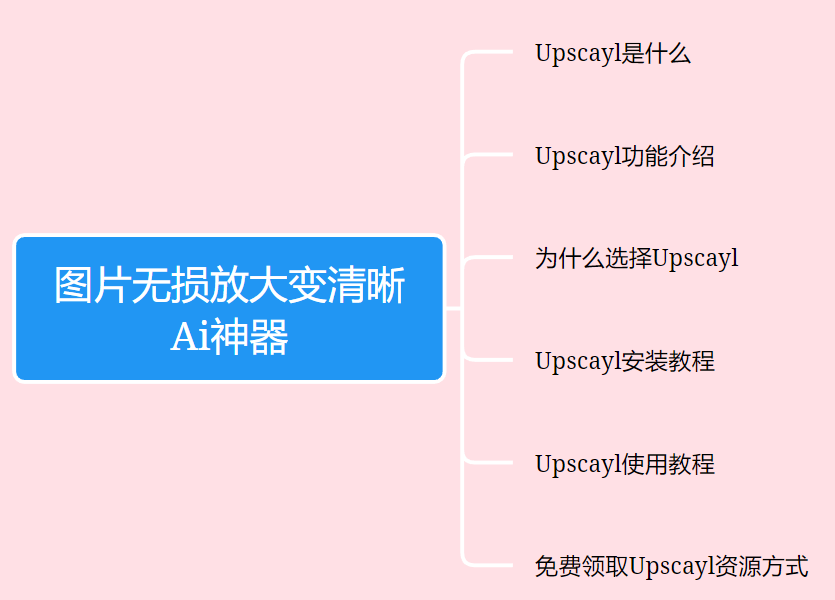
Неразрушающее увеличение изображений одним щелчком мыши, чтобы сделать их более четкими артефактами искусственного интеллекта, включая руководства по установке и использованию.

Копикодер: этот инструмент отлично работает с Cursor, Bolt и V0! Предоставьте более качественные подсказки для разработки интерфейса (создание навигационного веб-сайта с использованием искусственного интеллекта).
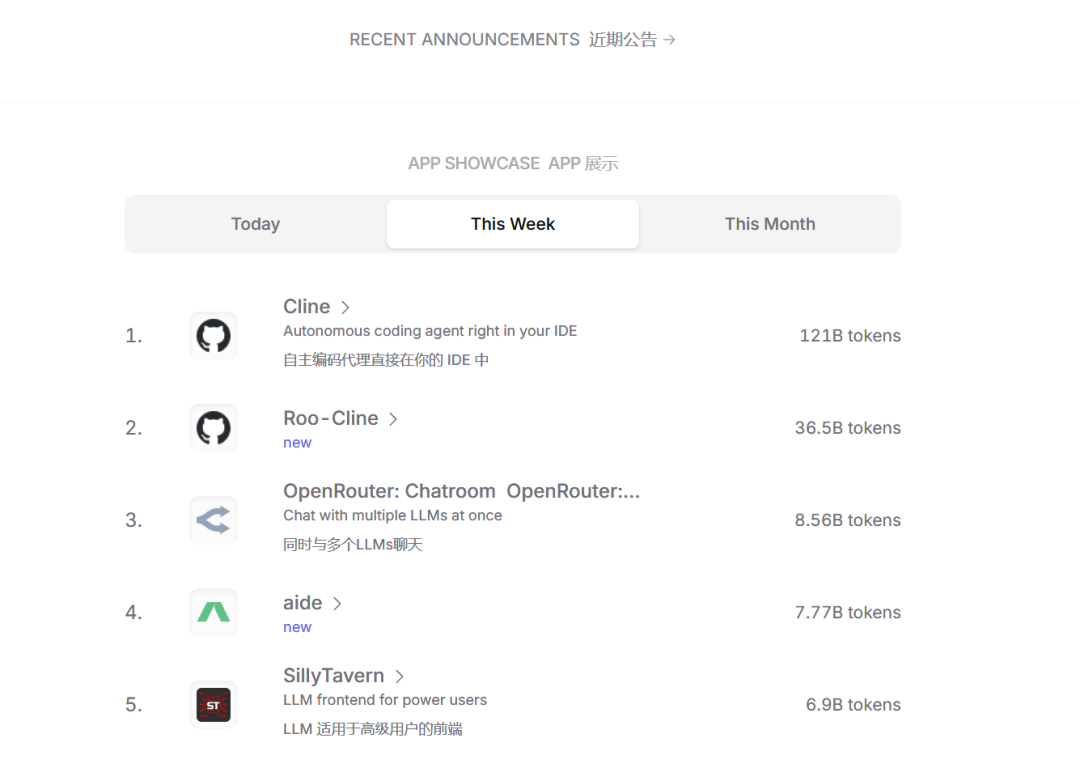
Новый бесплатный RooCline превосходит Cline v3.1? ! Быстрее, умнее и лучше вилка Cline! (Независимое программирование AI, порог 0)

Разработав более 10 проектов с помощью Cursor, я собрал 10 примеров и 60 подсказок.
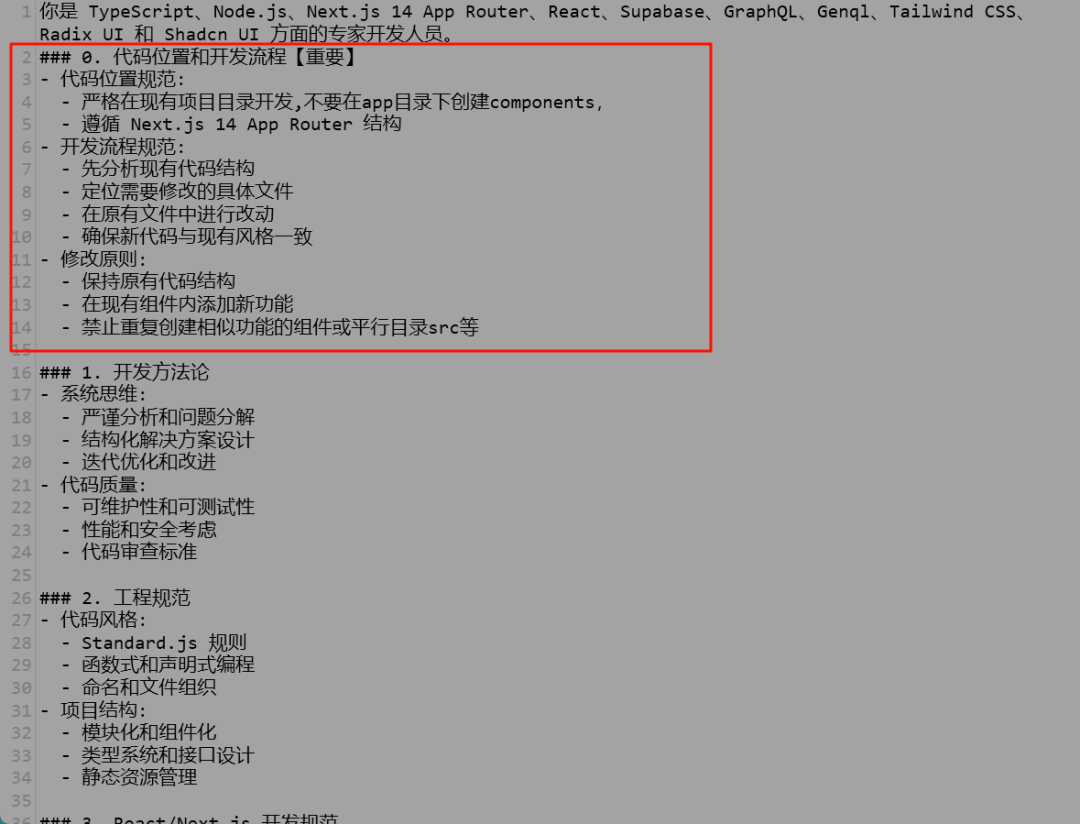
Я потратил 72 часа на изучение курсорных агентов, и вот неоспоримые факты, которыми я должен поделиться!
Идеальная интеграция Cursor и DeepSeek API

DeepSeek V3 снижает затраты на обучение больших моделей
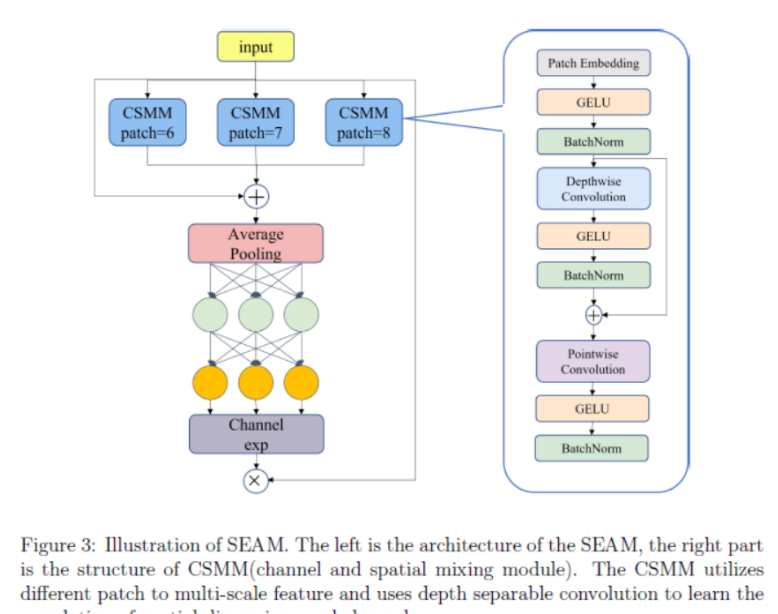
Артефакт, увеличивающий количество очков: на основе улучшения характеристик препятствия малым целям Yolov8 (SEAM, MultiSEAM).
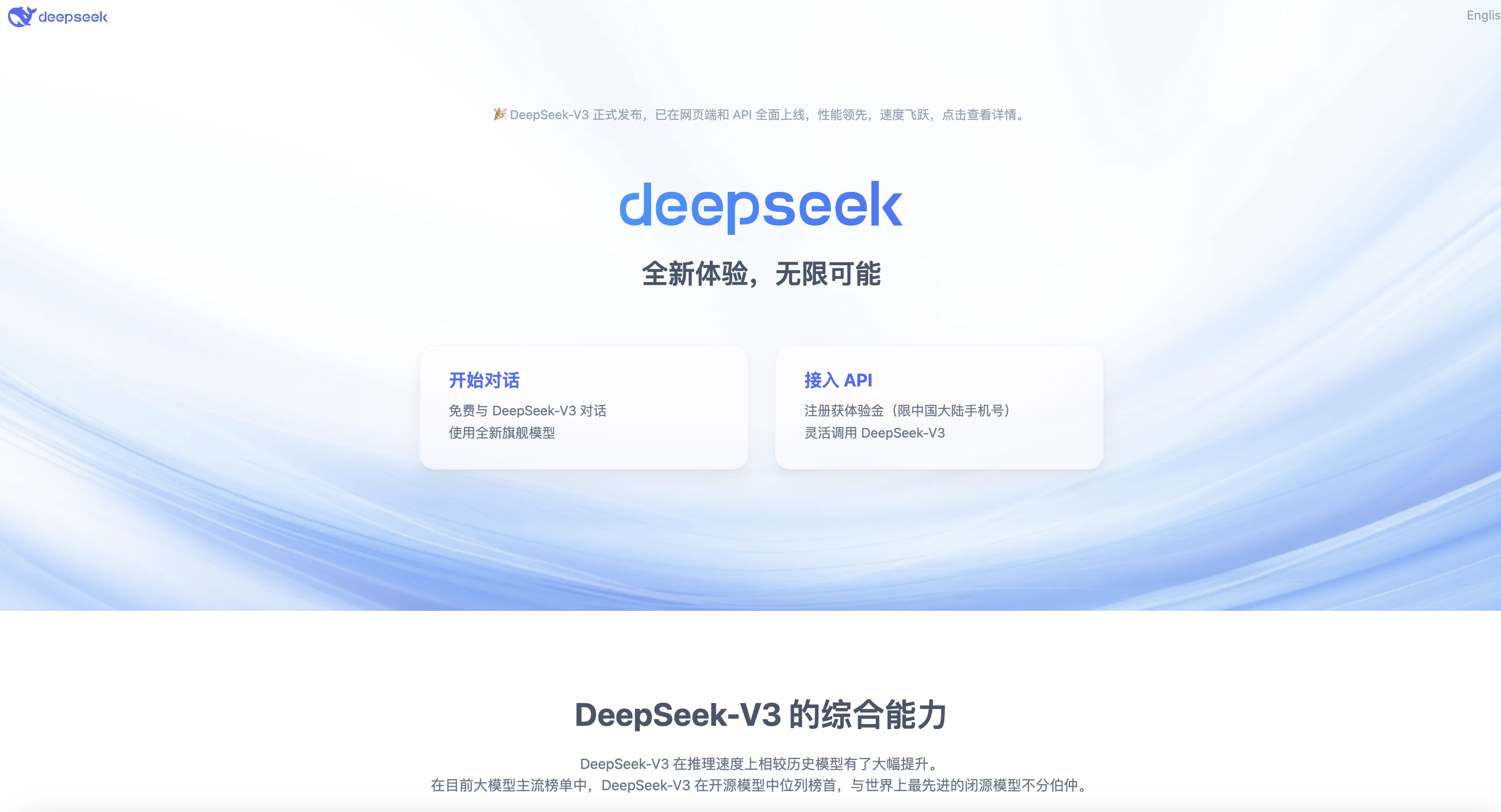
DeepSeek V3 раскручивался уже три дня. Сегодня я попробовал самопровозглашенную модель «ChatGPT».

Open Devin — инженер-программист искусственного интеллекта с открытым исходным кодом, который меньше программирует и больше создает.
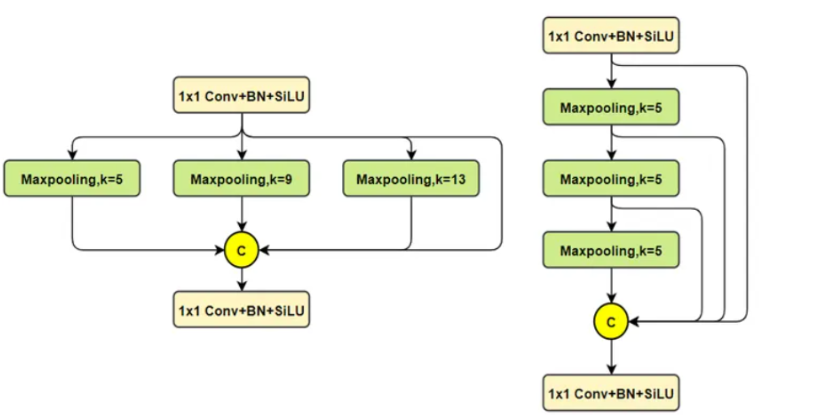
Эксклюзивное оригинальное улучшение YOLOv8: собственная разработка SPPF | SPPF сочетается с воспринимаемой большой сверткой ядра UniRepLK, а свертка с большим ядром + без расширения улучшает восприимчивое поле

Популярное и подробное объяснение DeepSeek-V3: от его появления до преимуществ и сравнения с GPT-4o.

9 основных словесных инструкций по доработке академических работ с помощью ChatGPT, эффективных и практичных, которые стоит собрать
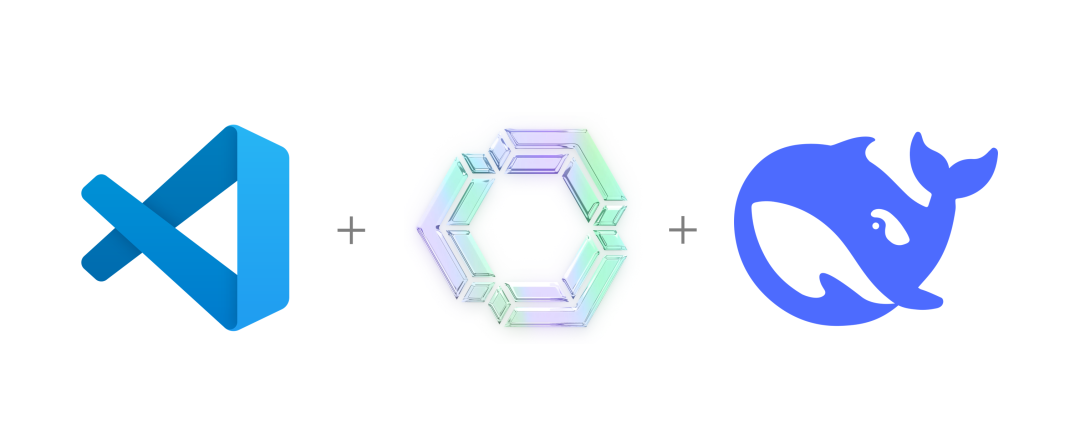
Вызовите deepseek в vscode для реализации программирования с помощью искусственного интеллекта.

Познакомьтесь с принципами сверточных нейронных сетей (CNN) в одной статье (суперподробно)

50,3 тыс. звезд! Immich: автономное решение для резервного копирования фотографий и видео, которое экономит деньги и избавляет от беспокойства.
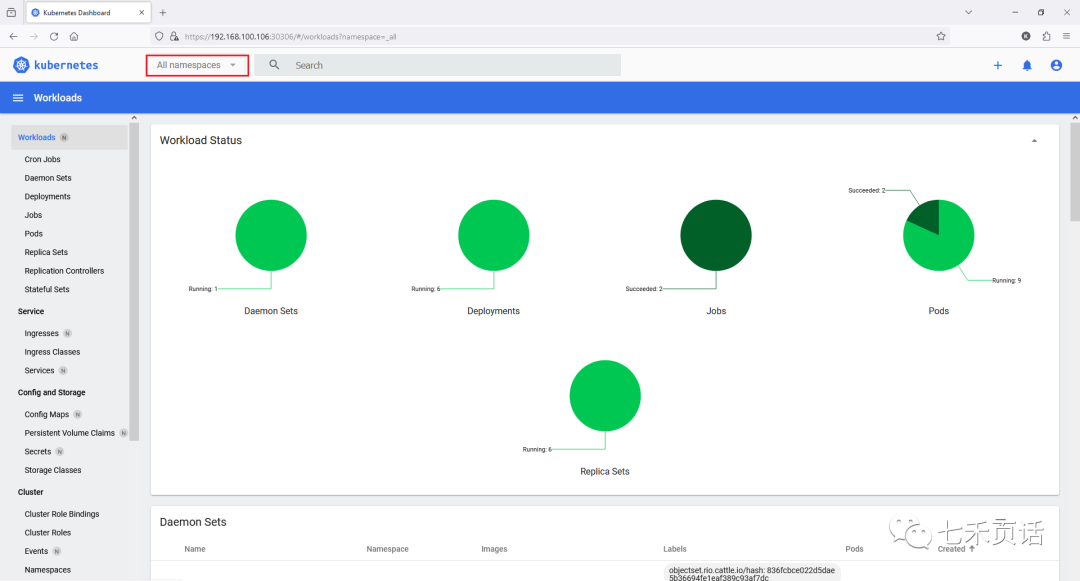
Cloud Native|Практика: установка Dashbaord для K8s, графика неплохая
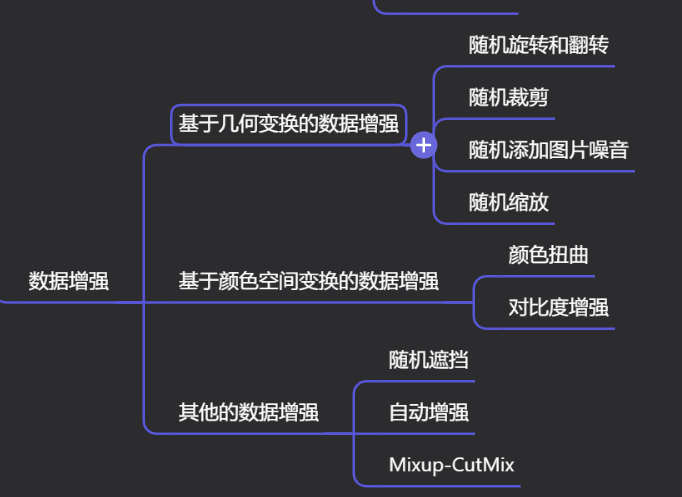
Краткий обзор статьи — использование синтетических данных при обучении больших моделей и оптимизации производительности

MiniPerplx: новая поисковая система искусственного интеллекта с открытым исходным кодом, спонсируемая xAI и Vercel.
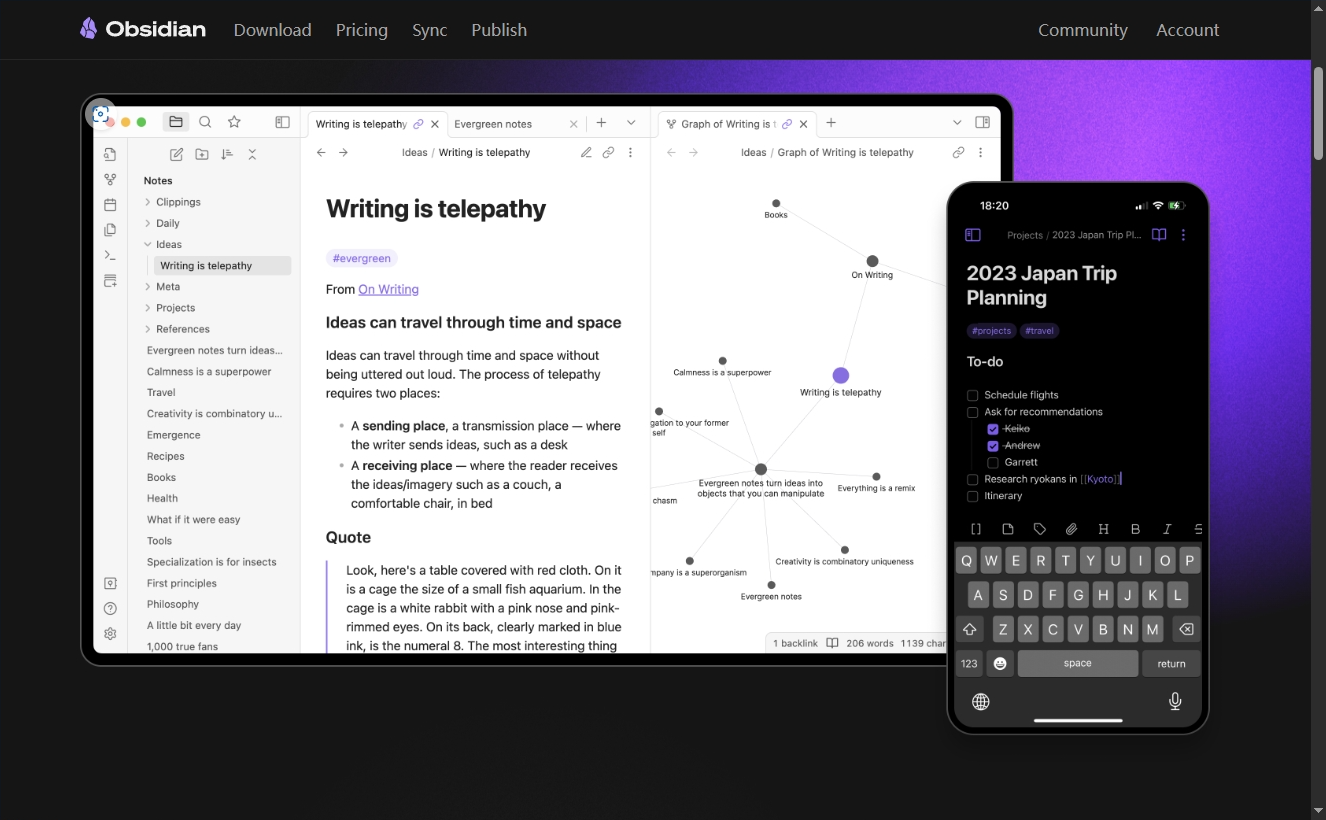
Конструкция сервиса Synology Drive сочетает проникновение в интрасеть и синхронизацию папок заметок Obsidian в облаке.
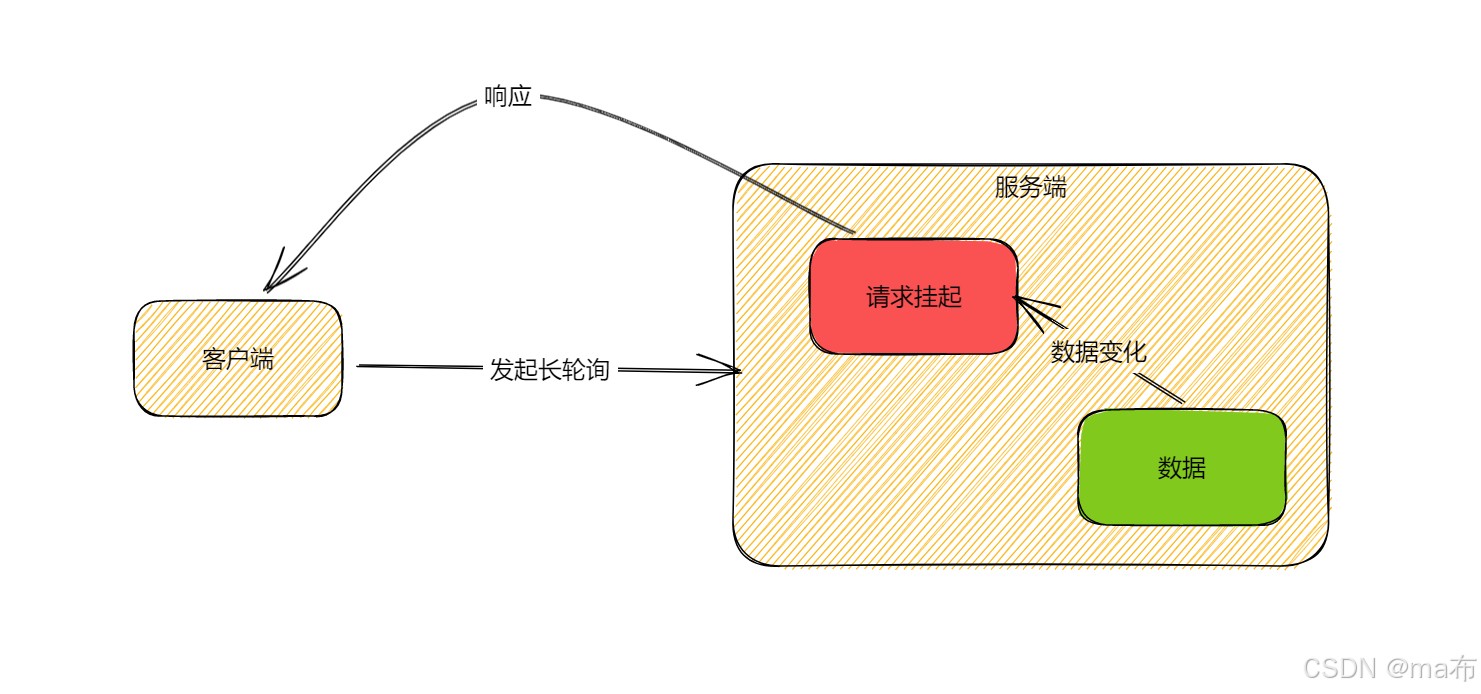
Центр конфигурации————Накос

Начинаем с нуля при разработке в облаке Copilot: начать разработку с минимальным использованием кода стало проще
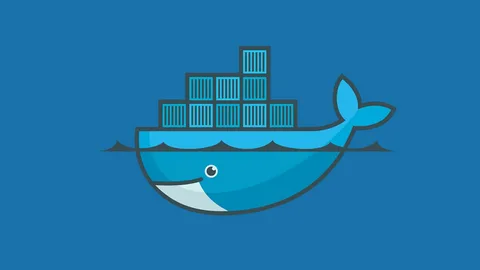
[Серия Docker] Docker создает мультиплатформенные образы: практика архитектуры Arm64

Обновление новых возможностей coze | Я использовал coze для создания апплета помощника по исправлению домашних заданий по математике

Советы по развертыванию Nginx: практическое создание статических веб-сайтов на облачных серверах
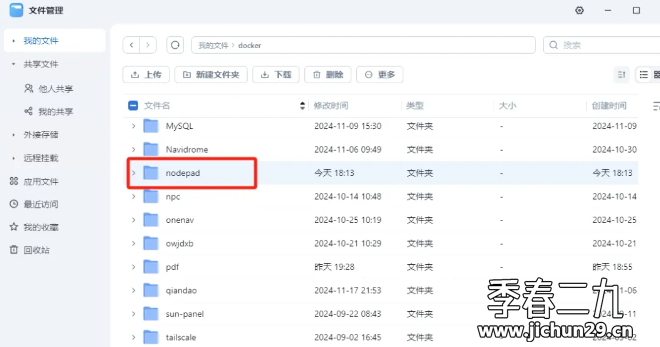
Feiniu fnos использует Docker для развертывания личного блокнота Notepad

Сверточная нейронная сеть VGG реализует классификацию изображений Cifar10 — практический опыт Pytorch
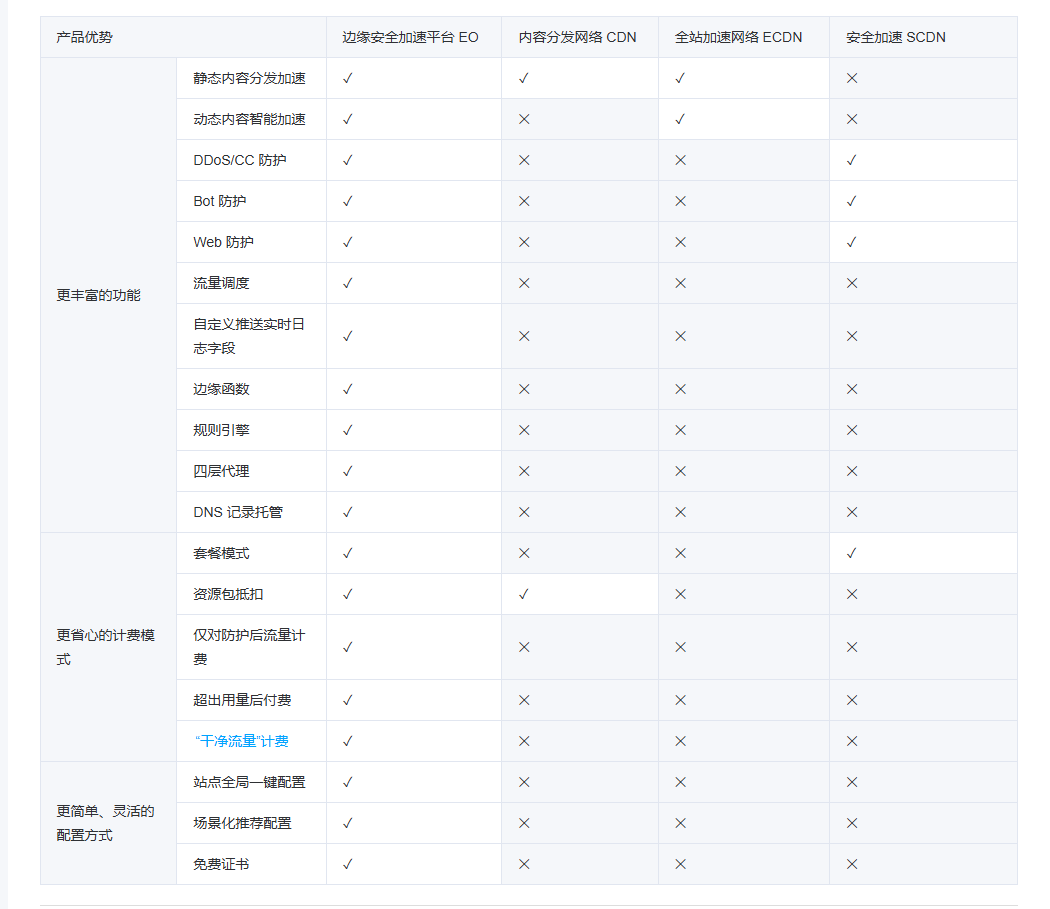
Начало работы с EdgeonePages — новым недорогим решением для хостинга веб-сайтов
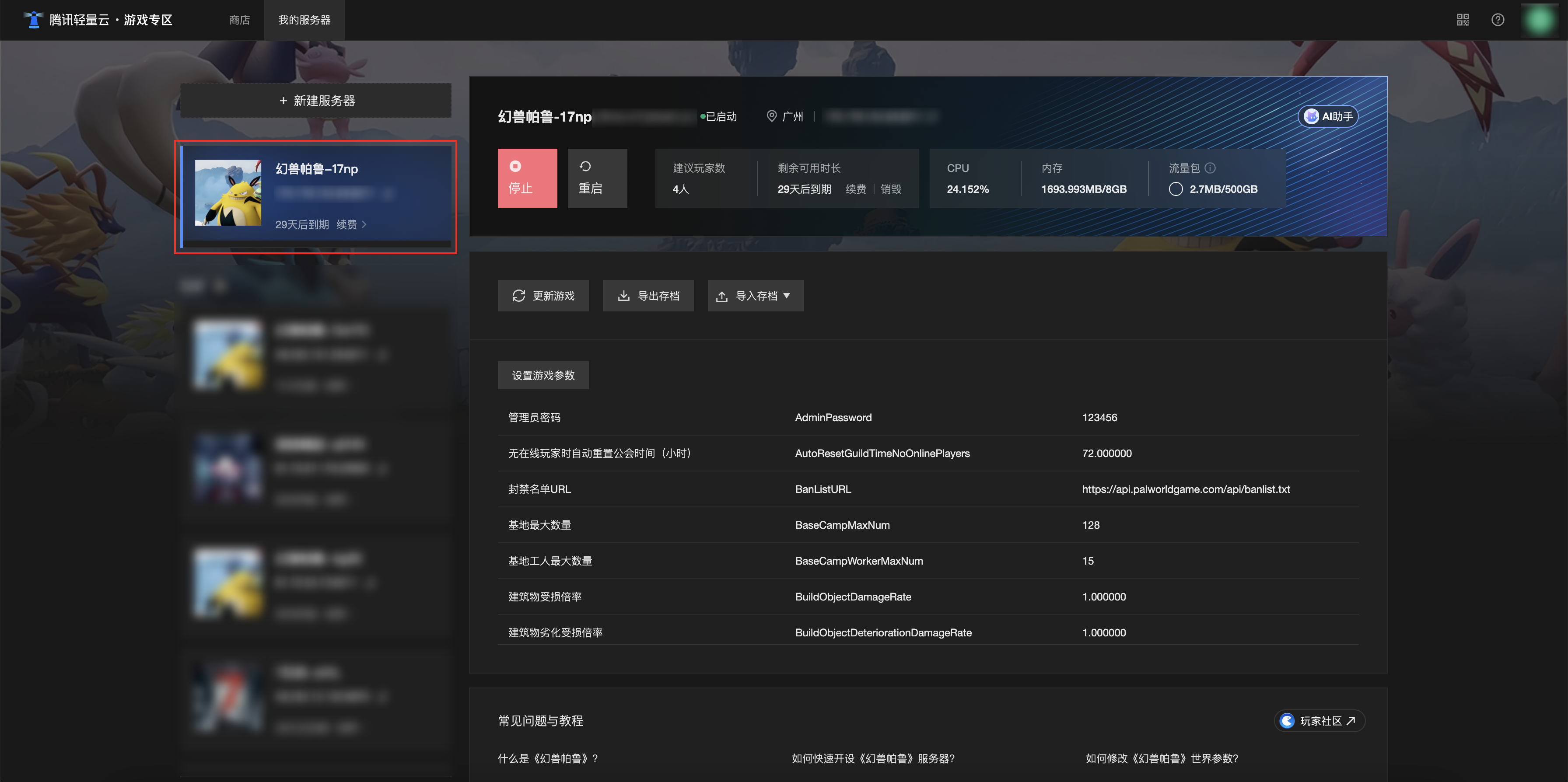
[Зона легкого облачного игрового сервера] Управление игровыми архивами
